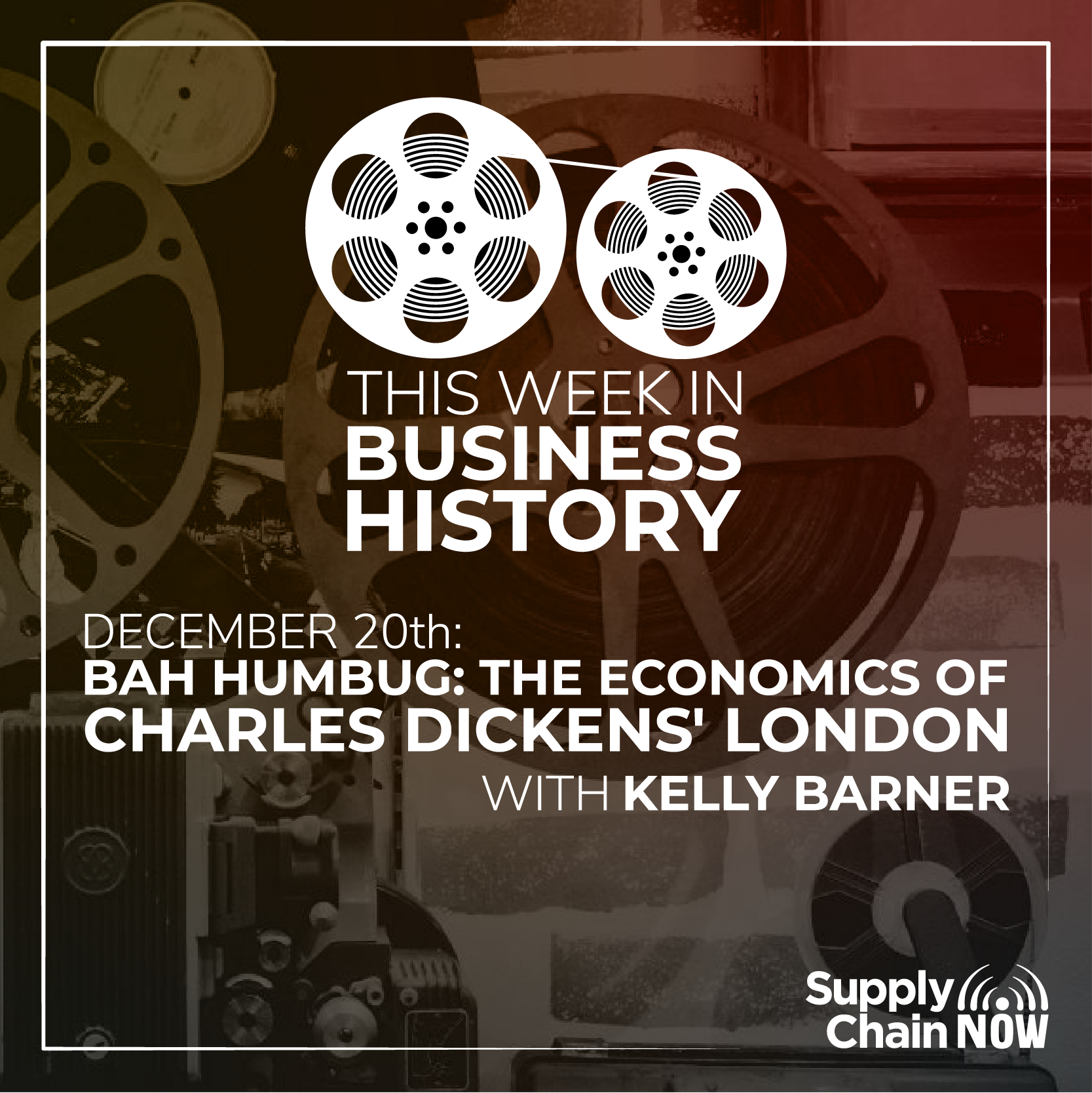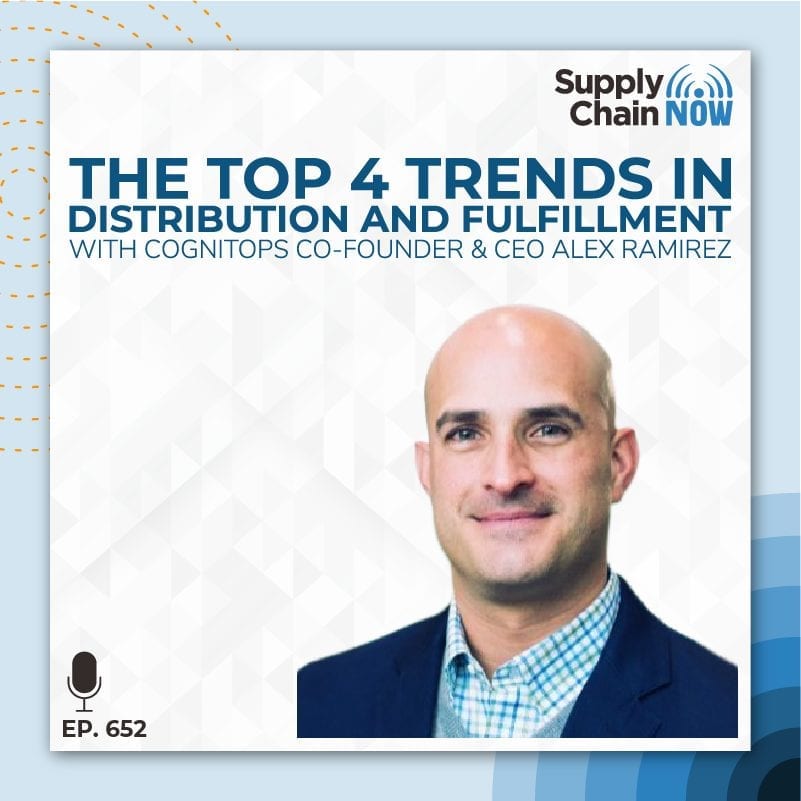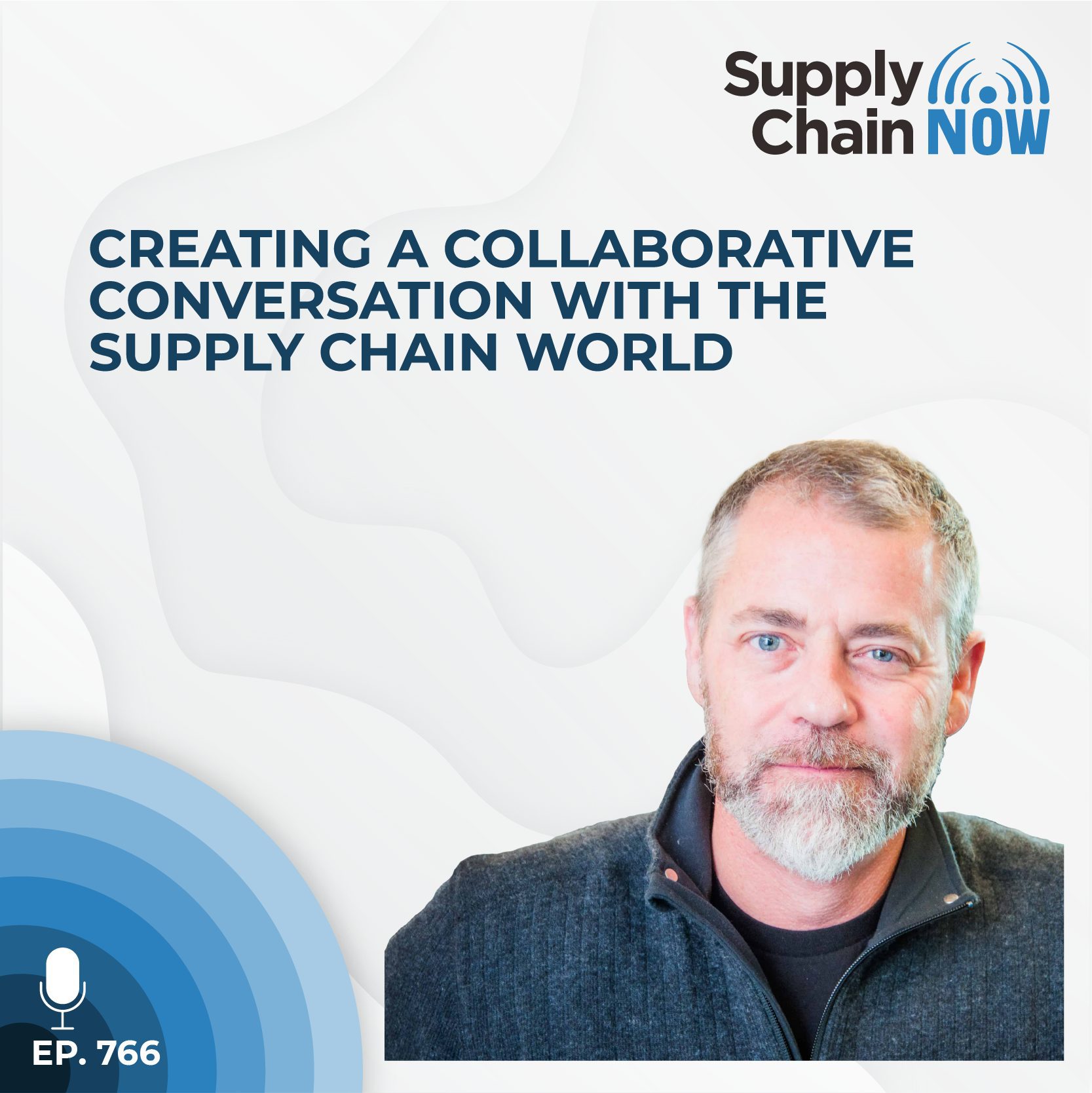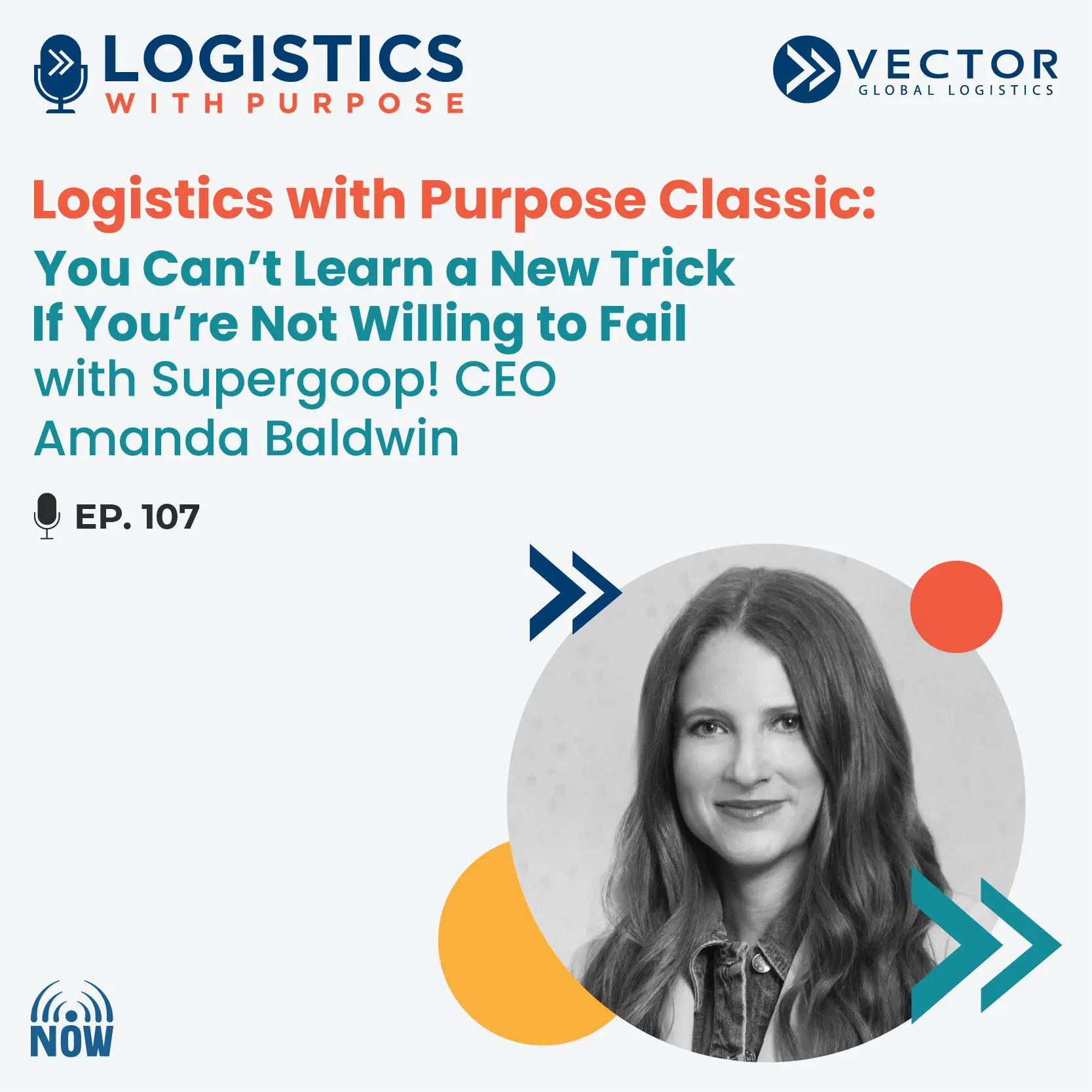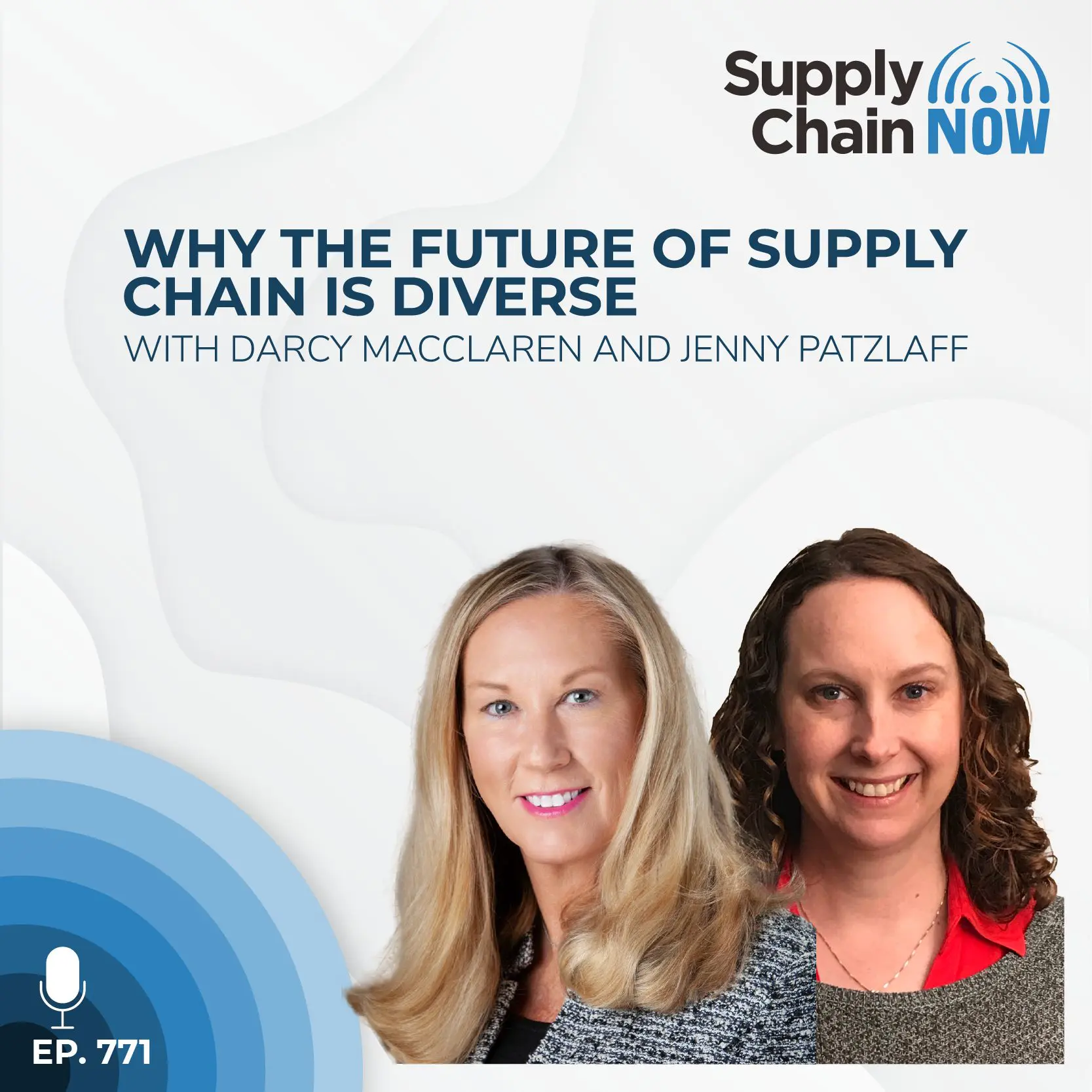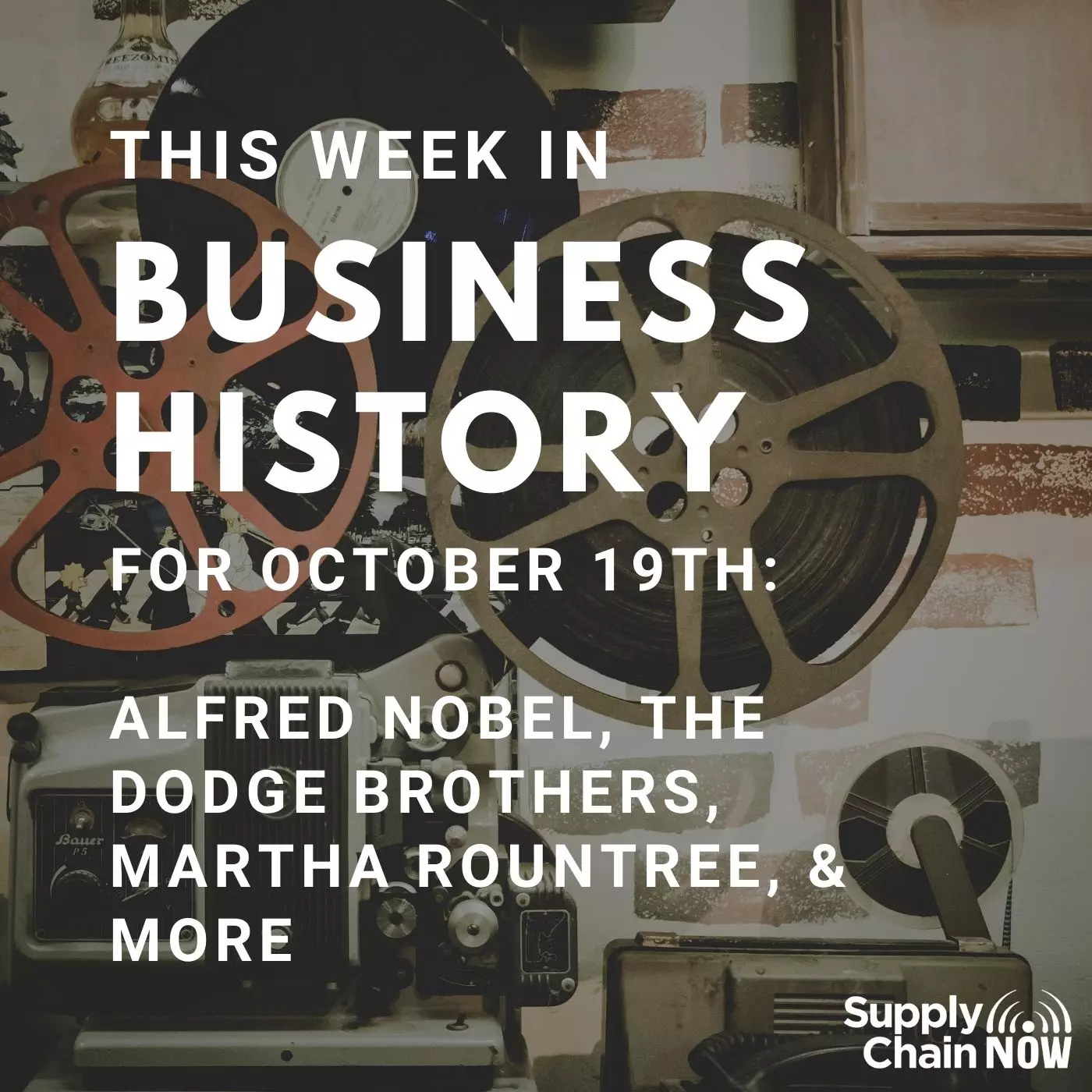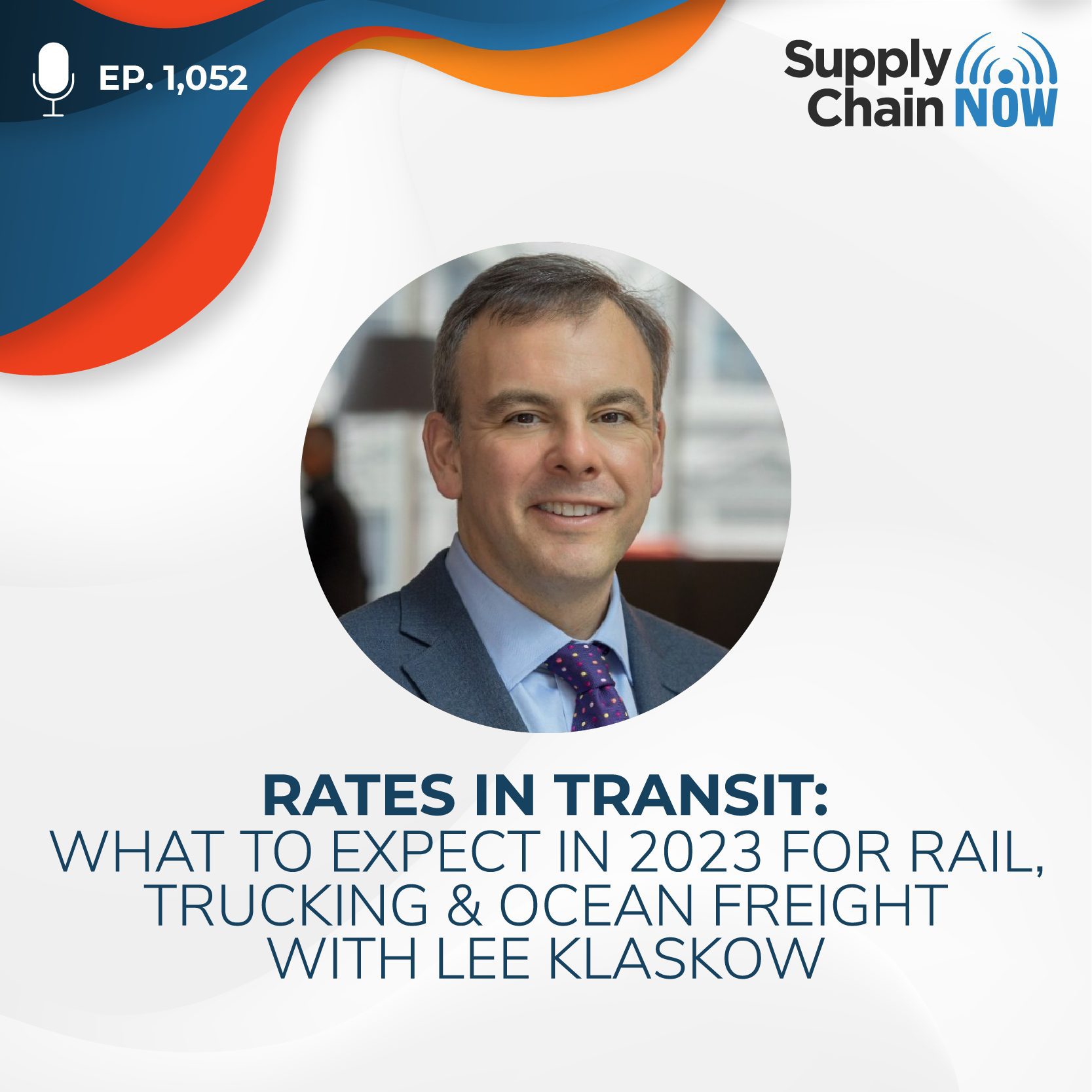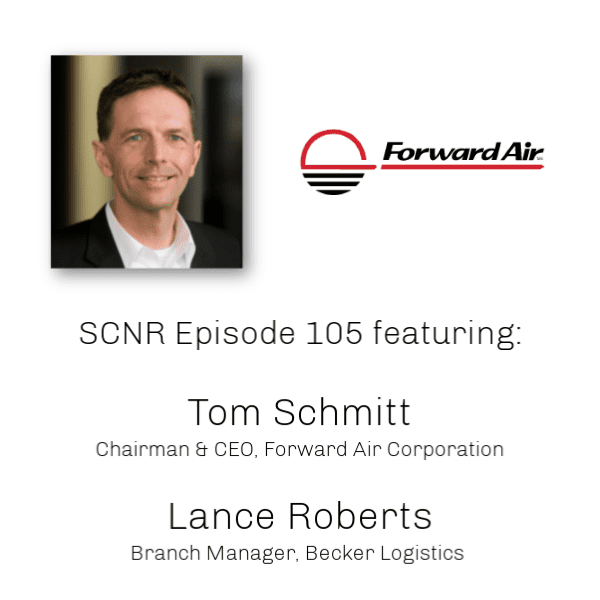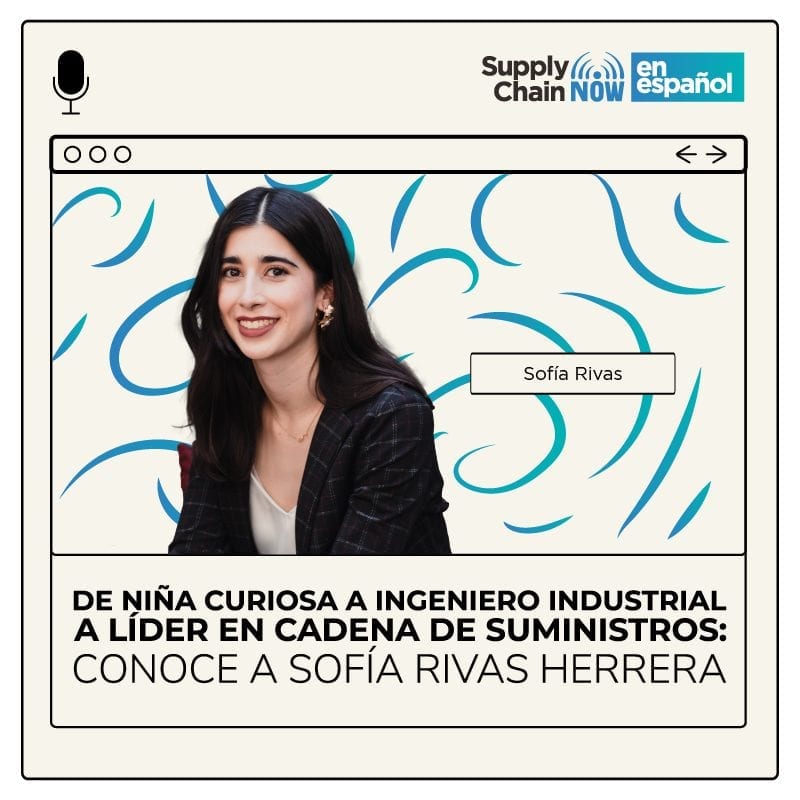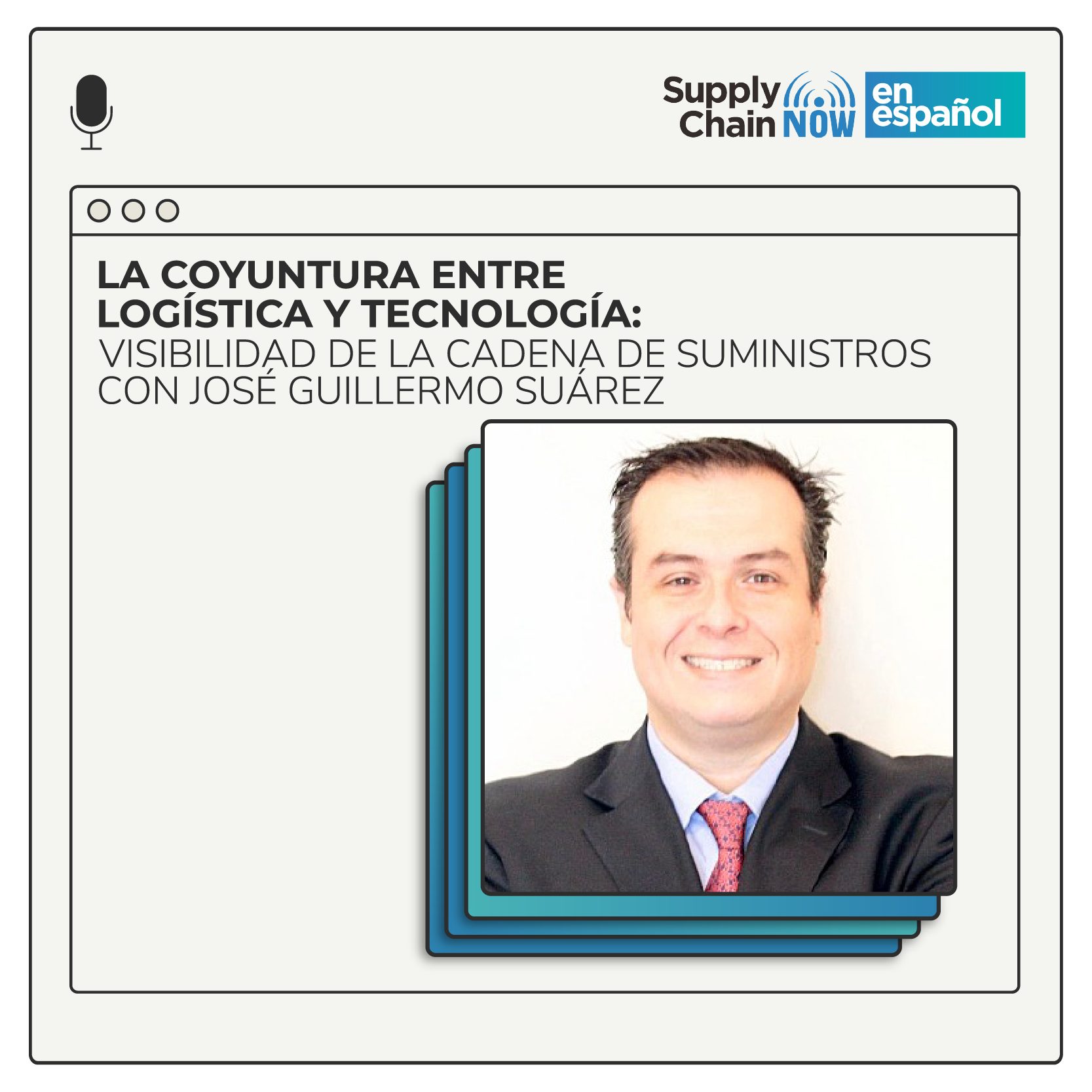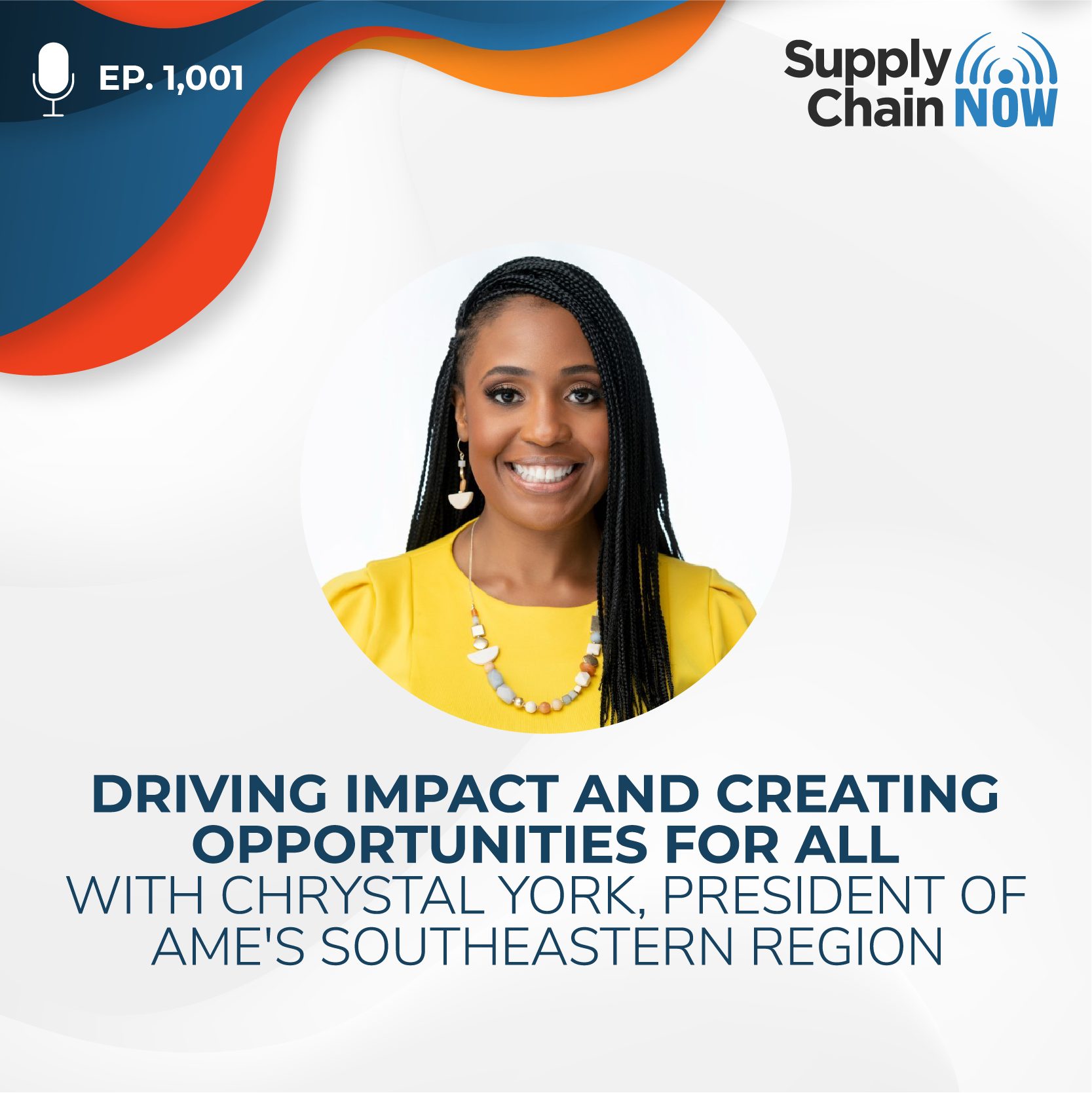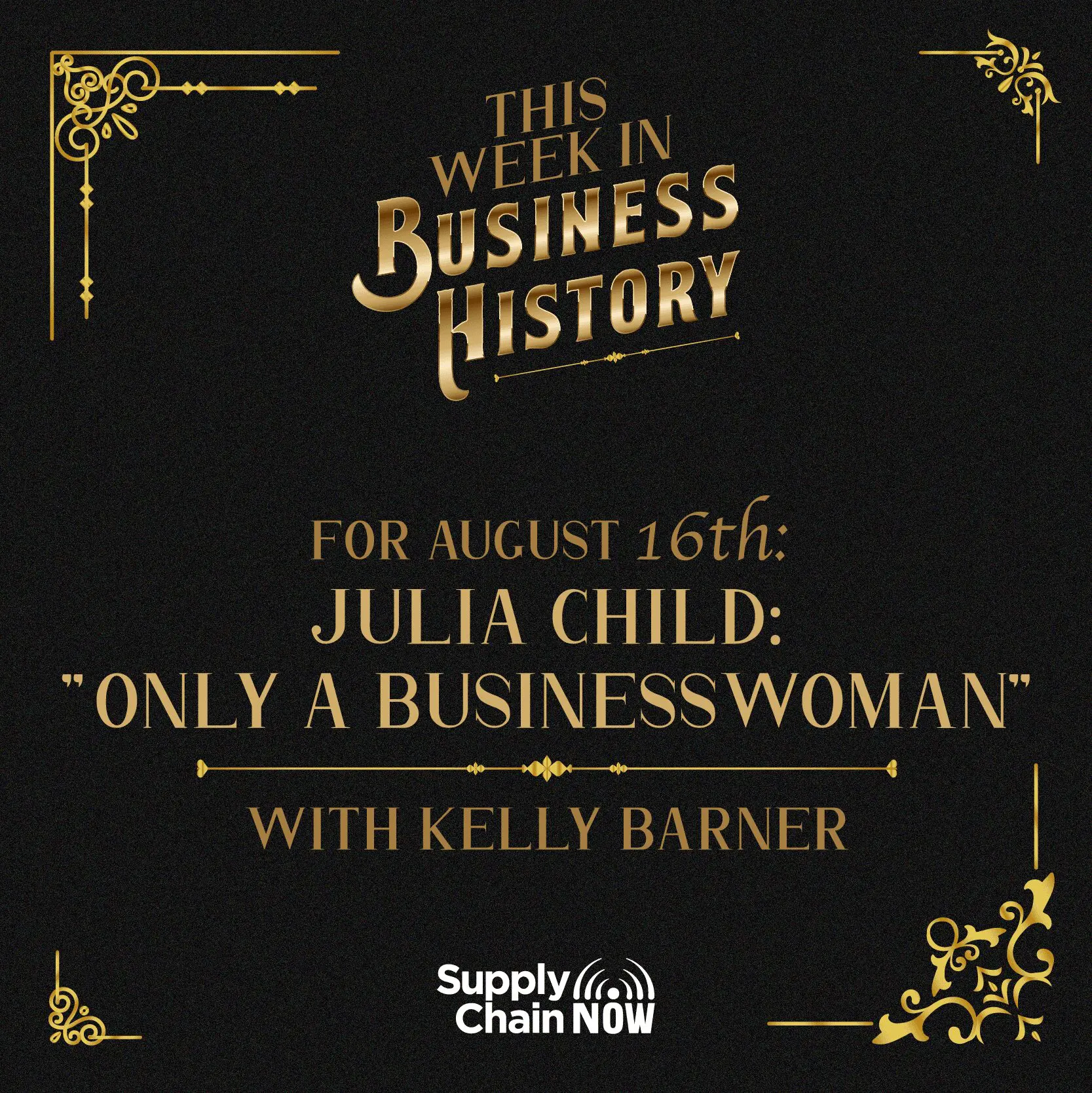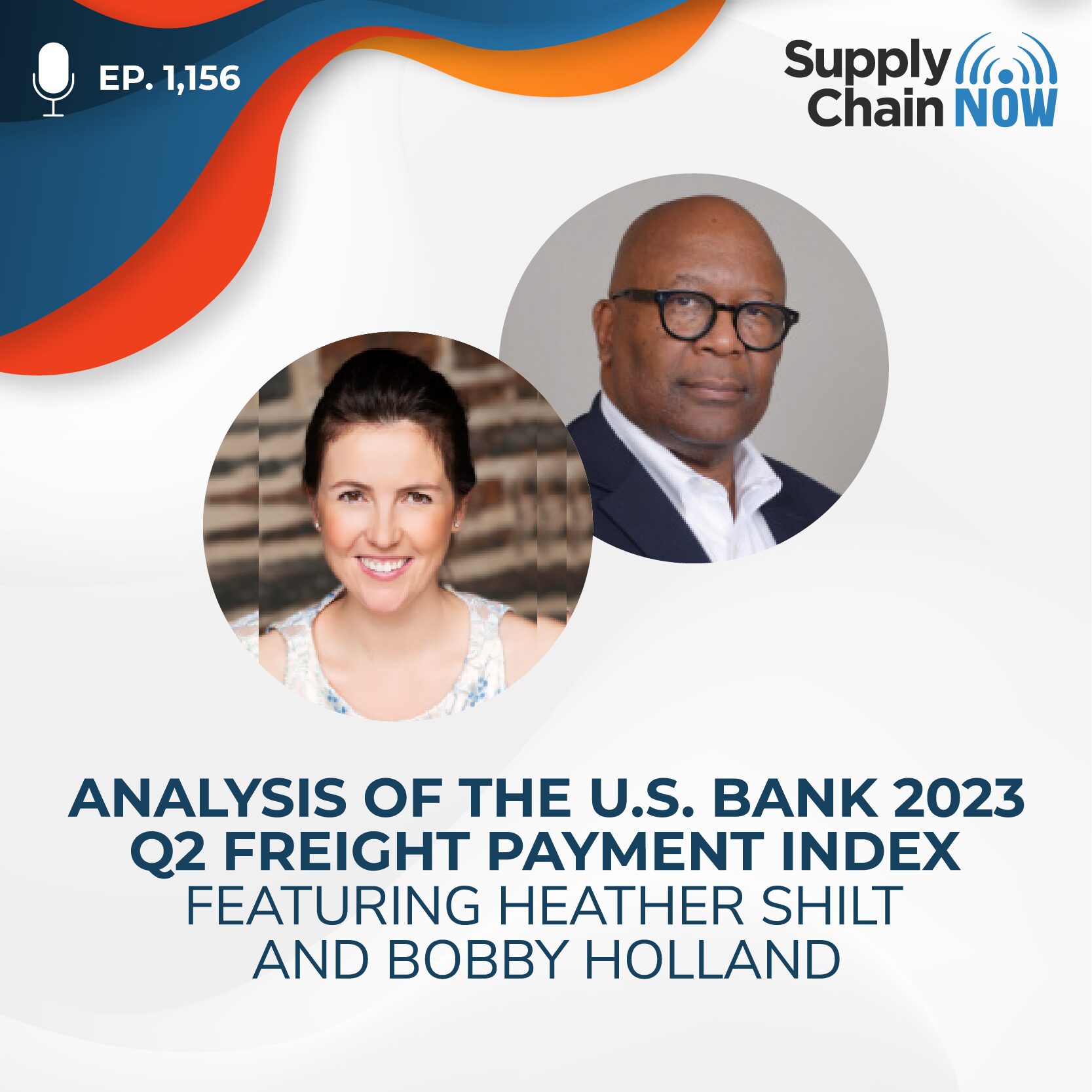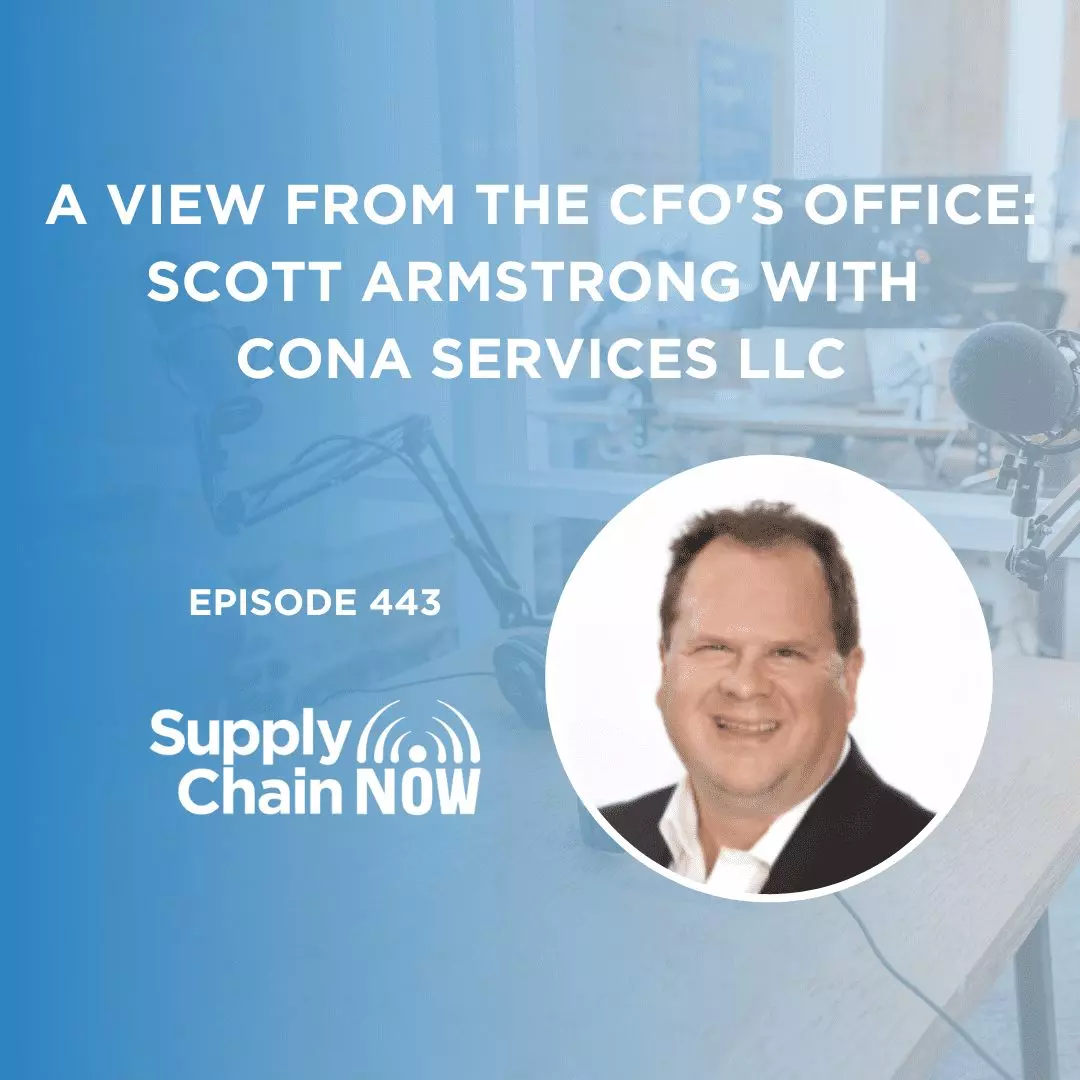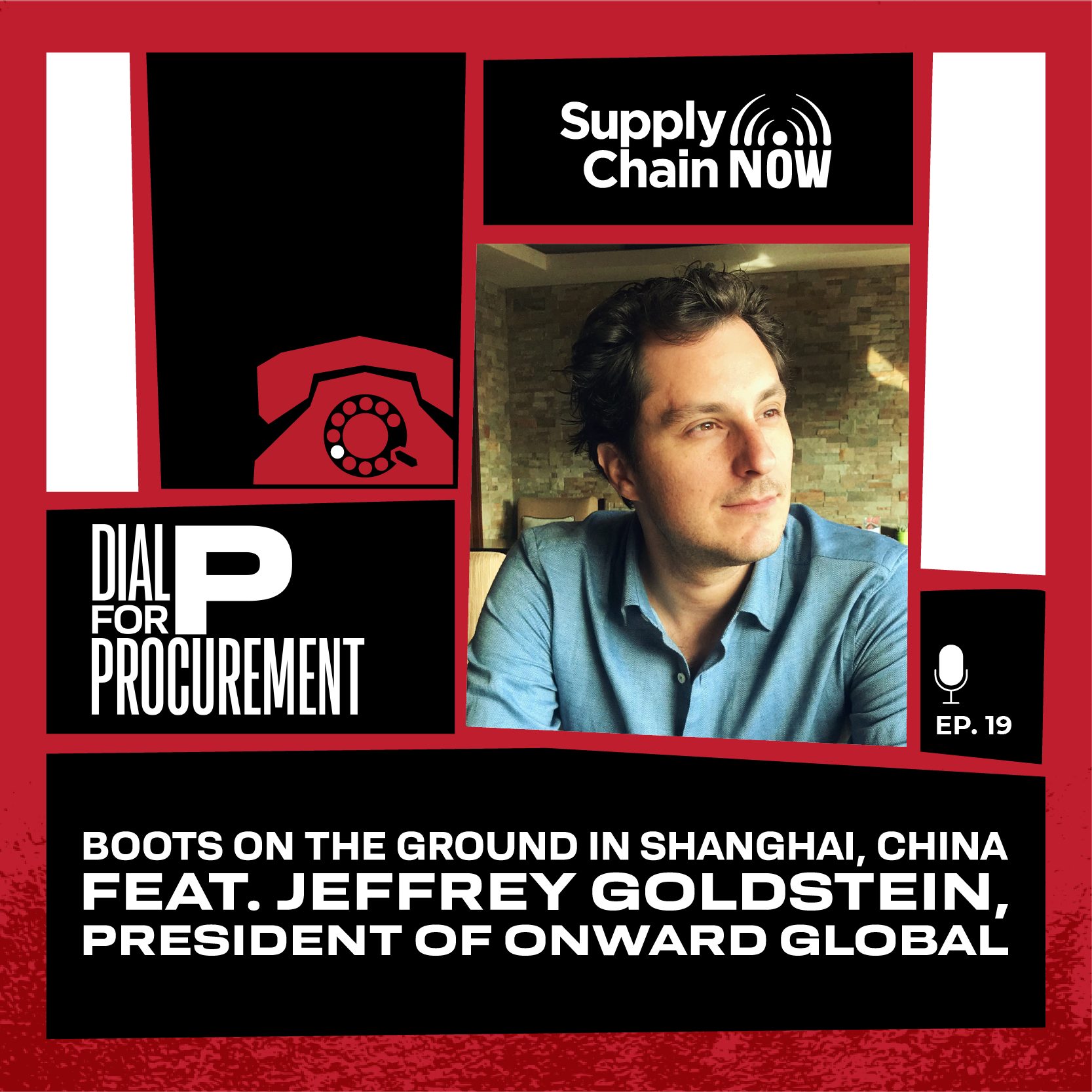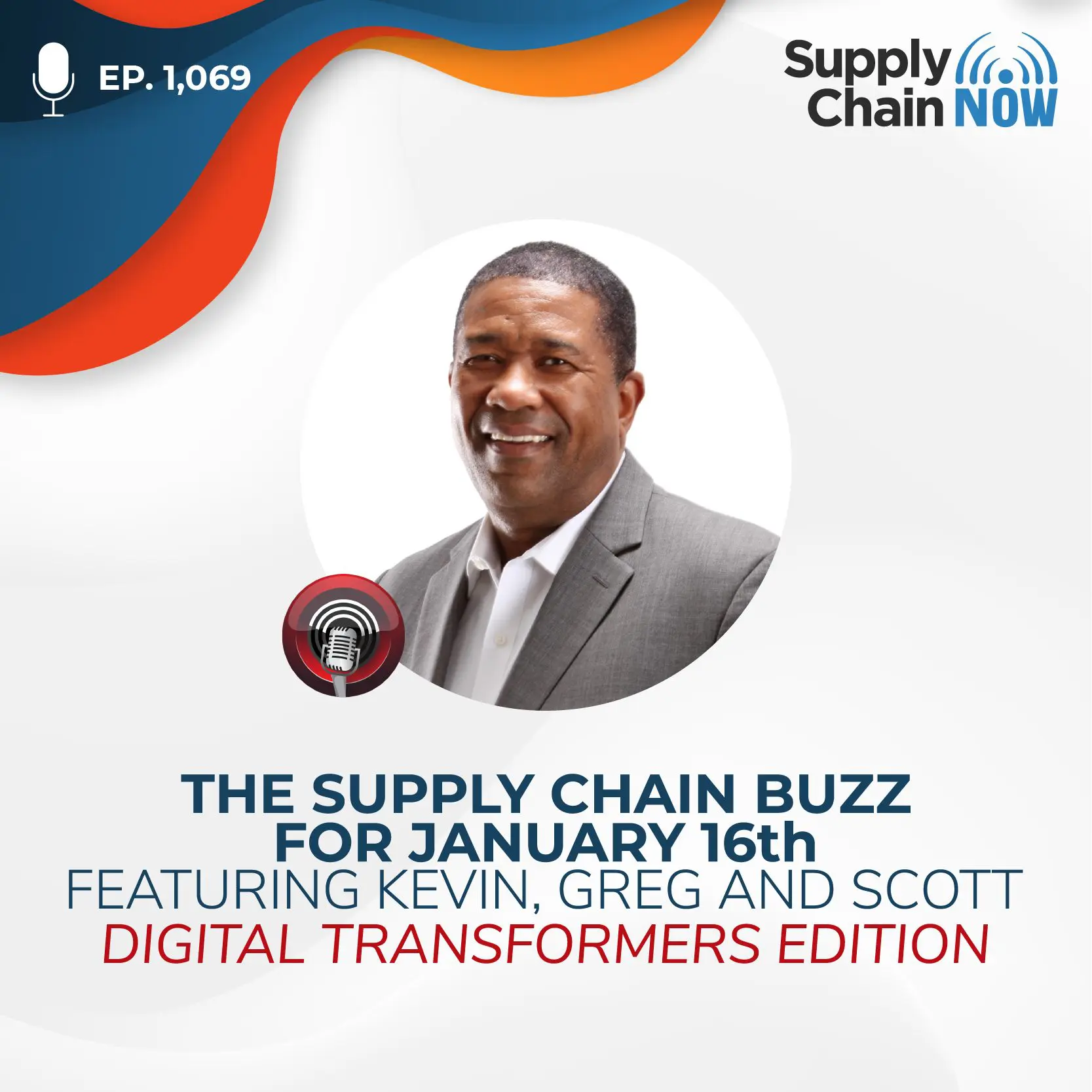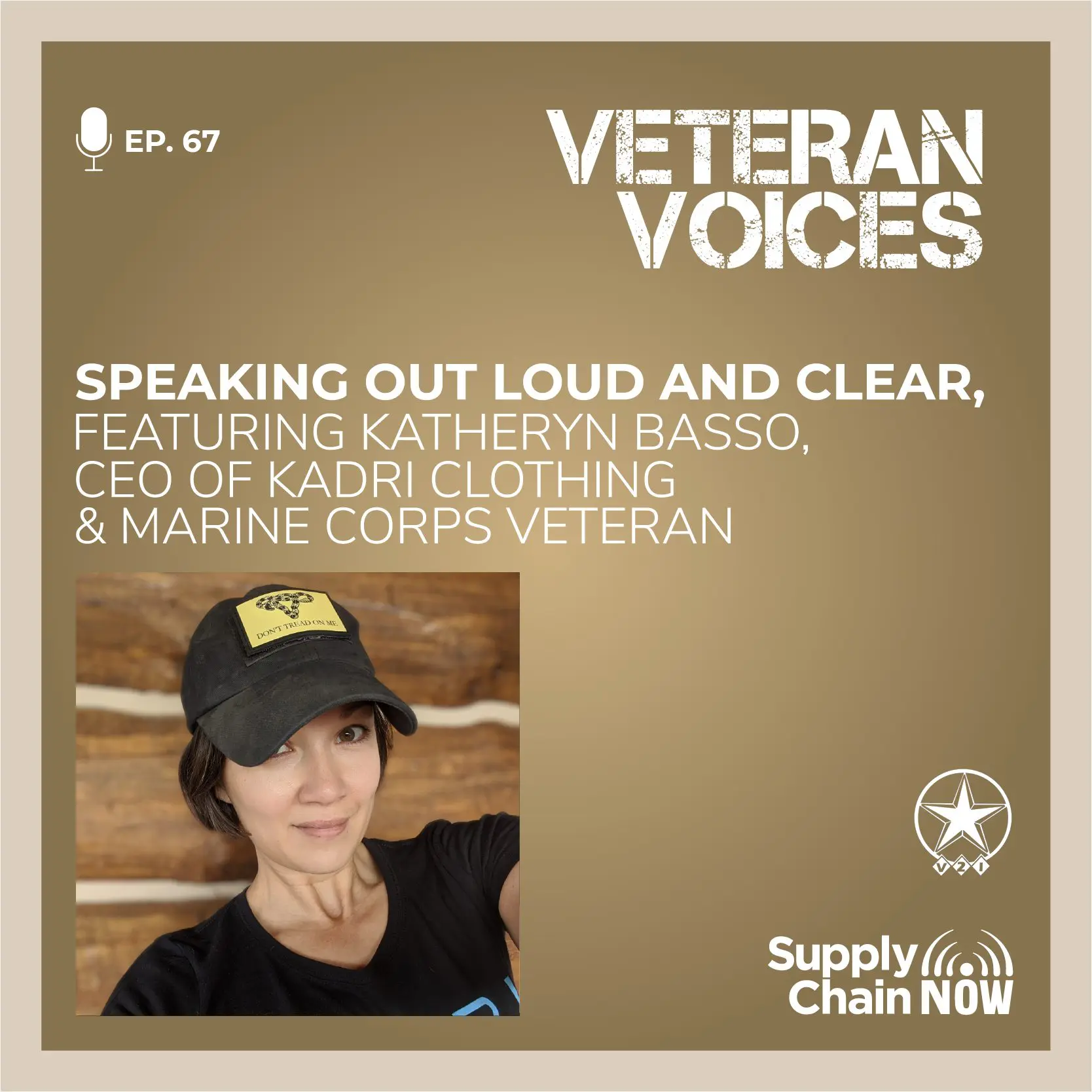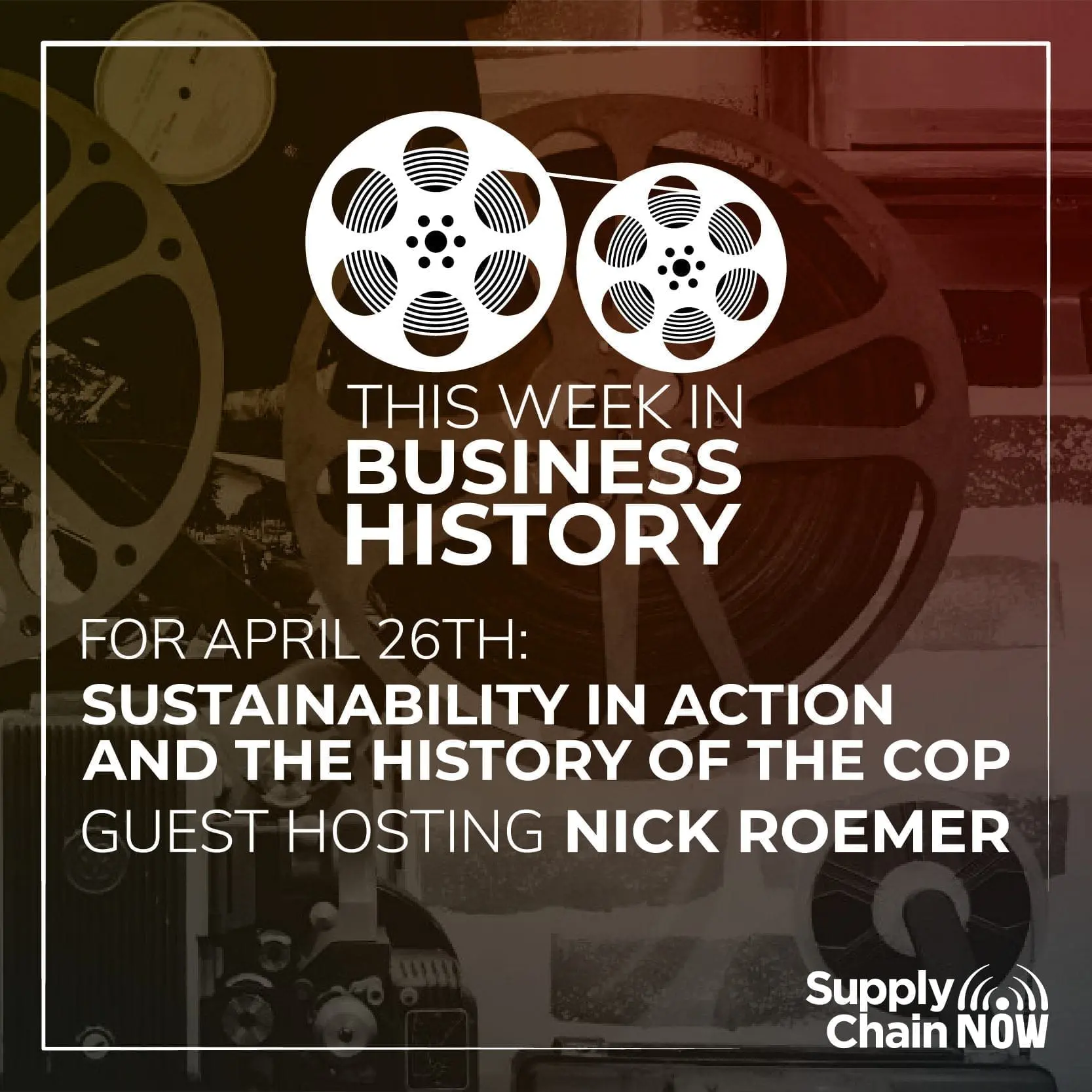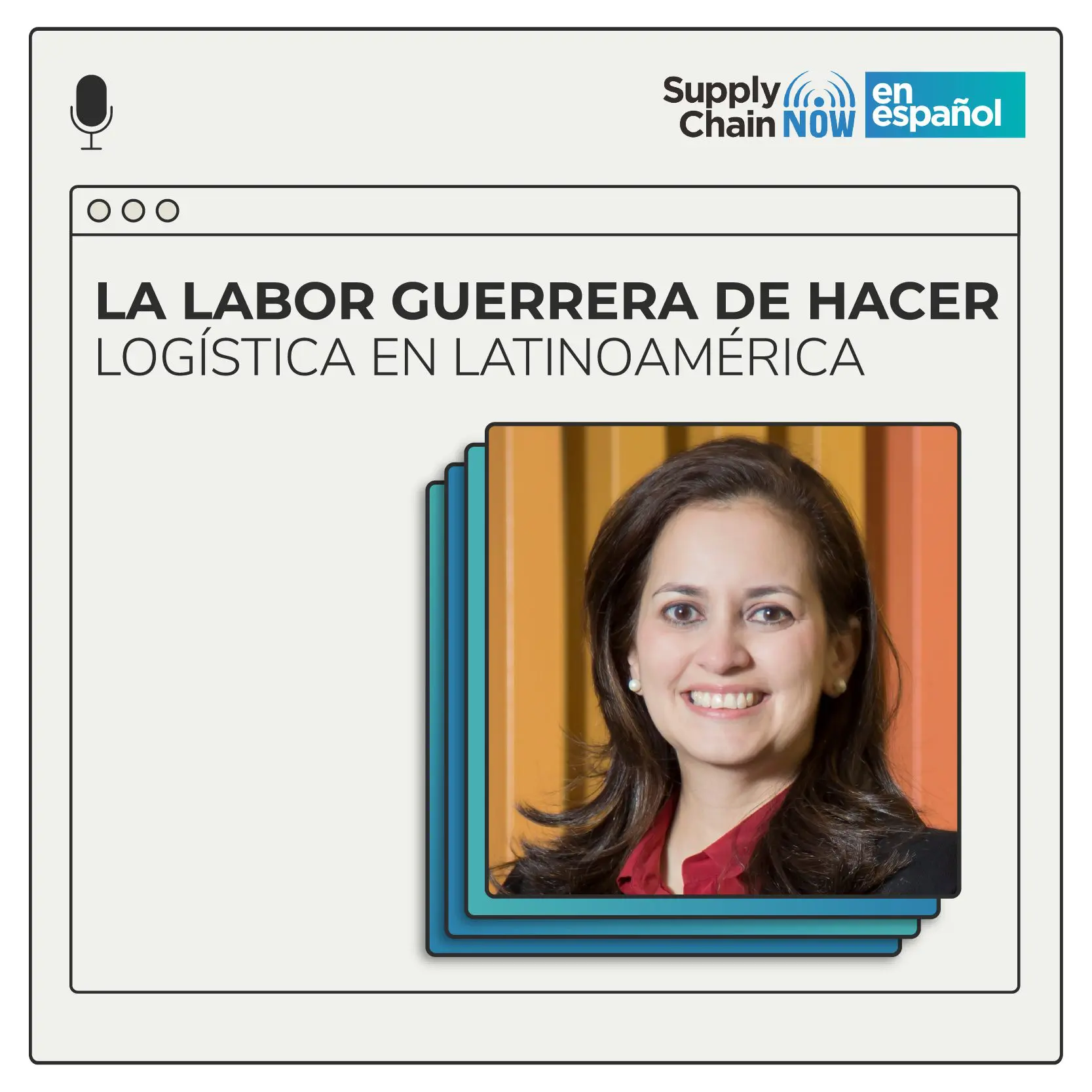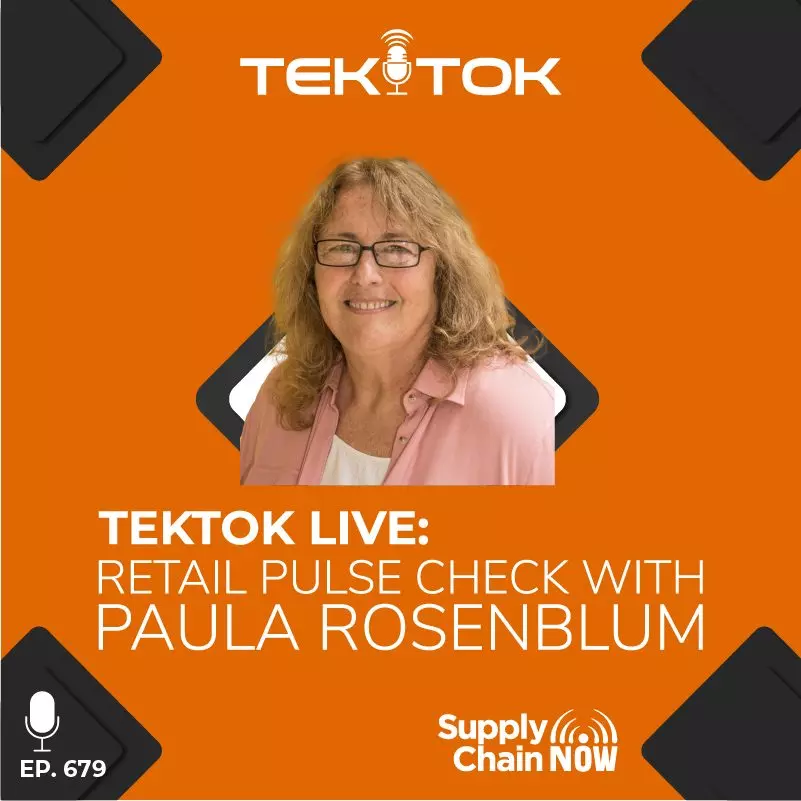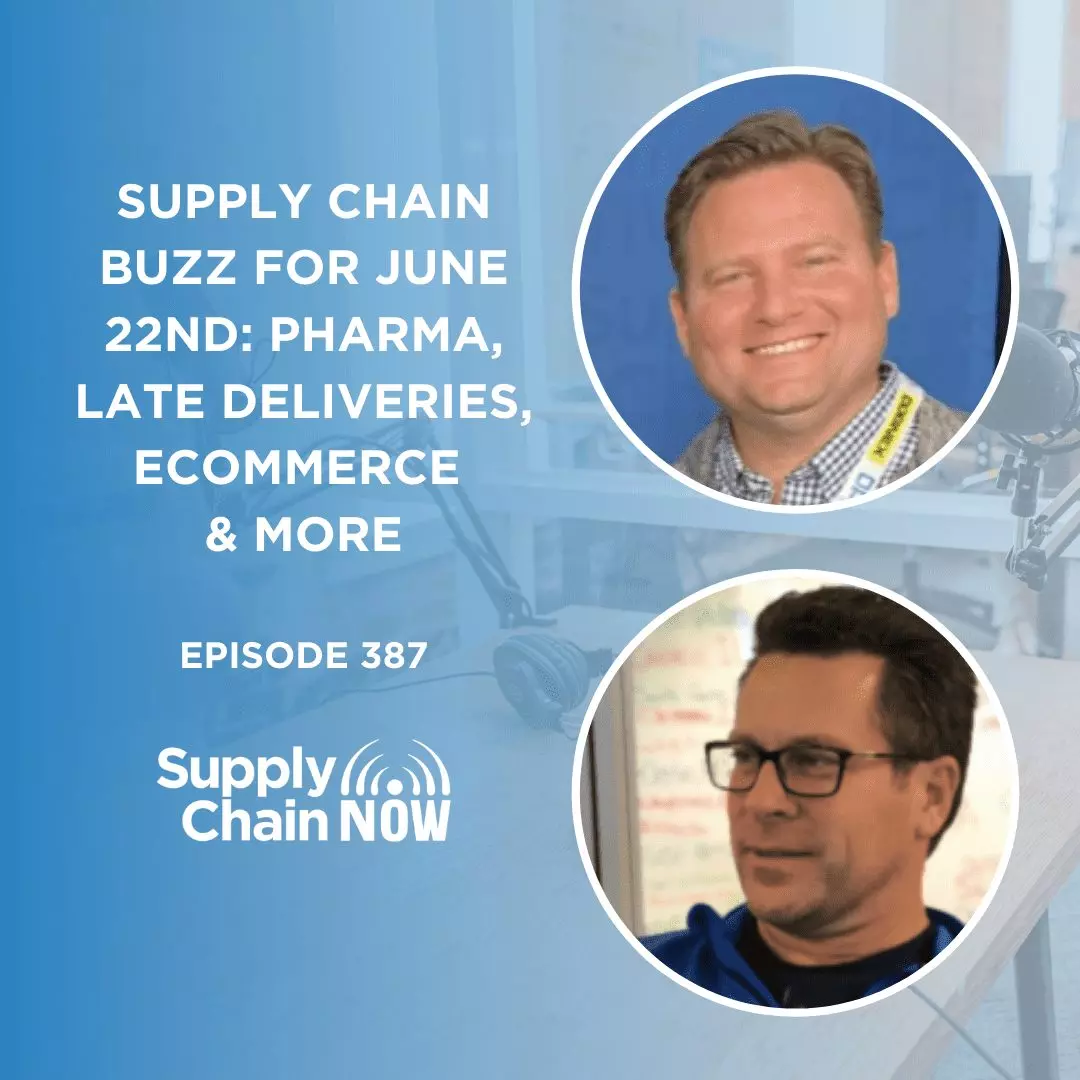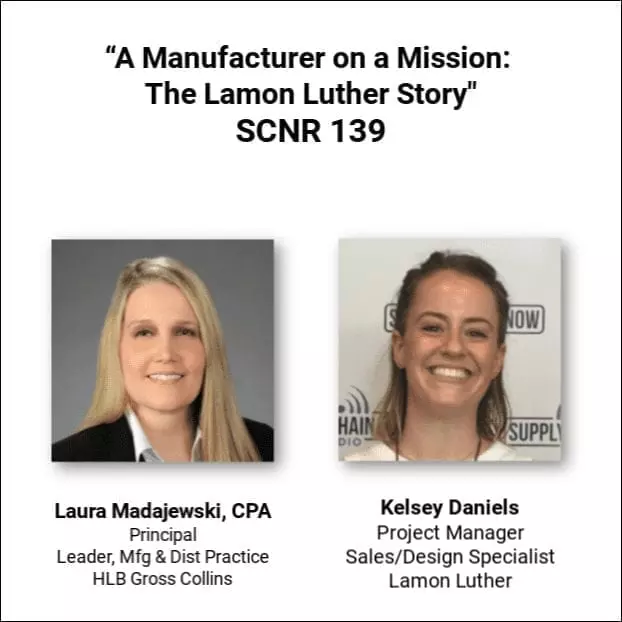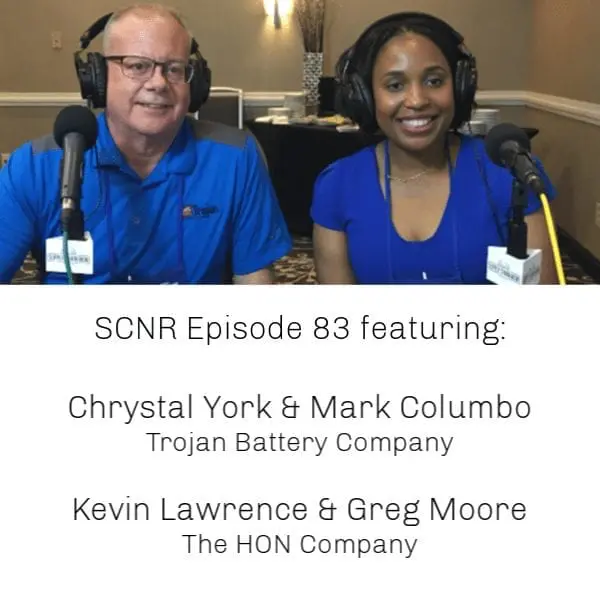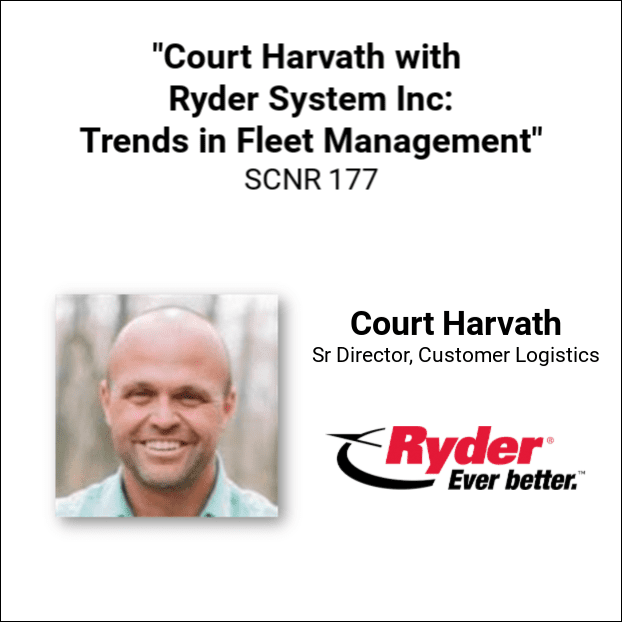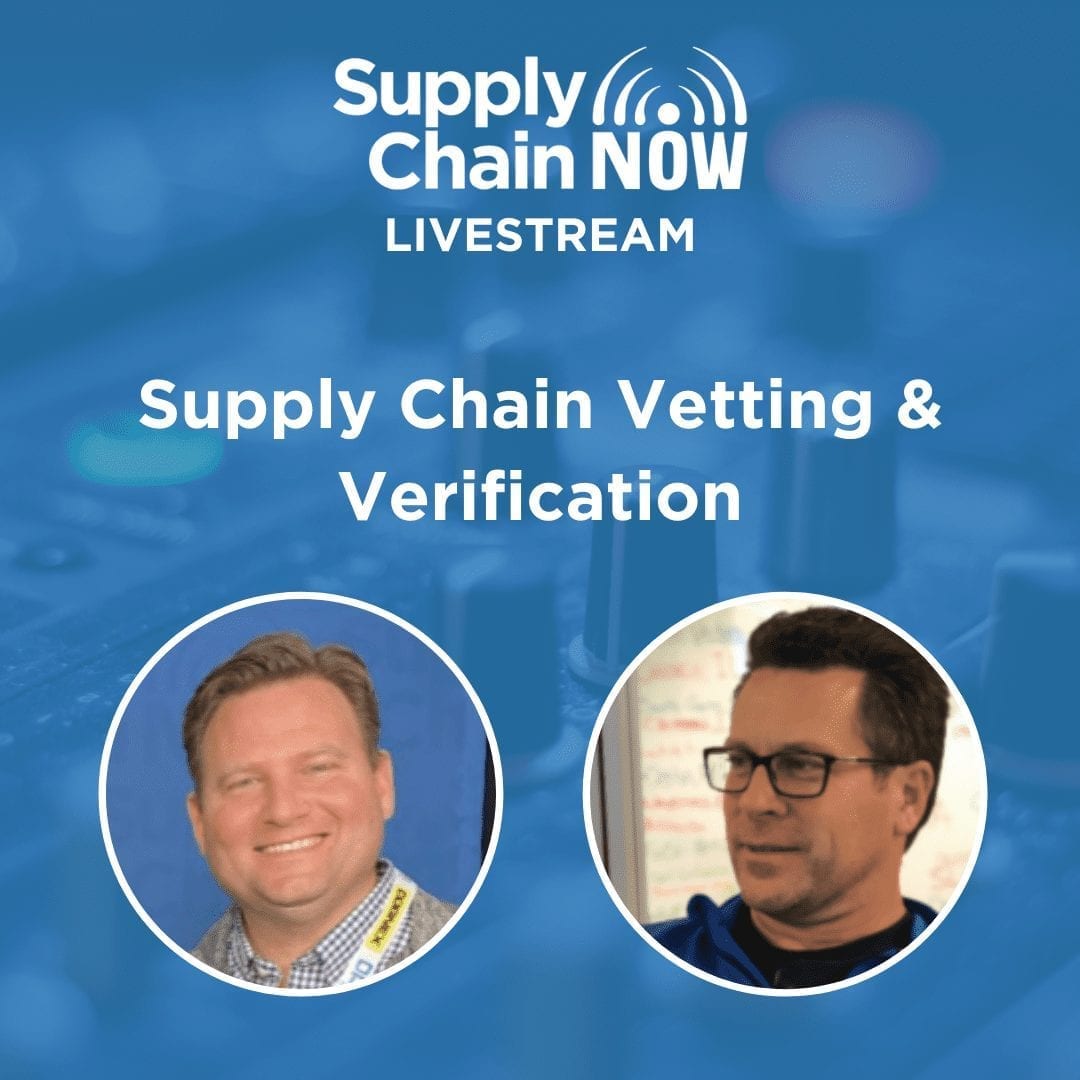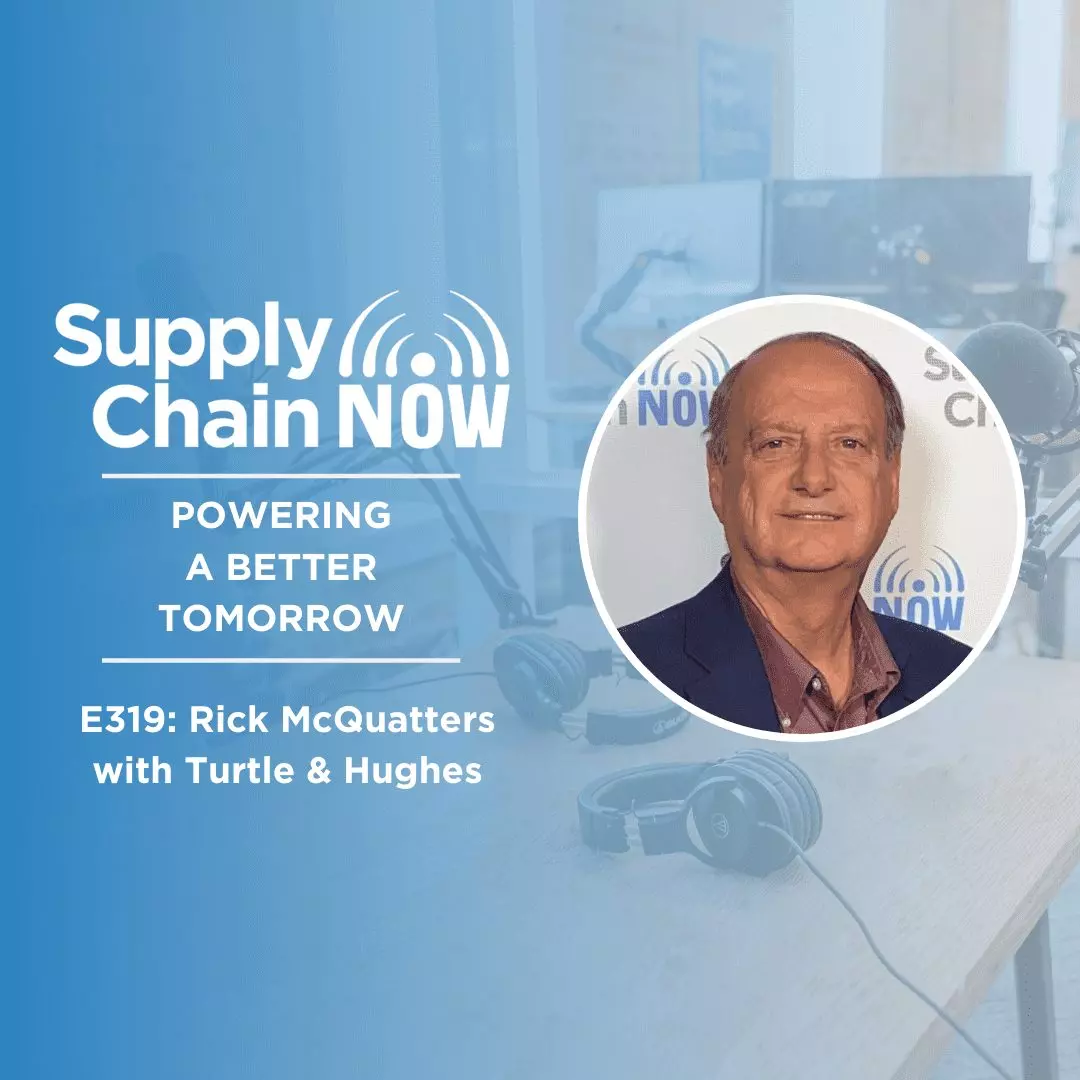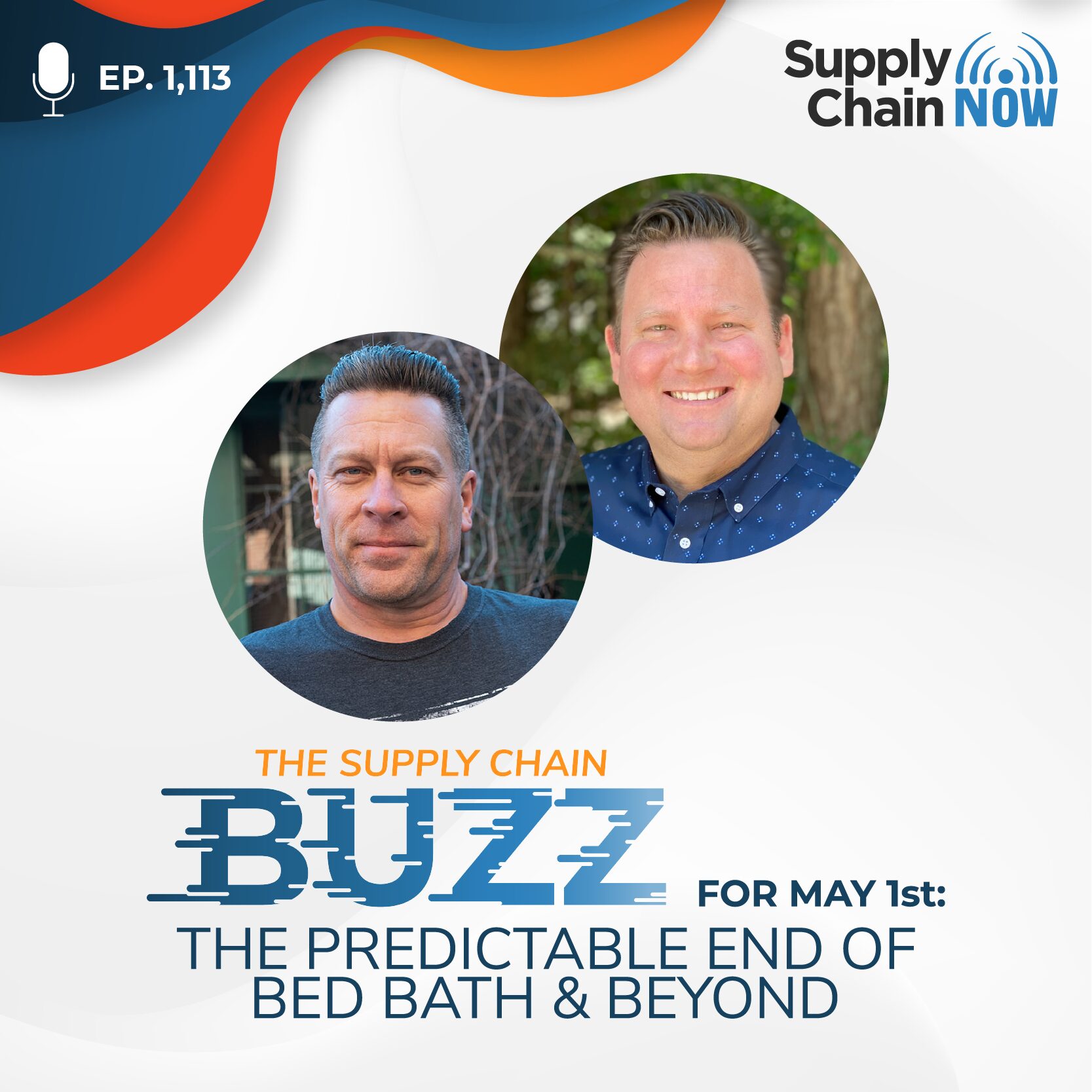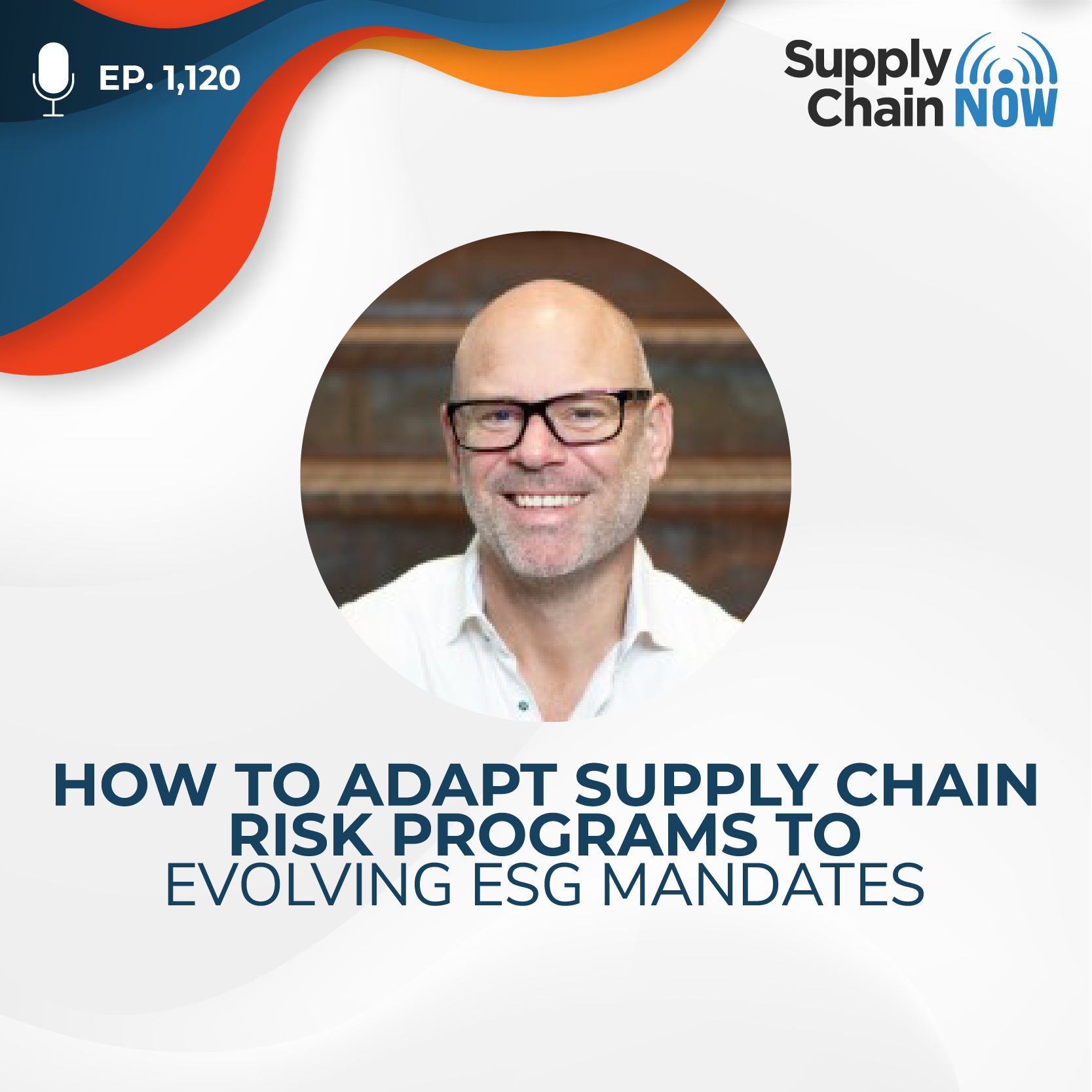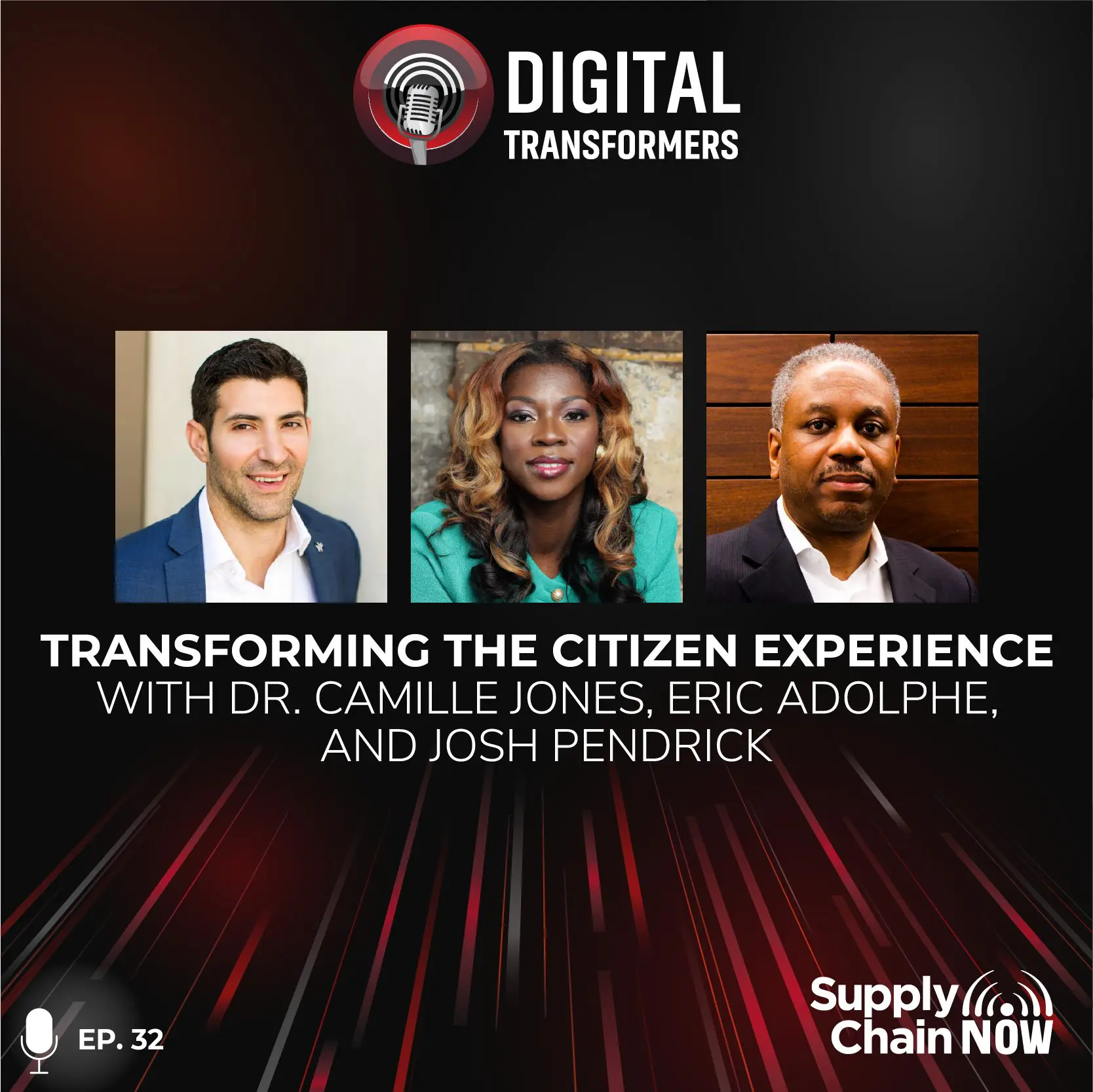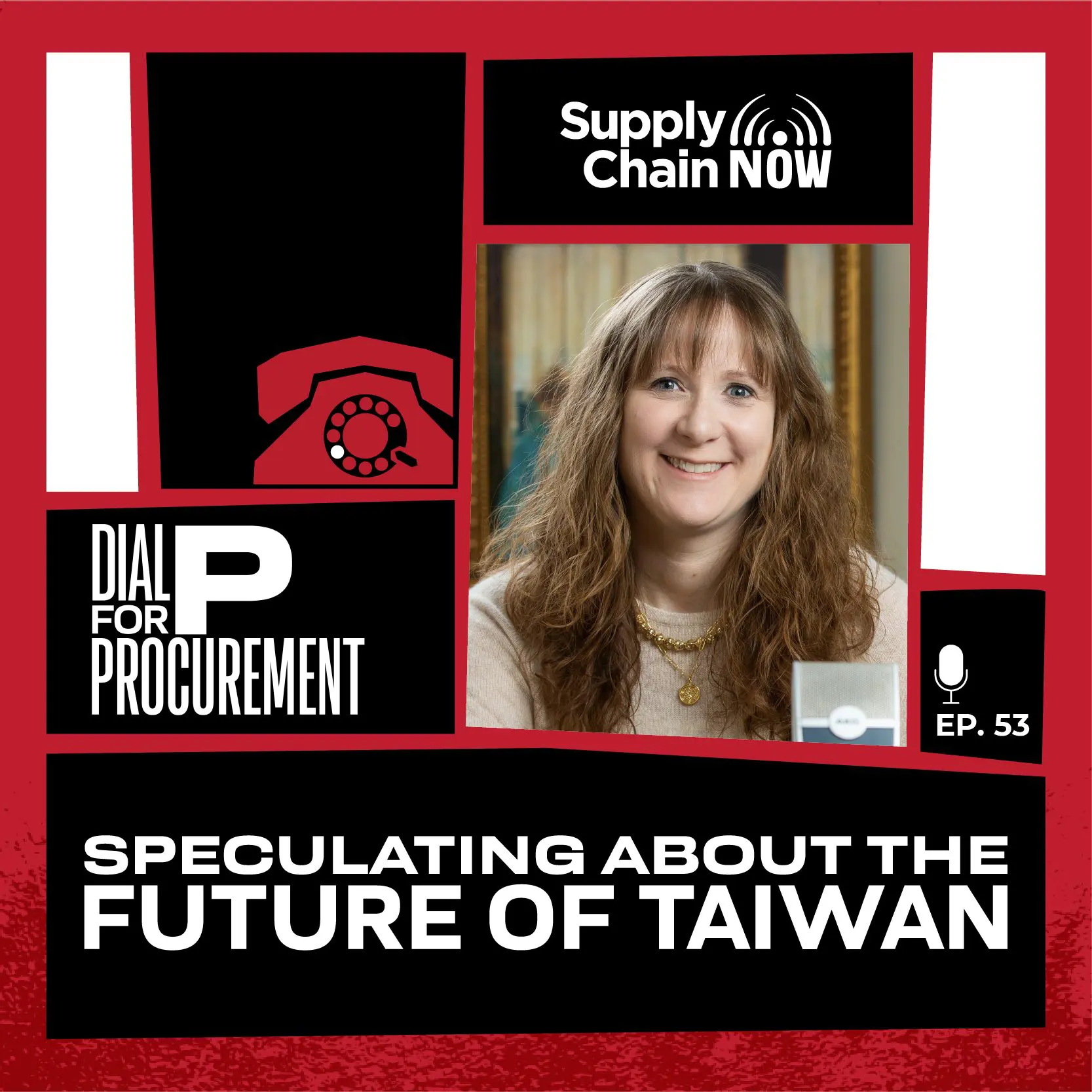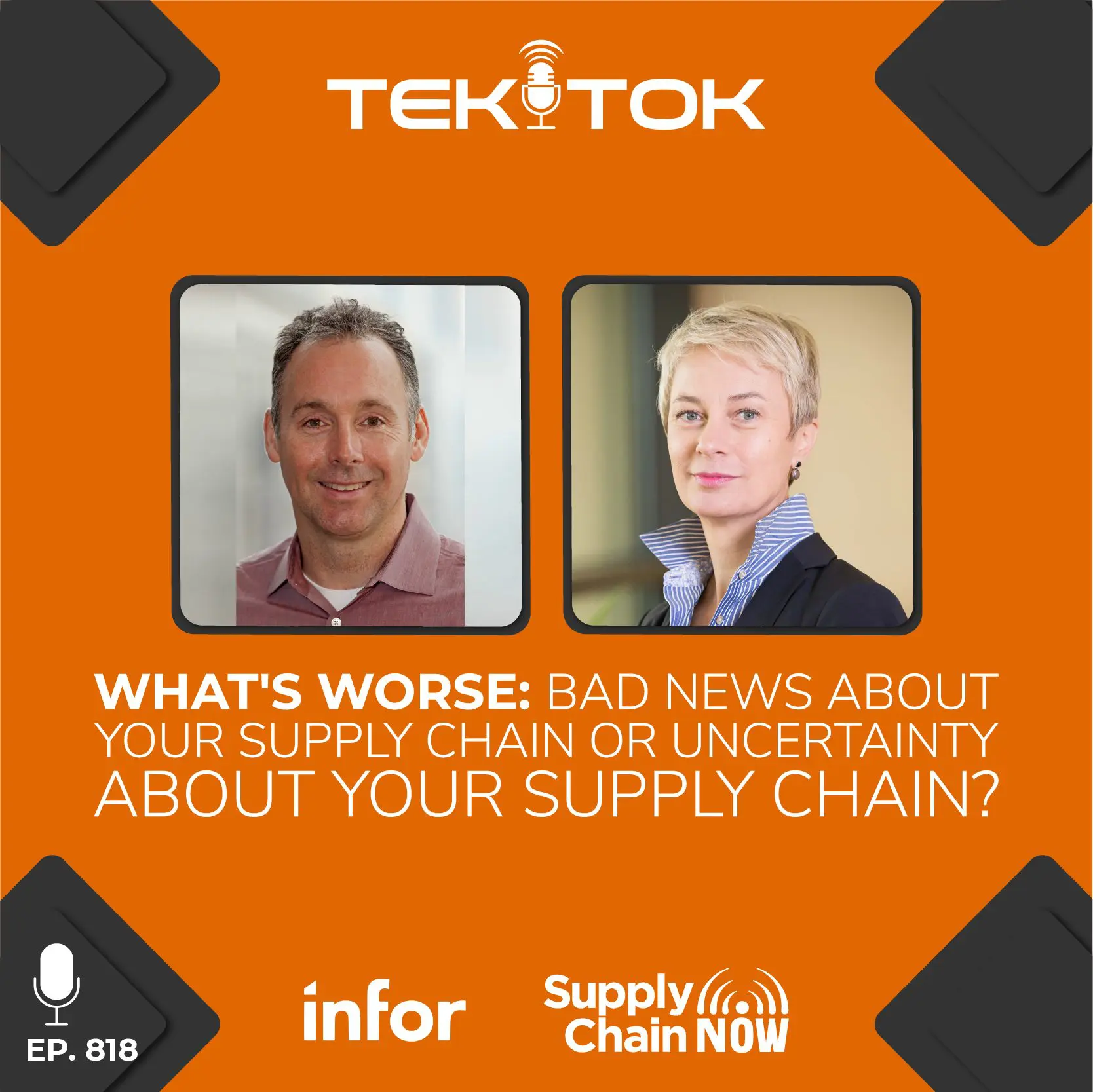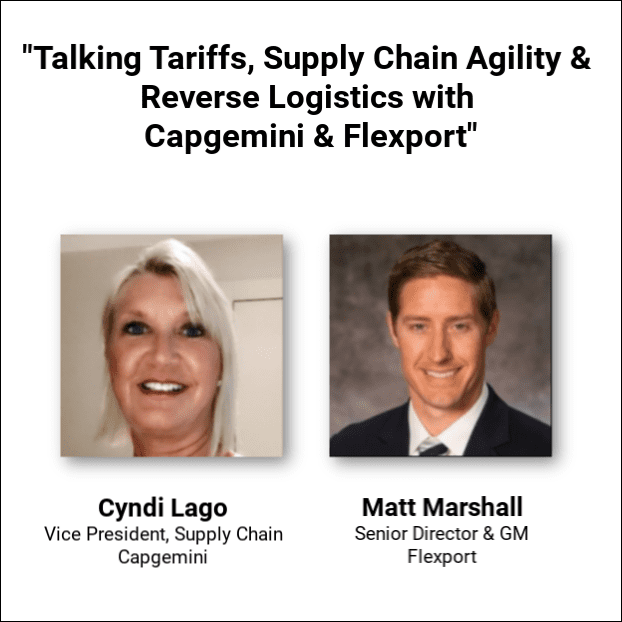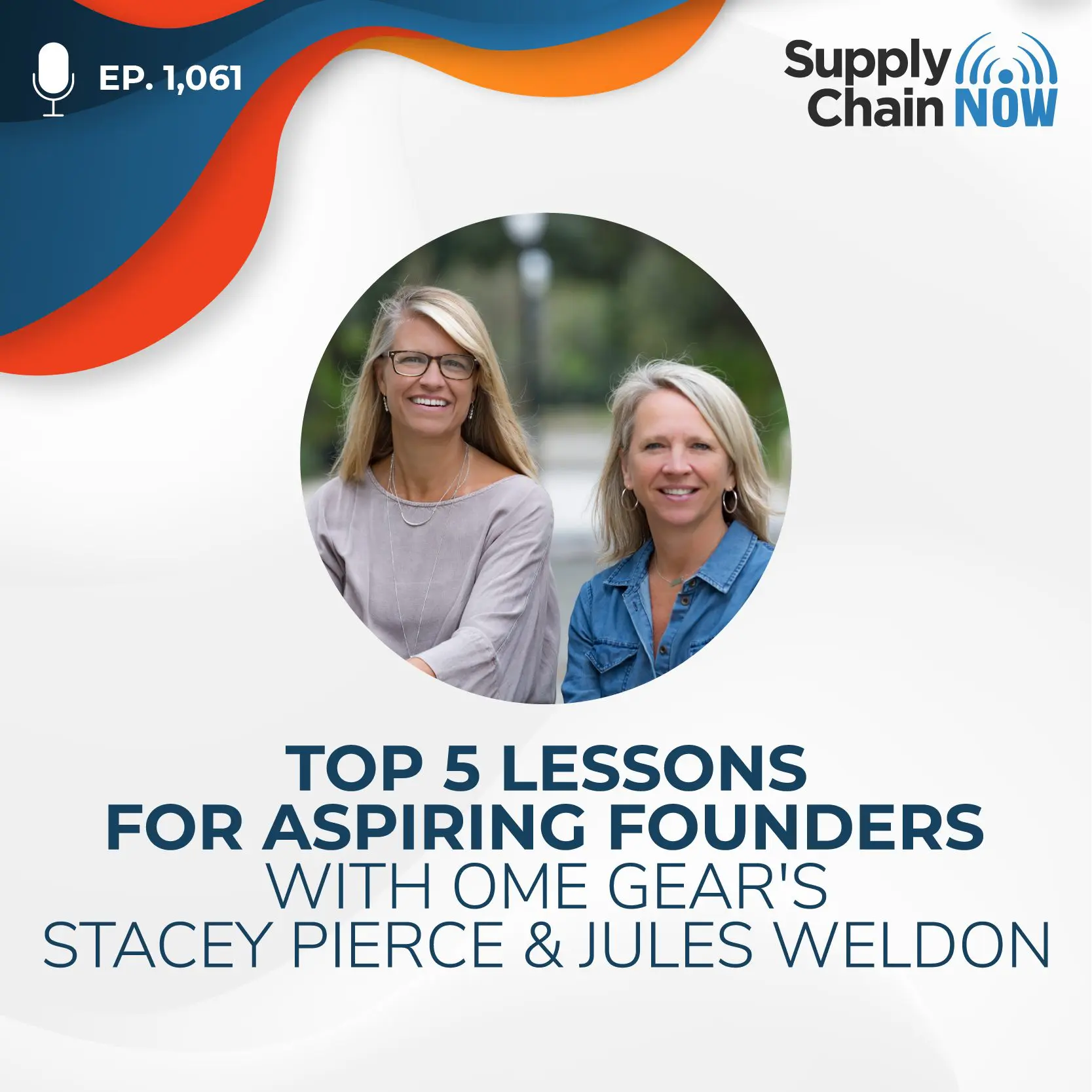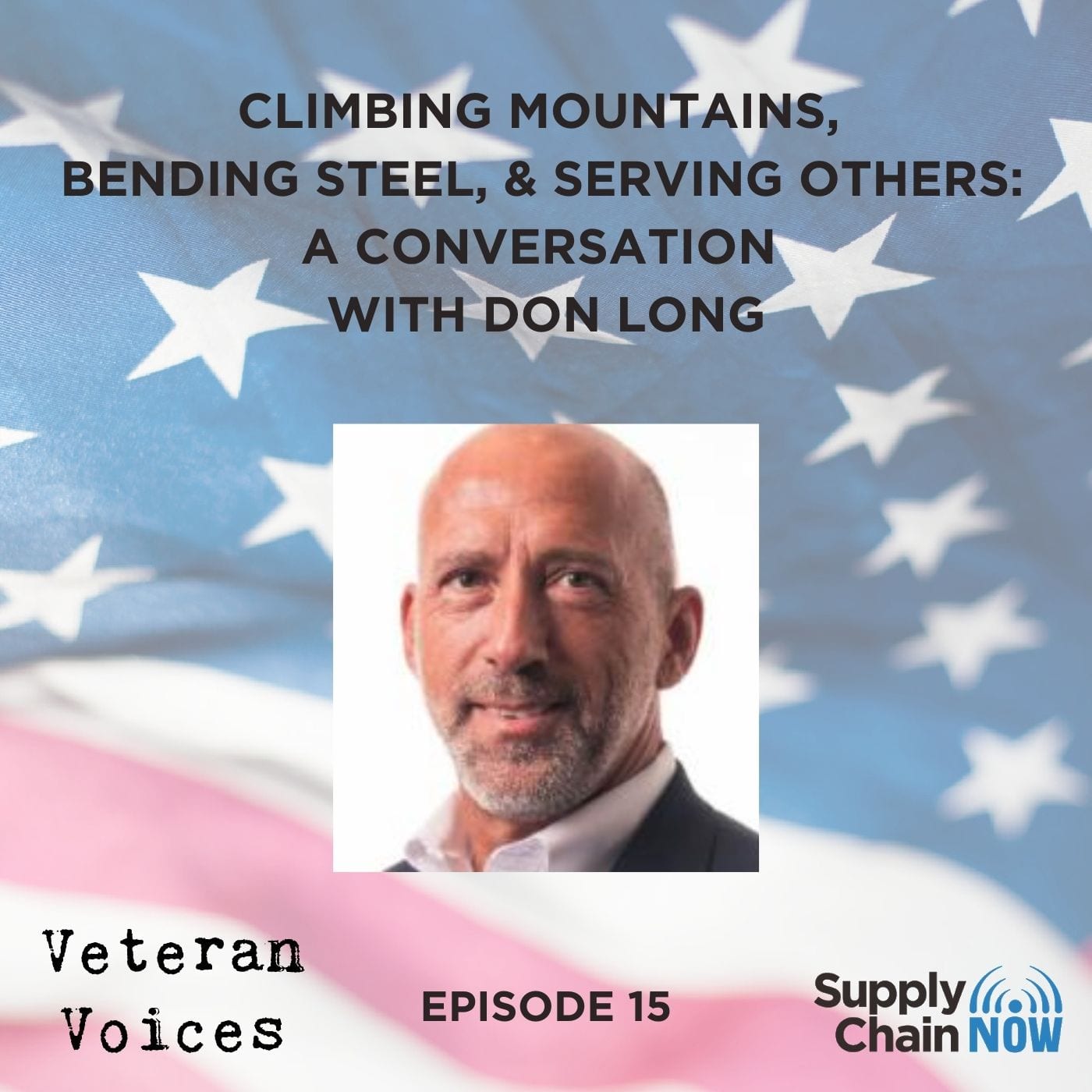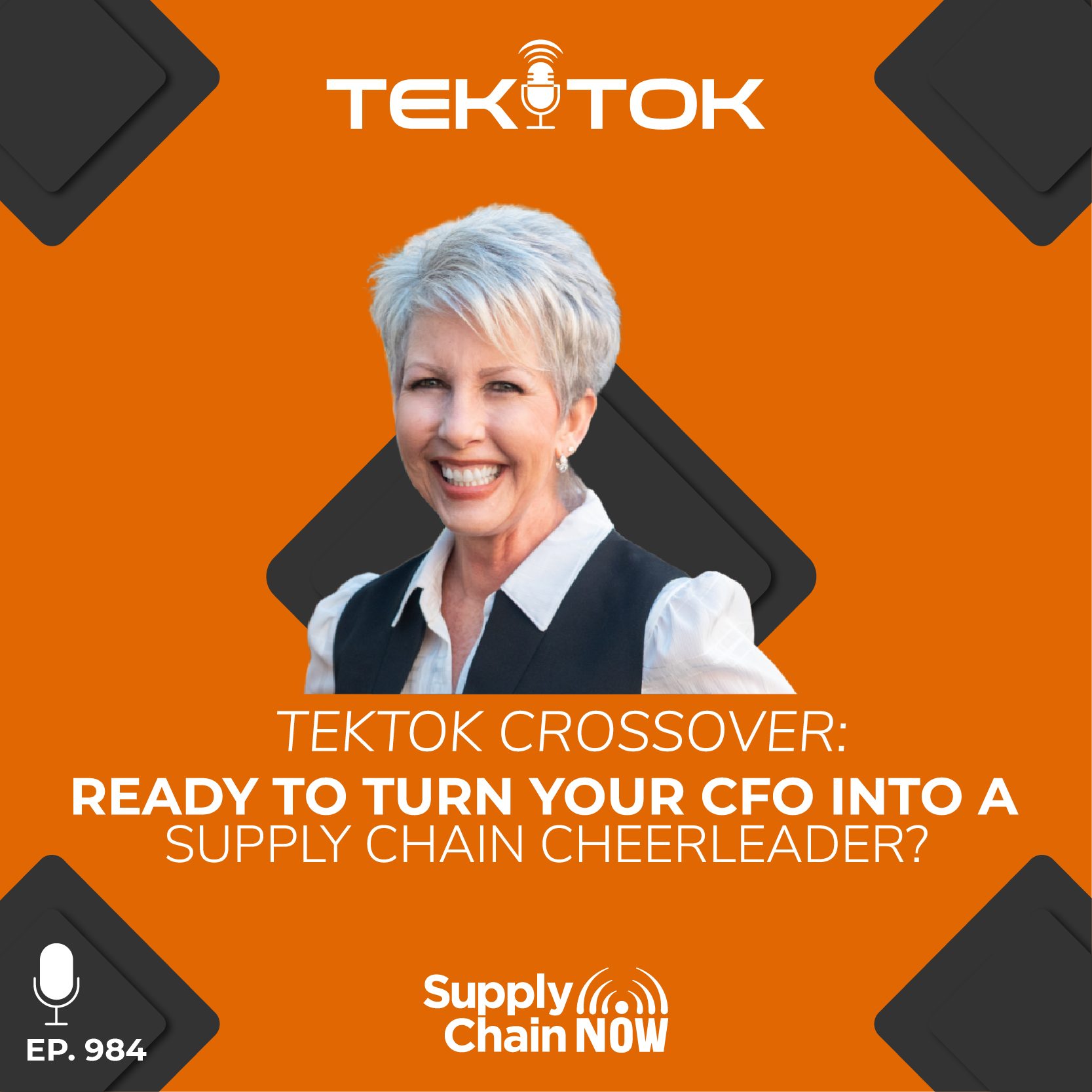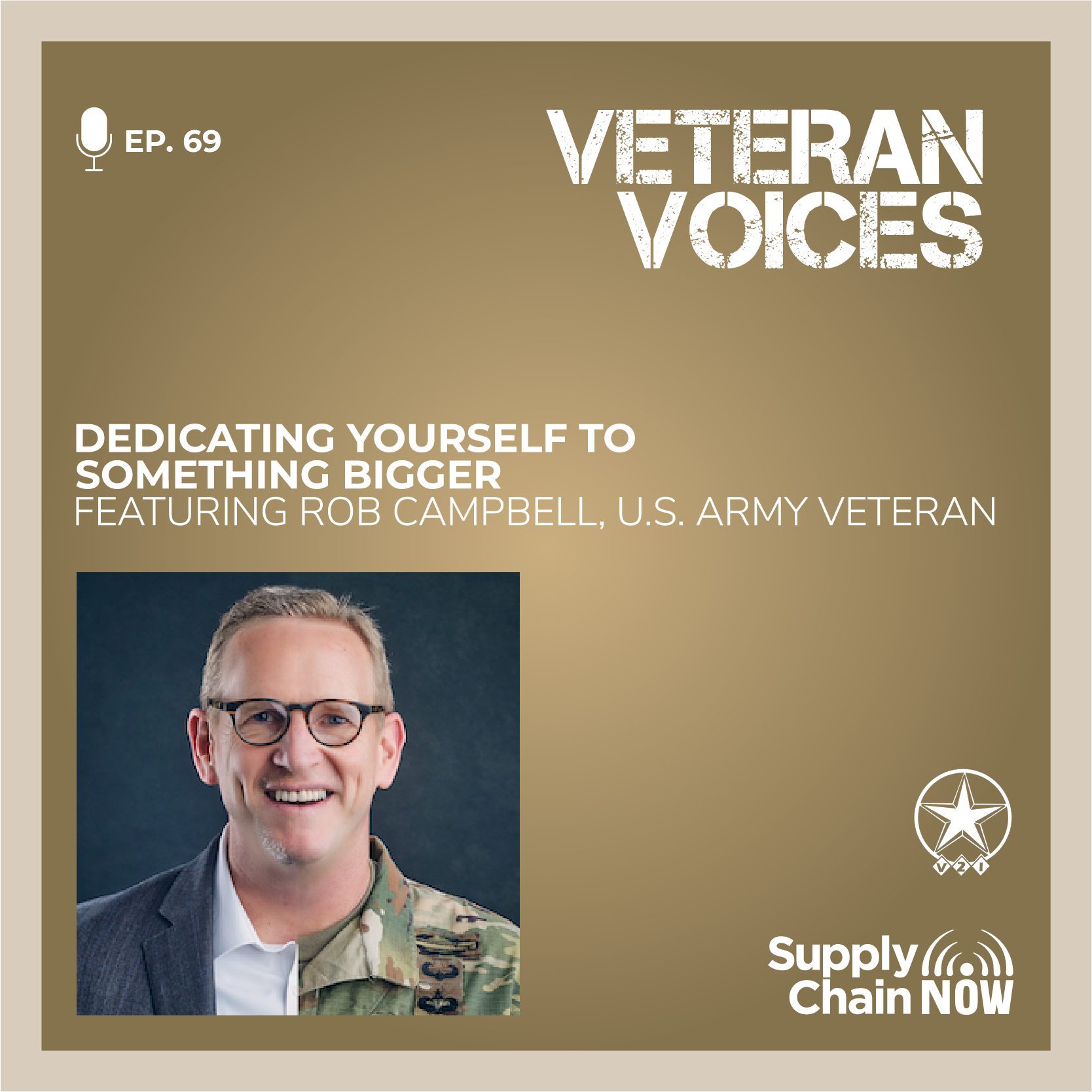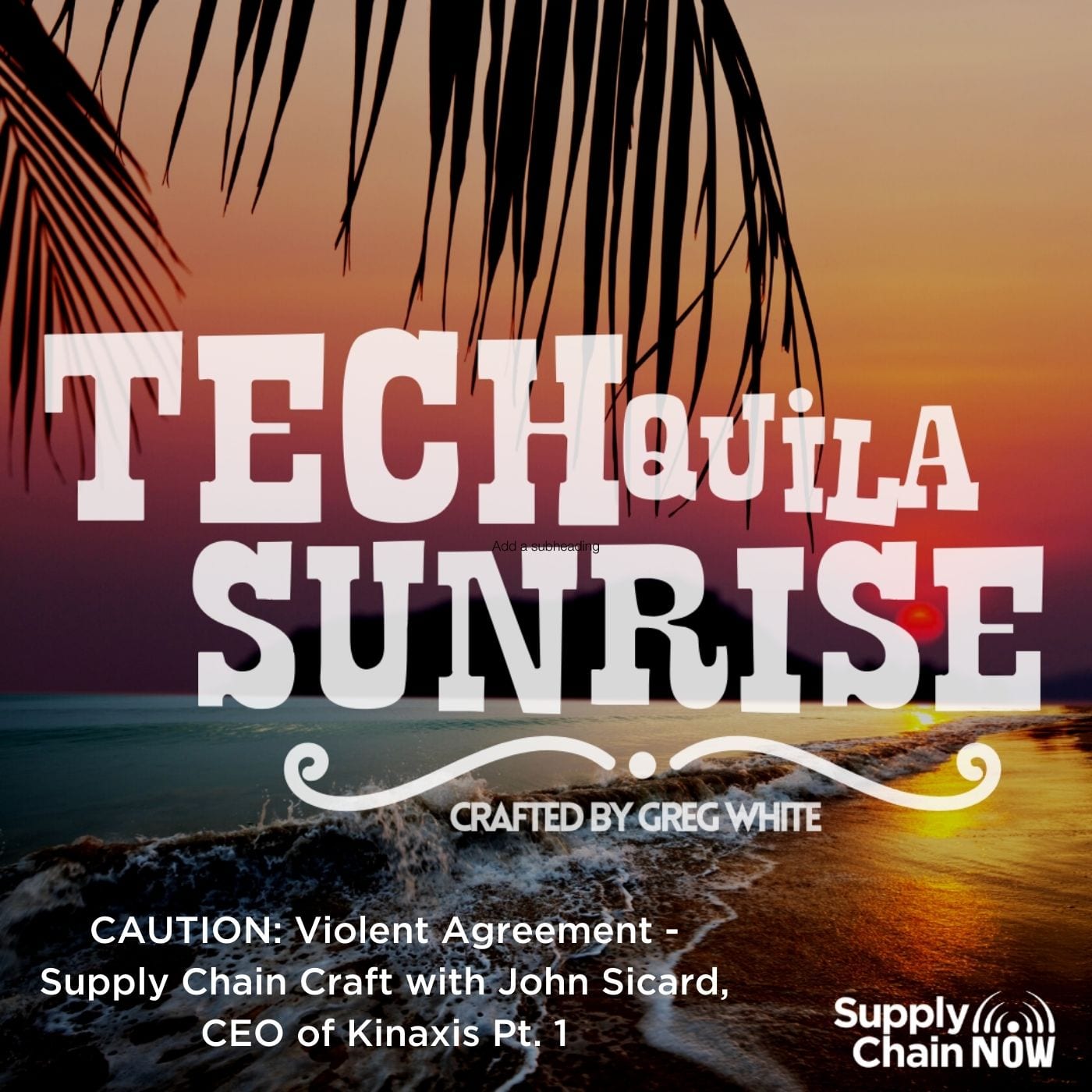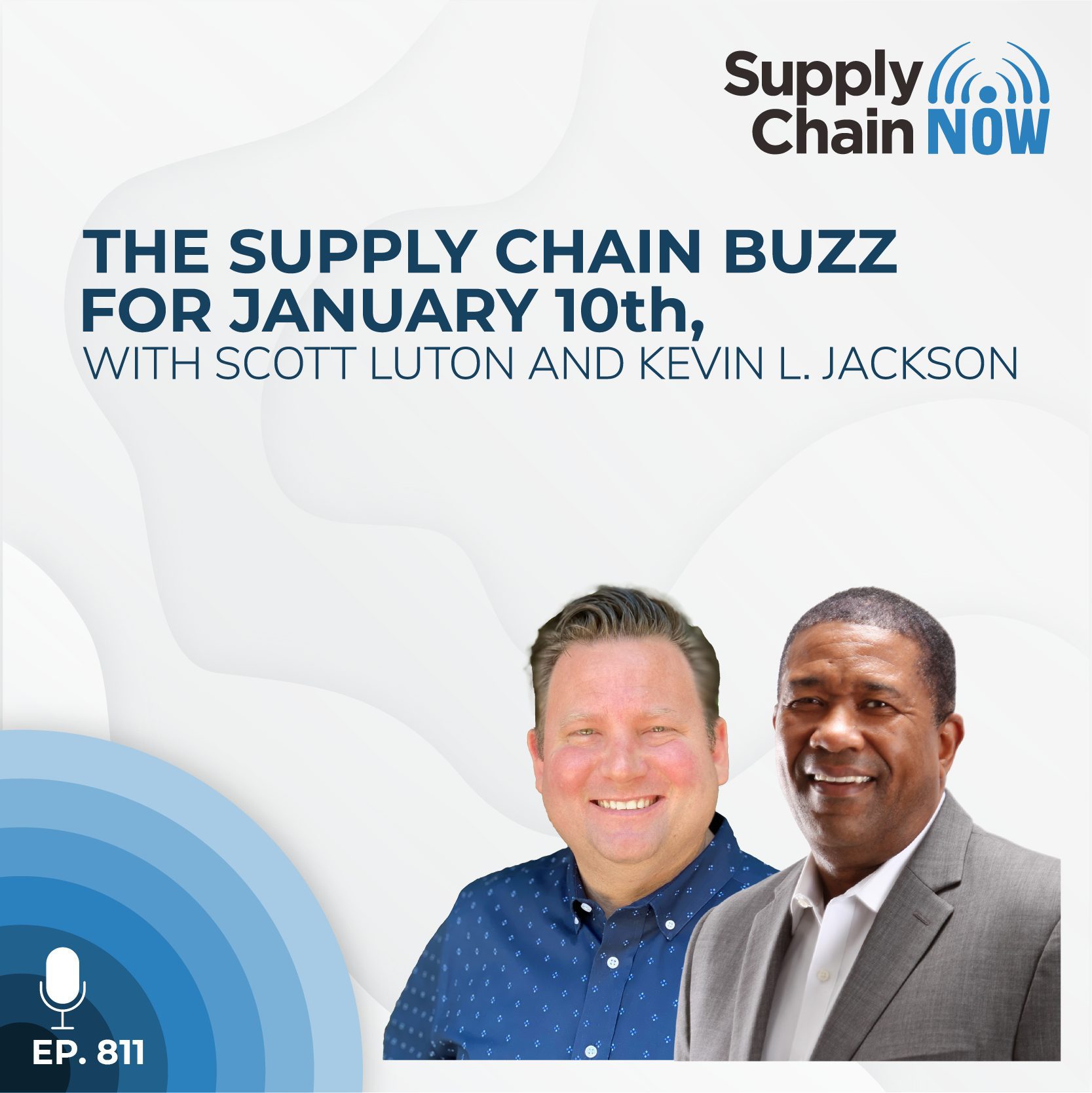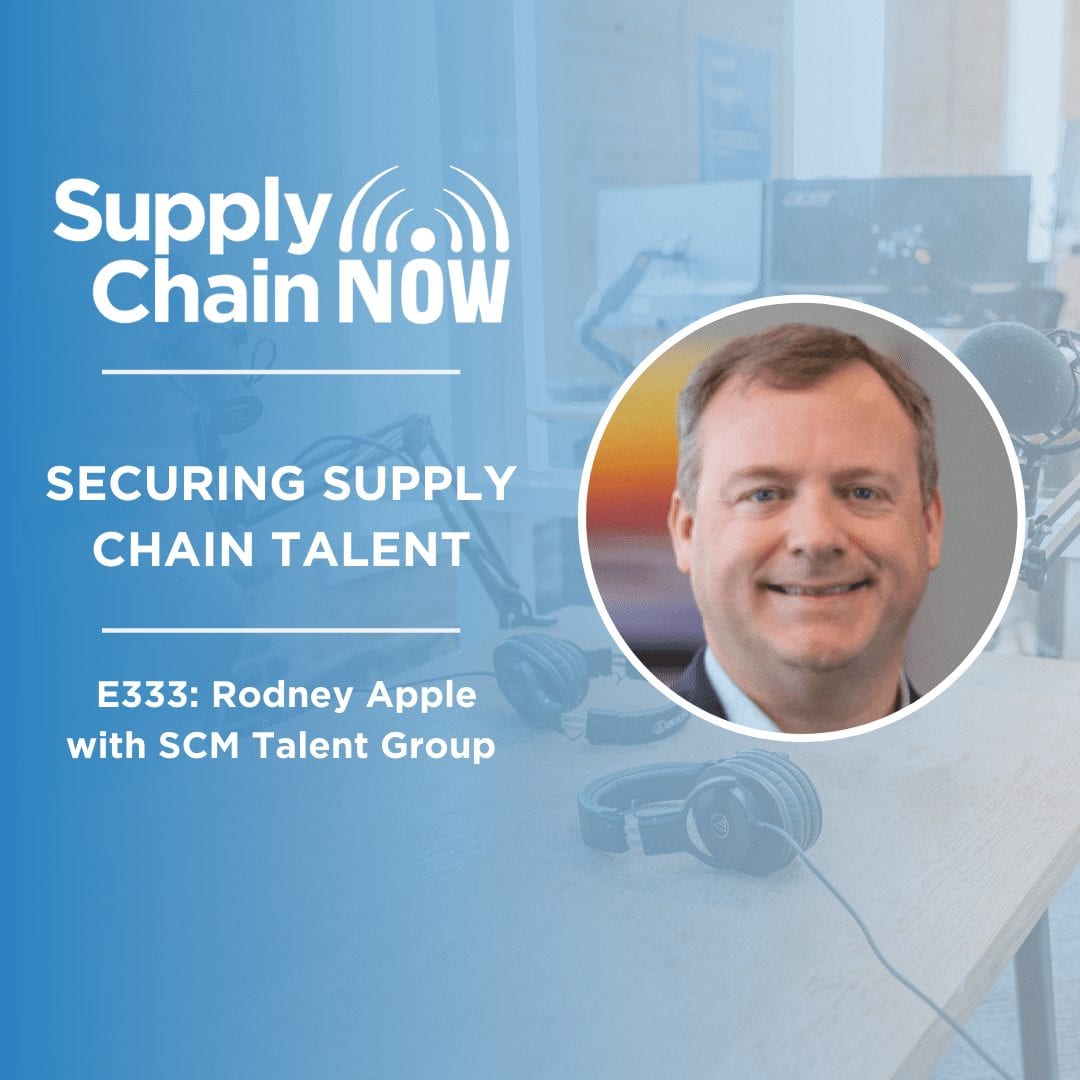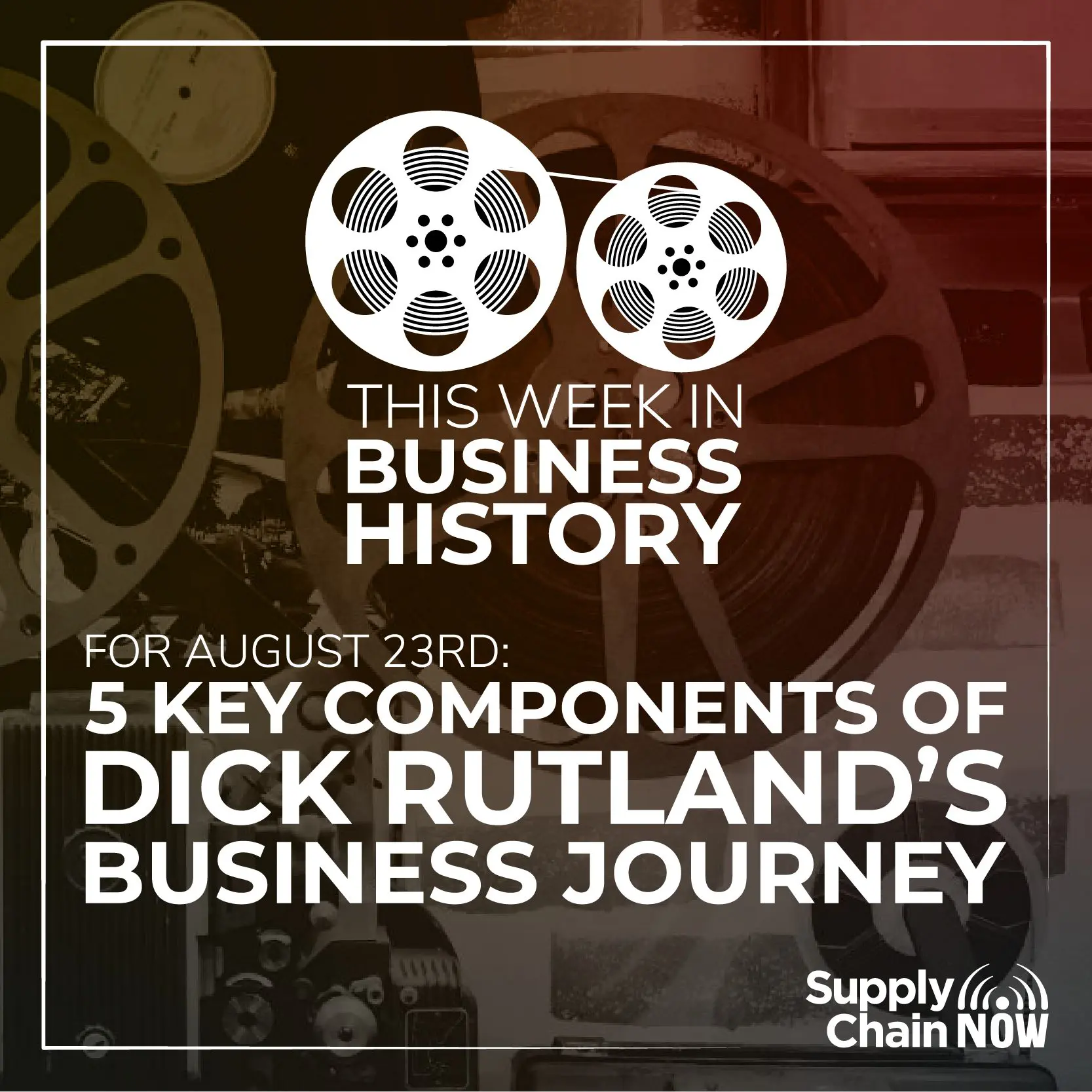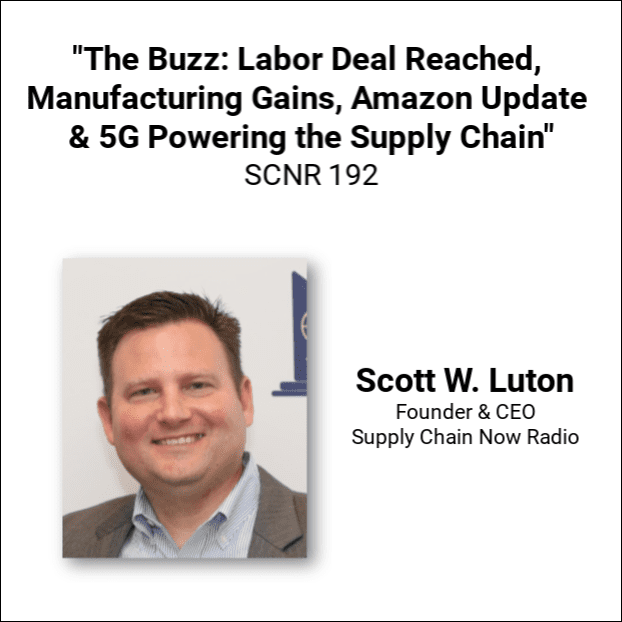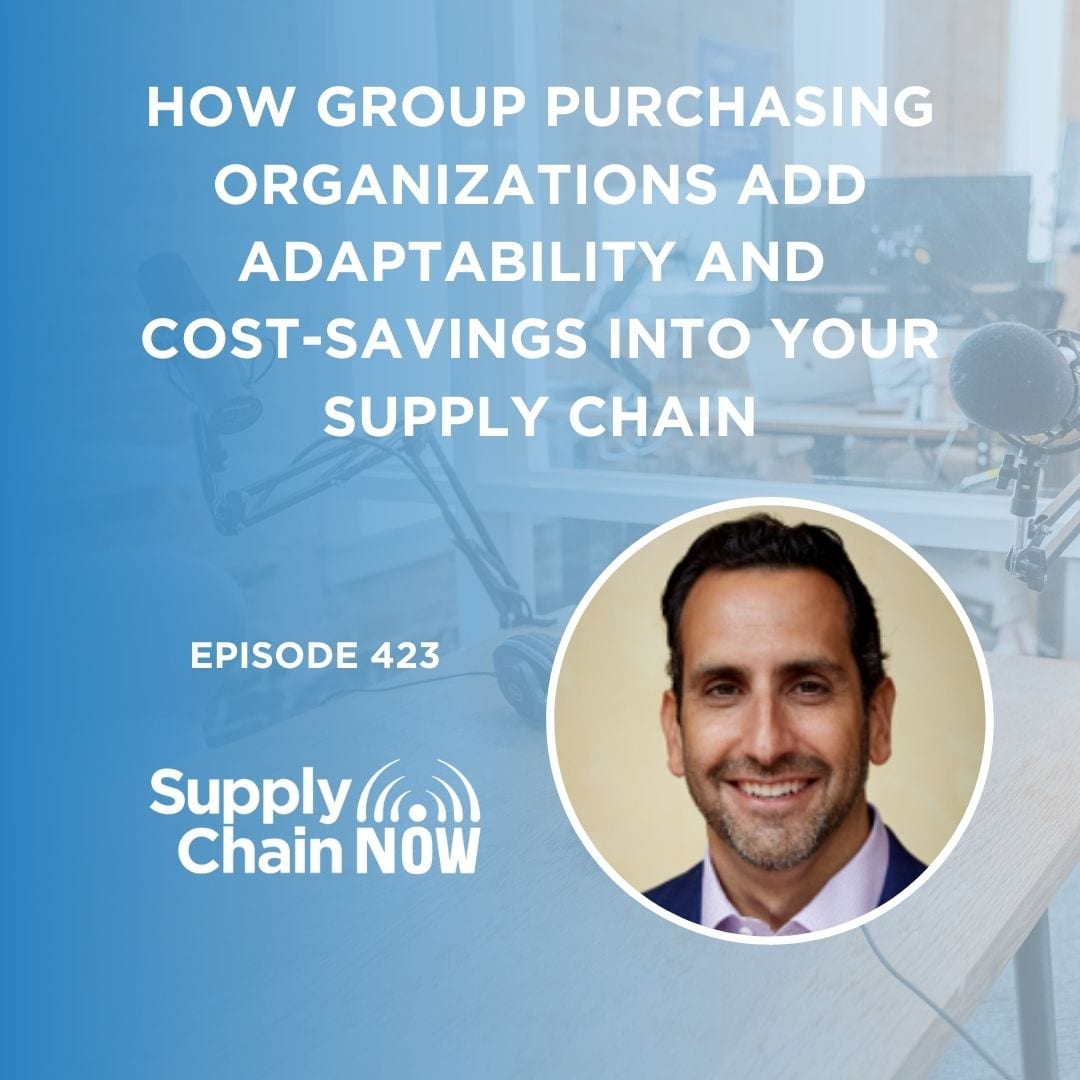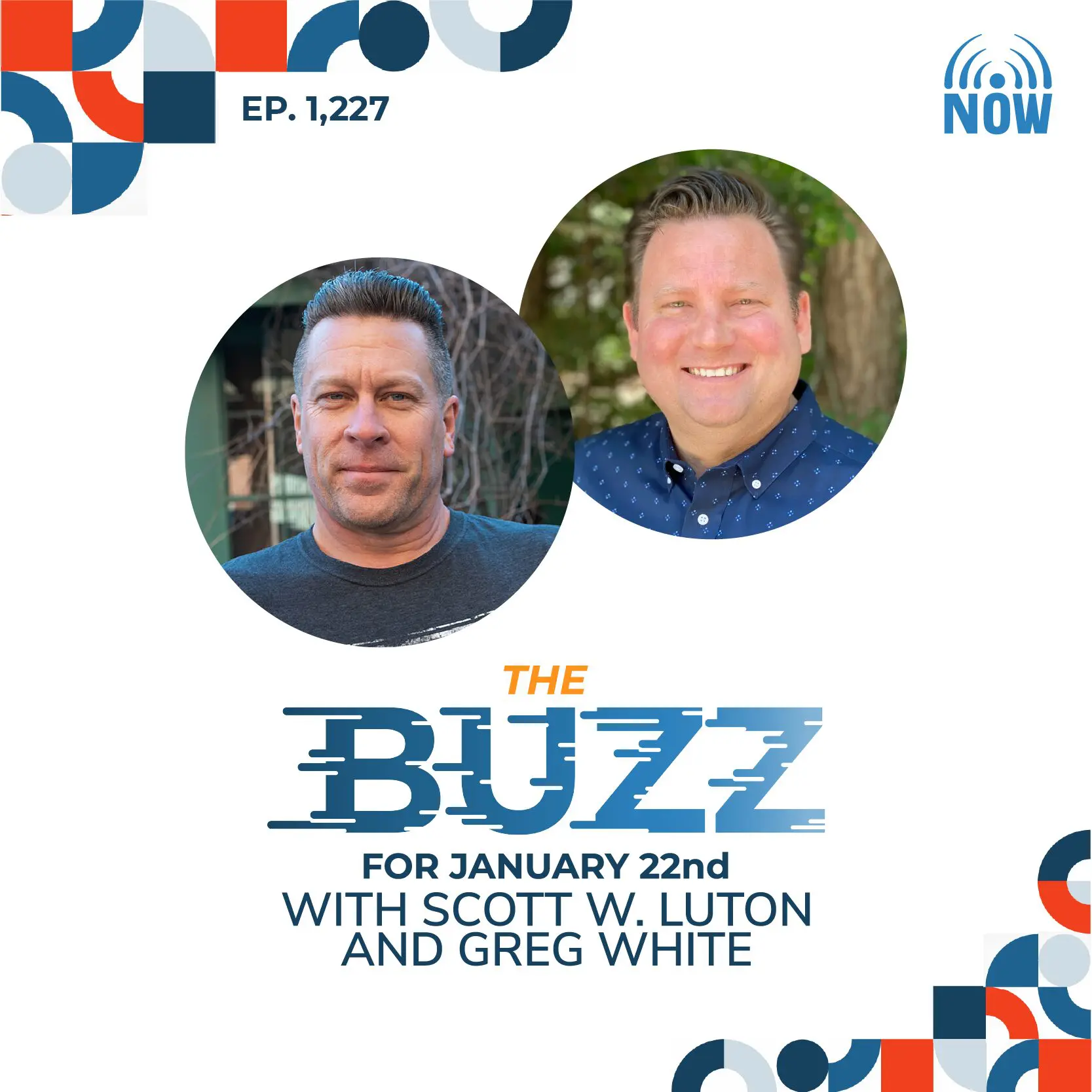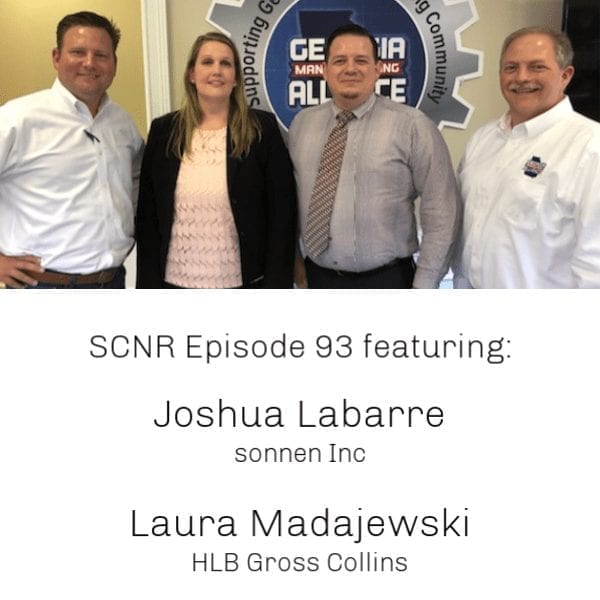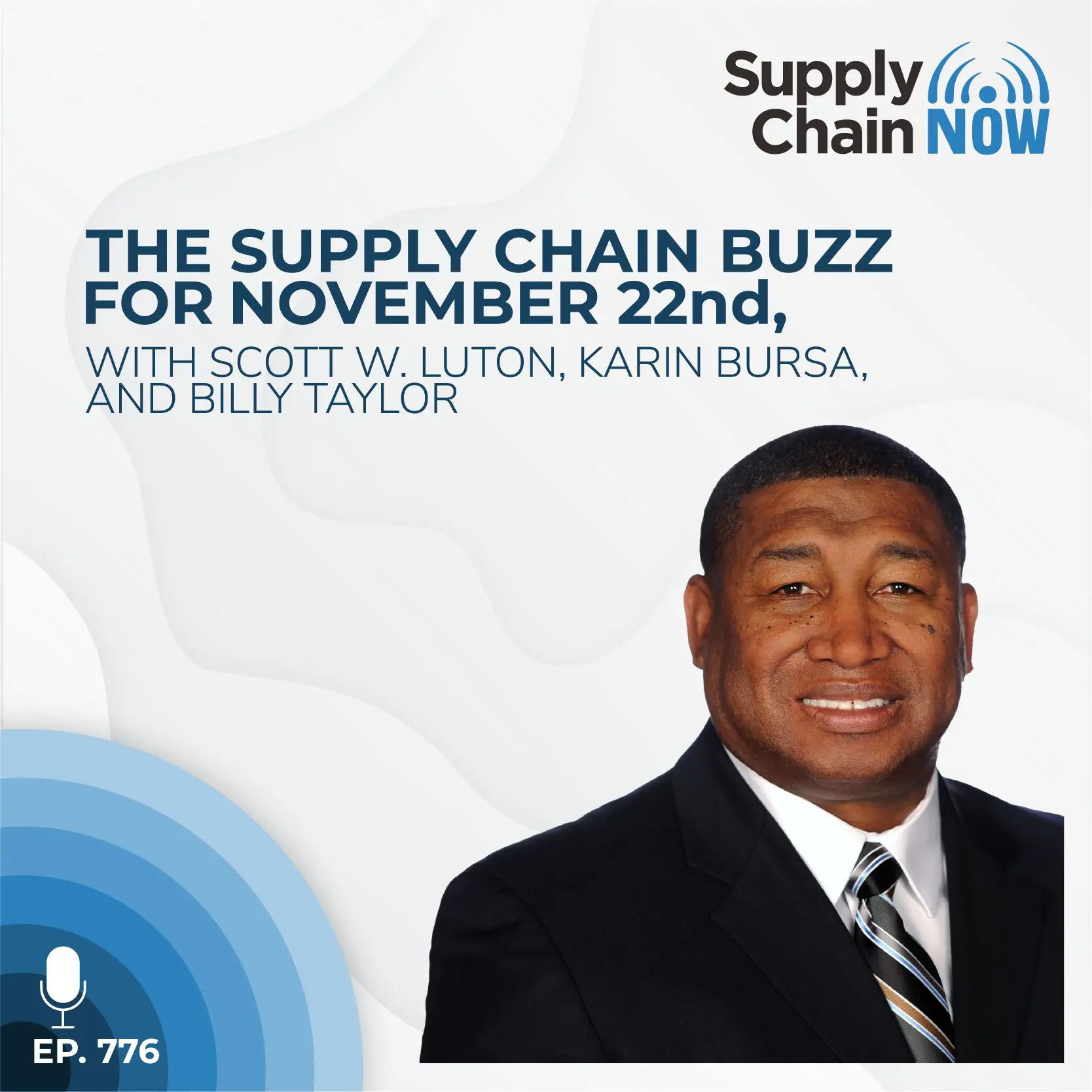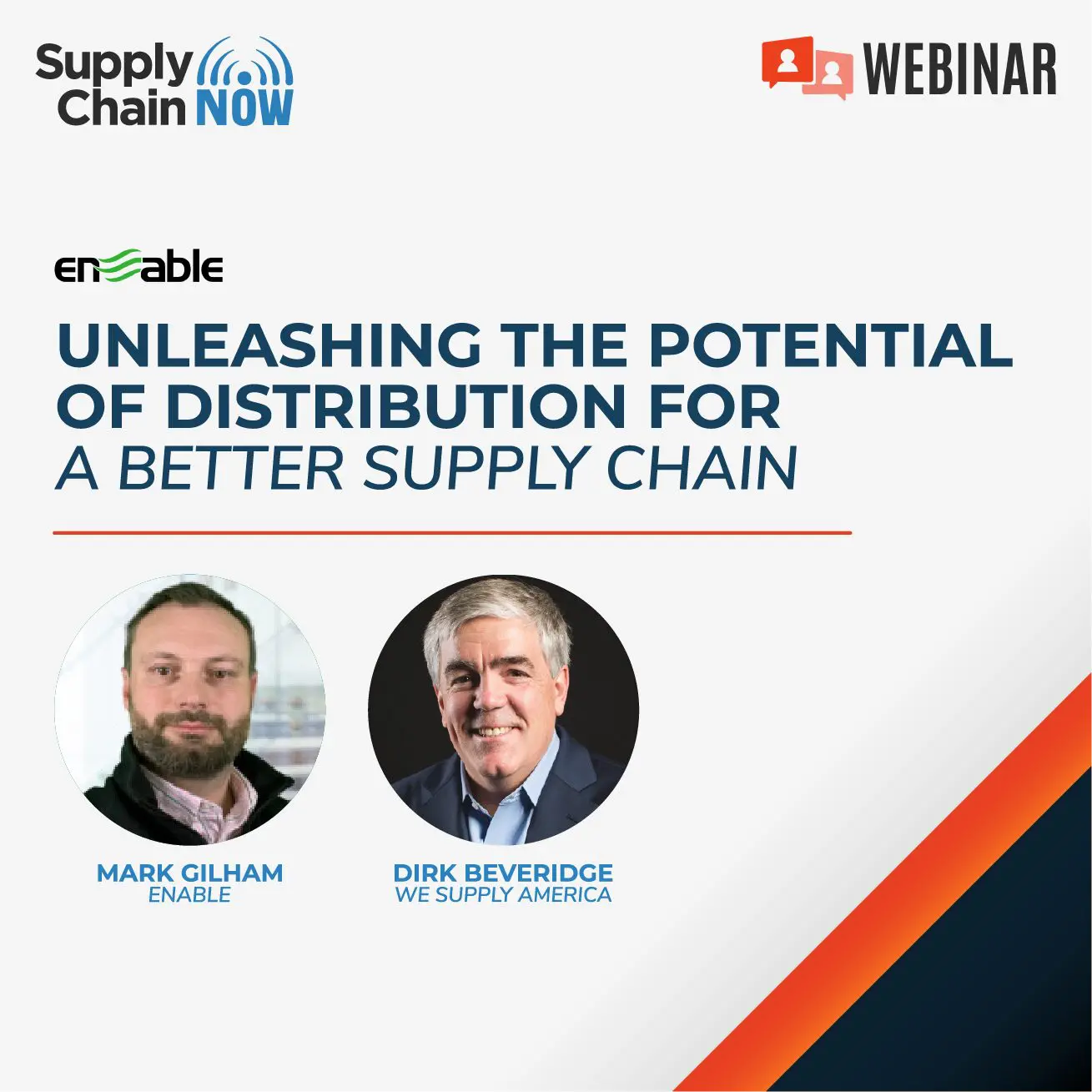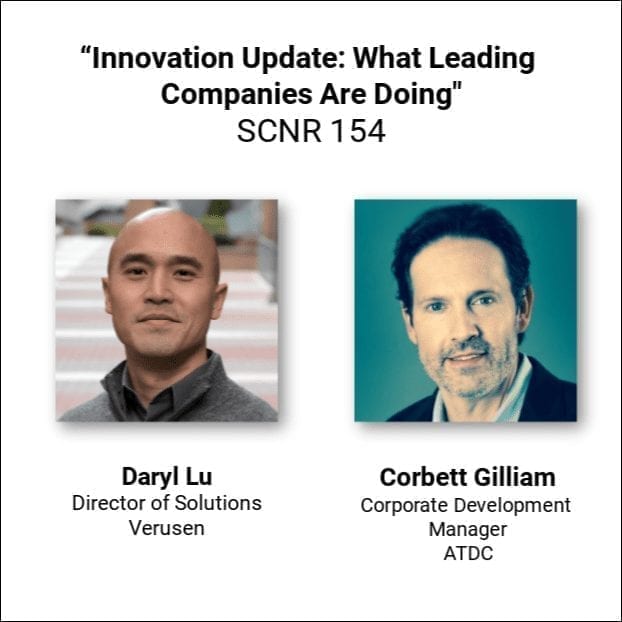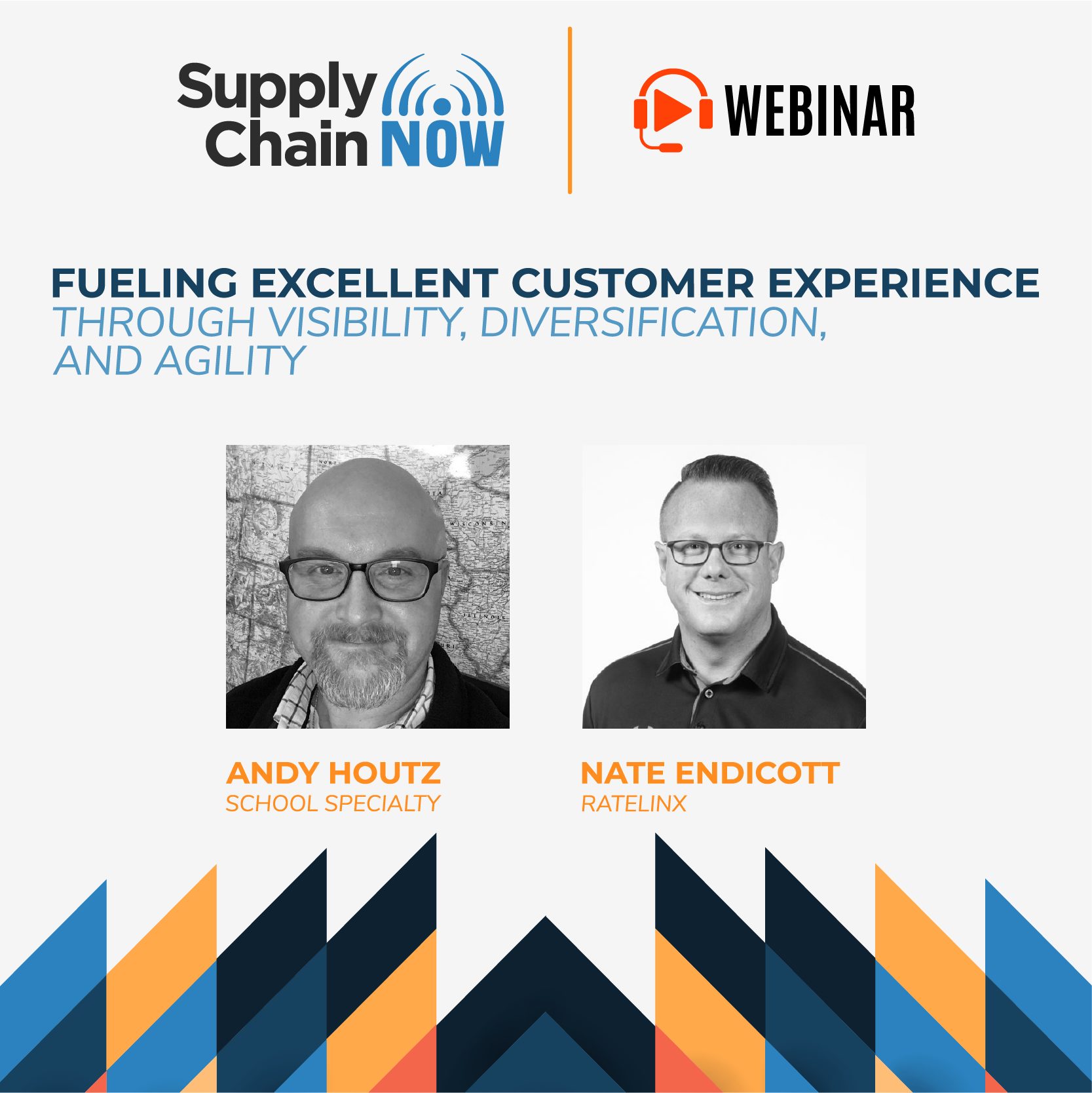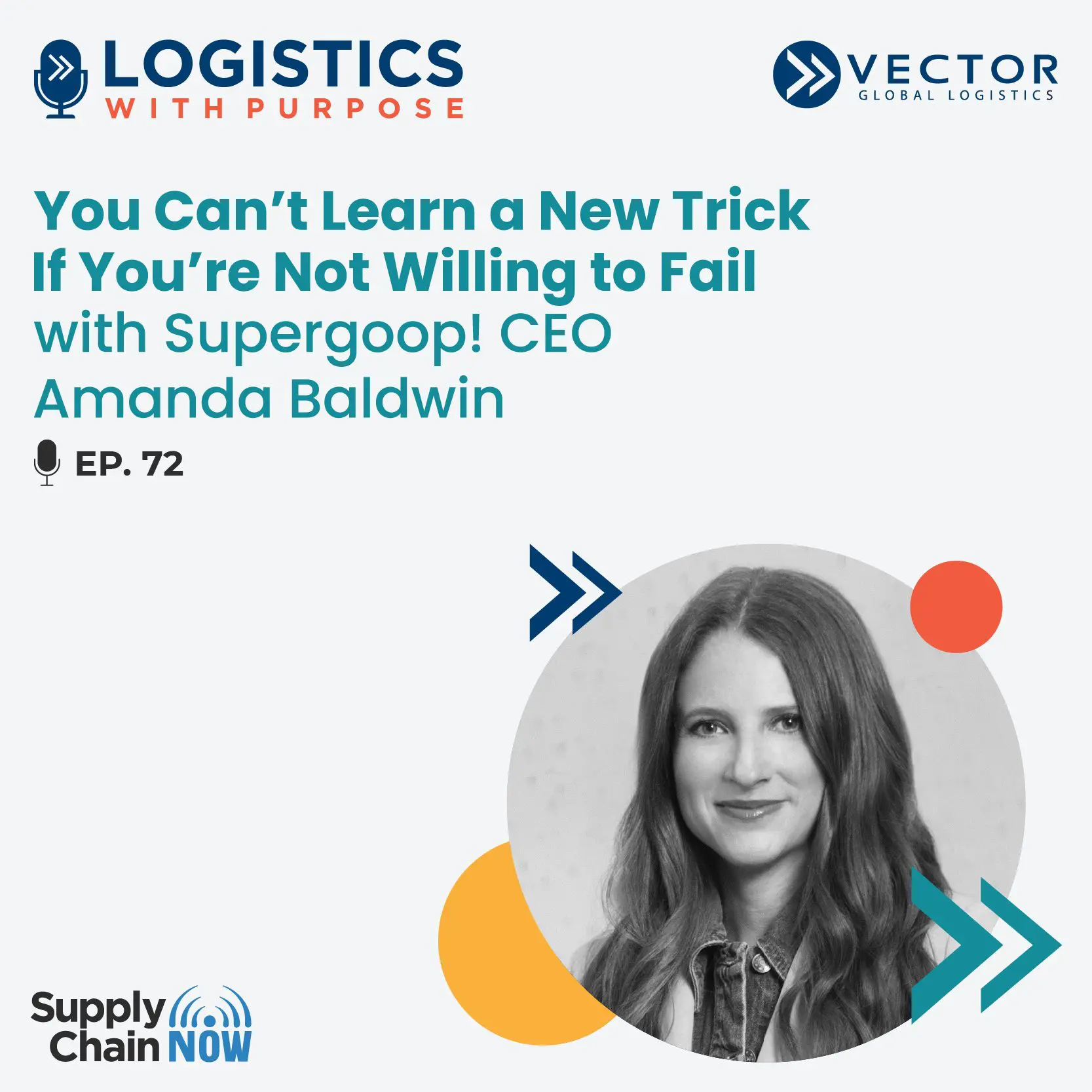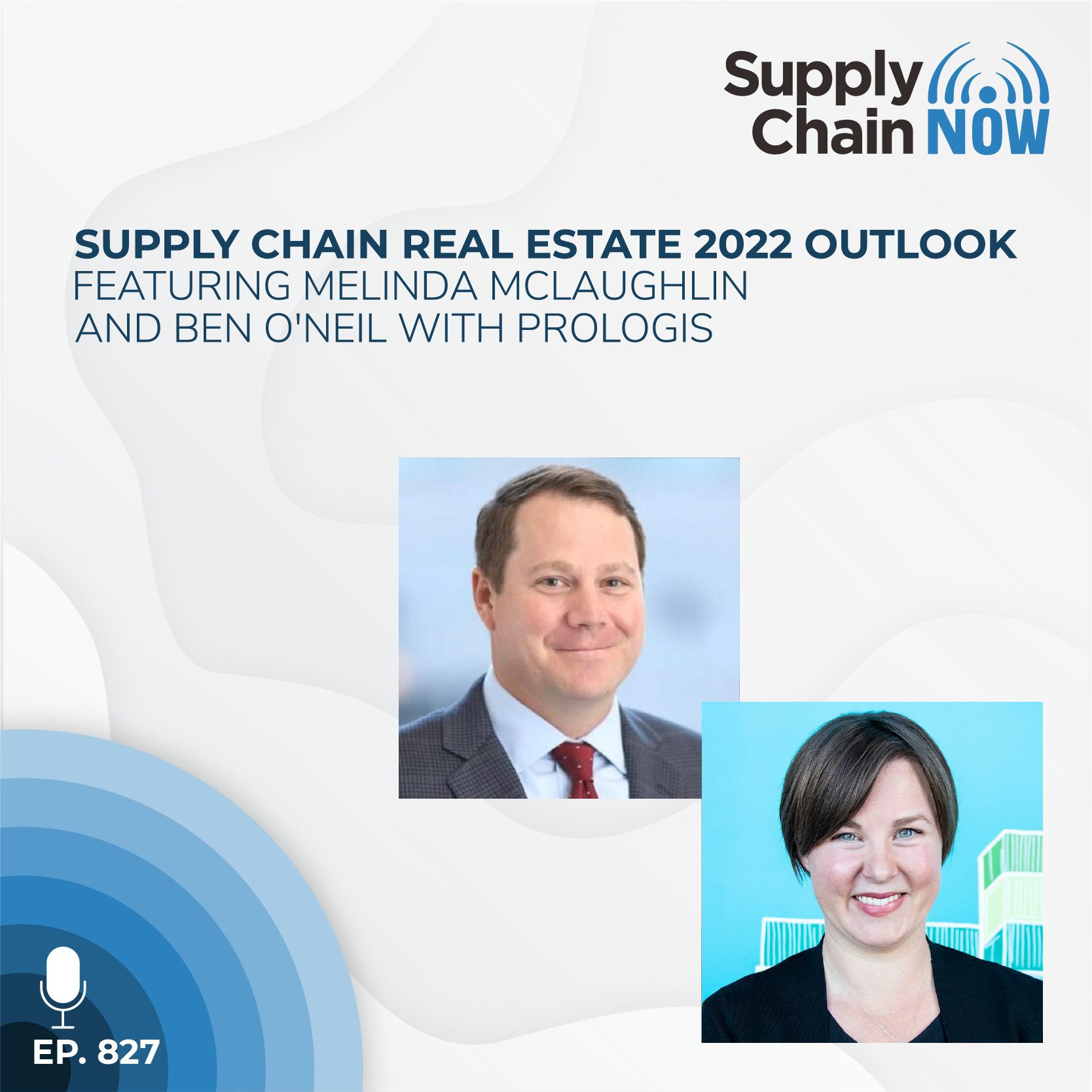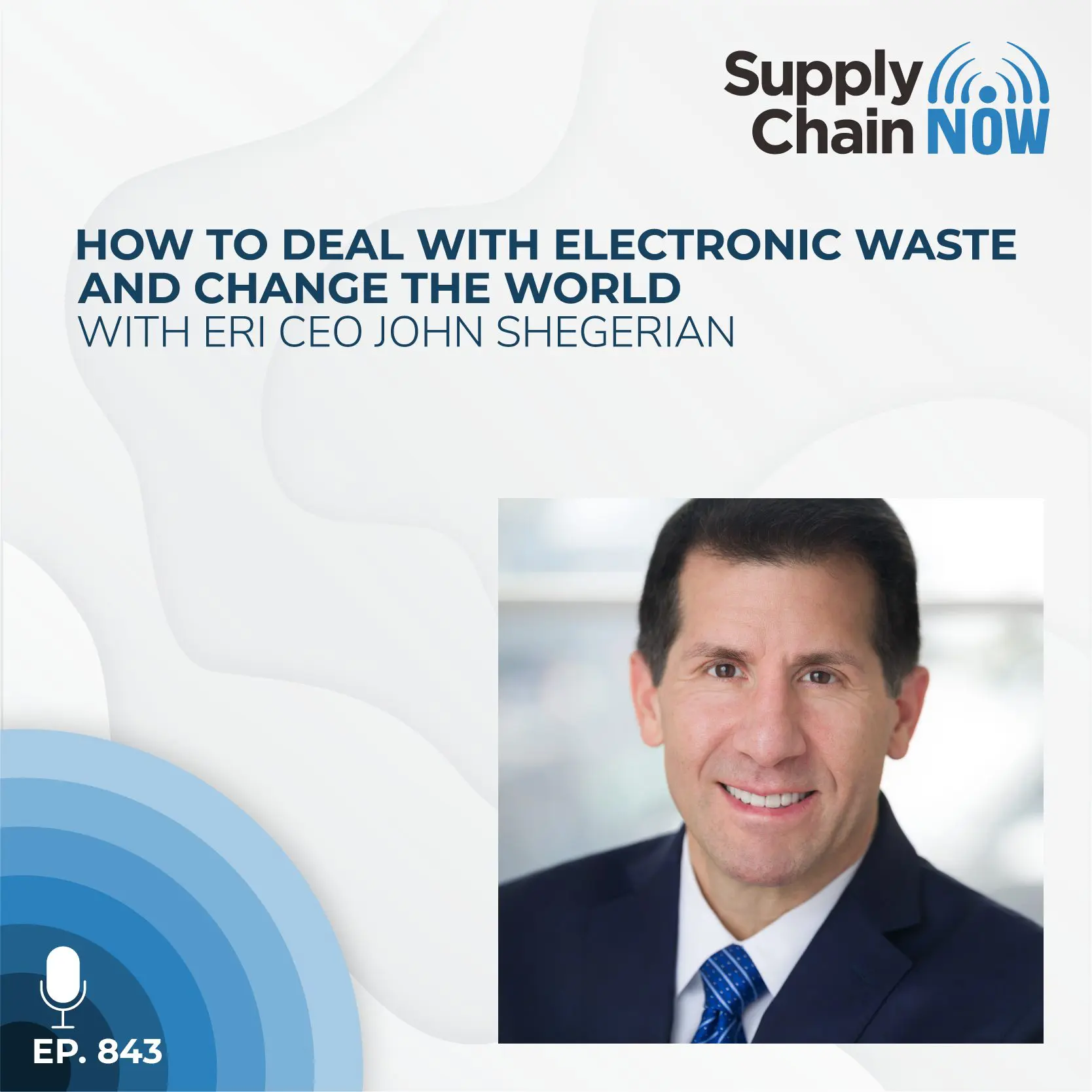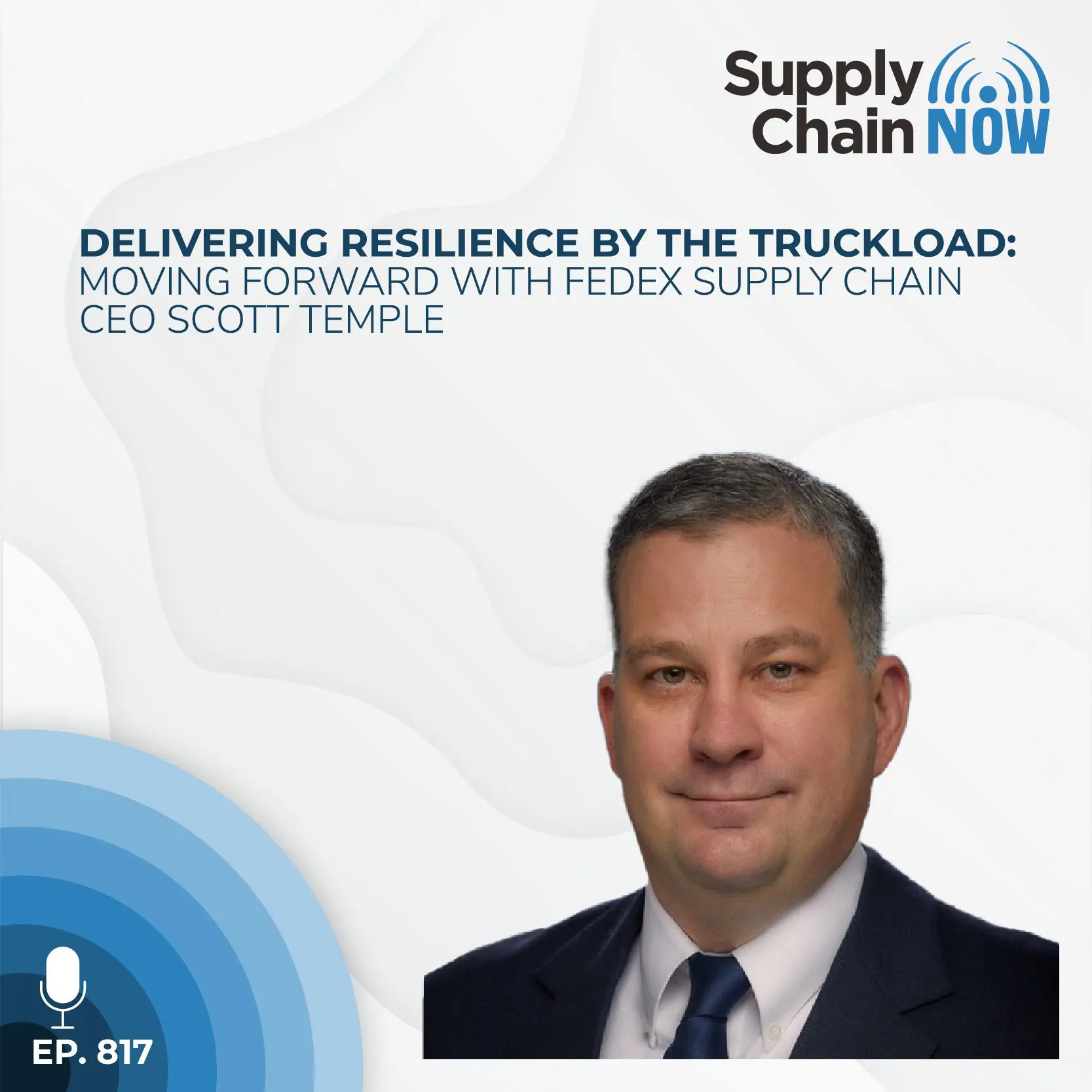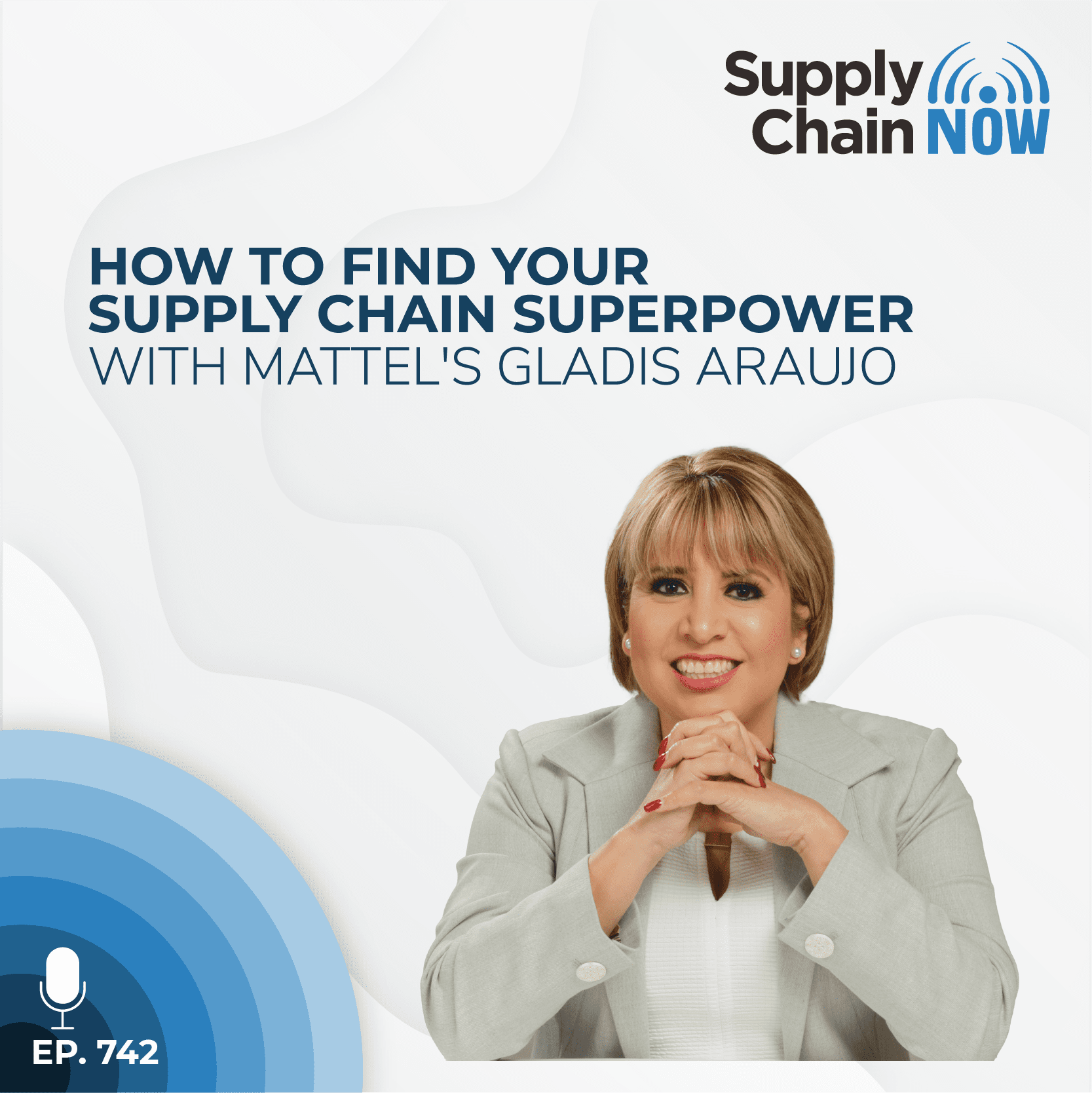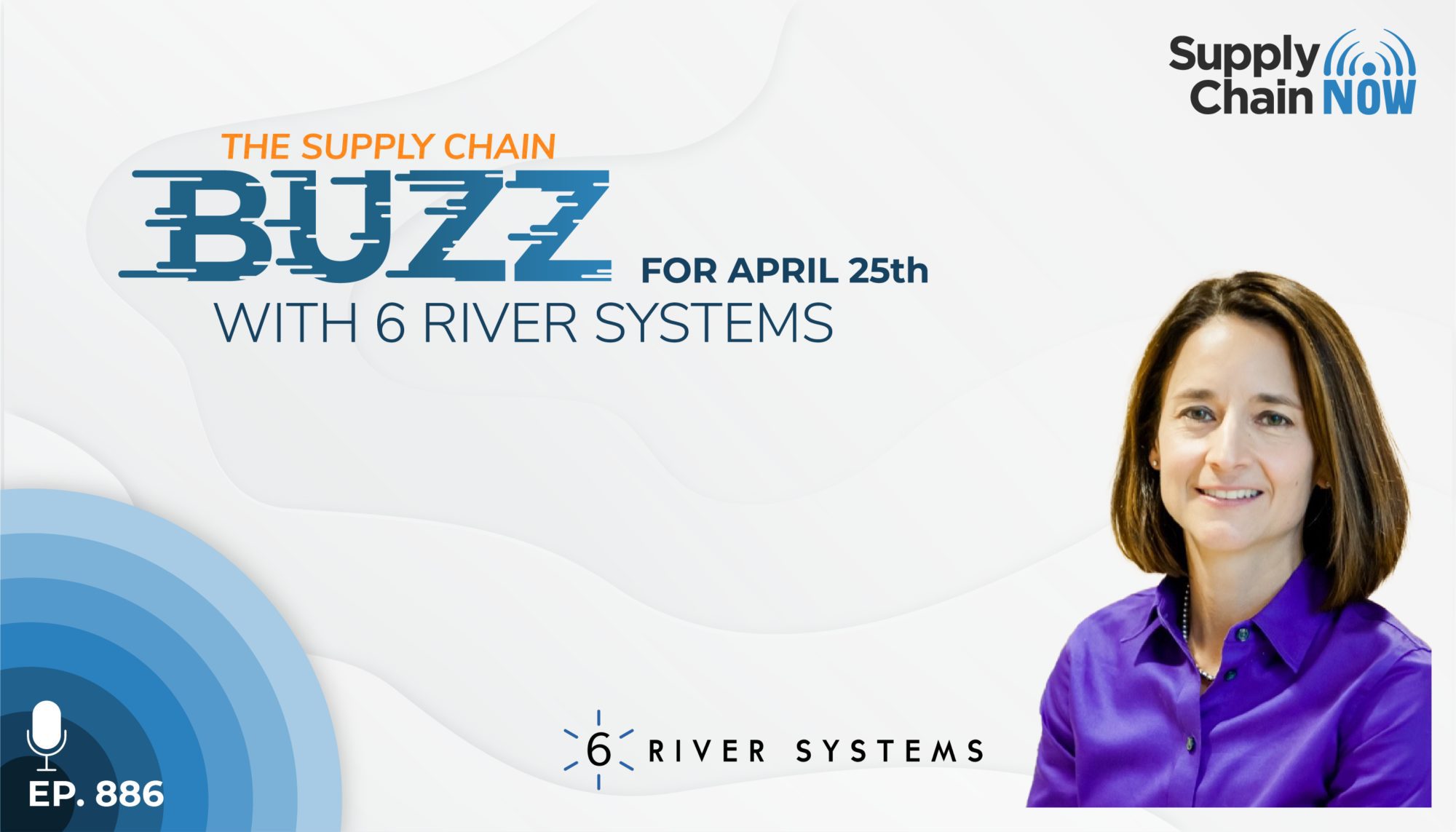
Automation is a way to meet that business growth that we love with less labor or the same amount of labor. So it's a huge empower for not only large operations, but it's almost a bigger mandate for smaller operations, because they really need to compete, right? This is a tool they can pull out of their toolbox.
-Gillan Hawkes, 6 River Systems
Episode Summary
The Supply Chain Buzz is on for April 25, and this week, Scott and Greg are joined by 6 River Systems Vice President of Product & Analytics Gillan Hawkes to discuss automation’s hopeful future for businesses big and small. Tune in to hear them talk positive disruption, how to plan for uncertainty, why risk must trump cost and more.
Episode Transcript
Intro/Outro (00:00:03):
Welcome to Supply Chain Now, the voice of global supply chain. Supply Chain Now focuses on the best in the business for our worldwide audience, the people, the technologies, the best practices, and today’s critical issues, the challenges, and opportunities. Stay tuned to hear from those making global business happen right here on Supply Chain Now.
Scott Luton (00:00:30):
Hey. Hey. Good morning, everybody. Scott Luton and Greg White with you here on Supply Chain Now. Welcome to today’s livestream. Greg, how are we doing?
Greg White (00:00:37):
We’re doing quite well. Scott, how are you doing?
Scott Luton (00:00:40):
I’m doing fantastic. It’s been a gorgeous weekend here. We got the garden started. The temperatures were probably in the low 70s, mid-70s. And, man, it was tough to get some work done, which that’s always there. But we stayed outside most of the weekend. How about you?
Greg White (00:00:56):
It’s always a good day to be sipping sweet tea or lemonade when it’s like that, isn’t it? Well, it was the Queen’s birthday this weekend, so she and the princesses all came down to the beach house and we had a grand old time, along with our newest princess, little Nellie Jade, our granddaughter and took some really cute pictures and had some fun on the beach. Yeah, it was great. Fantastic. Finally, so my son-in-law came also, so I wasn’t completely outnumbered. Well, we were outnumbered, but I wasn’t alone.
Scott Luton (00:01:32):
That was awesome. What a wonderful weekend. And, of course, it was great to see Nellie on Friday just for a few minutes. So, a special speck of time.
Greg White (00:01:41):
That’s right. I forgot she joined for the team call, didn’t she?
Scott Luton (00:01:44):
That’s right.
Greg White (00:01:45):
My new personal assistant.
Scott Luton (00:01:47):
For now before she becomes CEO. And by the way, happy birthday to Vicky in case she is tuned in. We love gargs around here. Today though, Greg, it’s all about The Supply Chain Buzz.
Greg White (00:02:00):
Yeah. No kidding.
Scott Luton (00:02:00):
We come to you every Monday, 12:00 noon Eastern Time, where we share some of the leading stories across global business. And, today, Greg, we’ve got a special guest joining us about 12:25 p.m. Eastern Time. It’s Gillan Hawkes with 6 River Systems. We’re going to be talking about a variety of things, including some of the great supply chain challenges that we’re facing right now, and how companies are breaking through a lot of the obstacles. So, buckle up and get ready because, Greg, we want to hear from our listeners too, right?
Greg White (00:02:28):
Yeah. Unquestionably. Which by the way, hold on, I’ve just got to switch here to see the comments. There we go.
Scott Luton (00:02:35):
Stay tuned. Stay tuned.
Greg White (00:02:36):
Yes. Please hold.
Scott Luton (00:02:39):
Well, speaking of which, and we’re going to say hello to a few folks here in just a second, but, Greg, let’s knock out a few program notes before we do just that. We want to make sure that folks know that they’re personally invited to the 2022 Supply Chain and Procurement Awards. That’s going to be May 18th. Competition is fierce. We’ve been looking through the nominations. We’re getting feedback from our executive judging panel. Lots of good feedback there. And, Greg, we’re talking over 1,200 folks have registered for this event already.
Greg White (00:03:11):
Yes. The count continues. And by the way, there are plenty of seats, so don’t be shy. Everyone gets a front row seat to this. I mean, that’s a nice thing in a way, right? That’s the nice thing about these virtual events is everyone has a front row seat. No worry about some lady in a hat or a tall guy sitting in front of you and blocking your view.
Scott Luton (00:03:33):
And we promise no violence. No violence at this awards show. So, May 18th –
Greg White (00:03:38):
Did you see that the Tony’s? So, the Tony’s have a specific guarantee of no violence at their awards show.
Scott Luton (00:03:46):
Hey, we need more of that for sure. But, folks, the links was dropped in the comments, big thanks to Chantel, Katherine, and Amanda, for helping today’s production. Y’all check it out. And, of course, you can also learn more at supplychainprocurementawards.com.
Scott Luton (00:04:01):
One other note before we say hello, to a few folks, our Supply Chain Now team is very proud to be partnering with our friends at Vector Global Logistics to really help those in need in Ukraine and Poland, and really throughout Europe, get humanitarian aid. So, Vector has done incredible work as they identify these vetted needs. They find vetted resources. And, now, they’re working to marshal this humanitarian aid to where it’s got to go. And so, they get together, oftentimes with members of our team, on an open working session on Wednesdays at 3:00 p.m. Eastern Time, to find ways of leveraging logistics for Ukraine. So, we’re dropping a link to that in the chat.
Scott Luton (00:04:49):
And, Greg, even if folks don’t have, you know, millions of pallets of aid sitting around or they can’t directly help moving stuff, if folks want to show up for the market intel and kind of better wrap their head around what’s going on and what the real need is, you never know how they might find a way to help, right?
Greg White (00:05:06):
Well, yeah. I agree. And, I mean, we found some contributors who are going to take care of a container, so that’s really good. Hapag-Lloyd has been kind enough to reduce the cost of containers for this great cause to – I won’t announce it here – but a remarkably reasonable value. So, if you are inclined to give in any way, I really think that you could probably pull 5 or 25 of your closest friends and help out here to actually ship a container, because they are really doing it at their cost and, obviously it’s a great cause, so contribute. Ukraine, did we –
Scott Luton (00:05:55):
Leveraging logistics –
Greg White (00:05:56):
The email address, you can also –
Scott Luton (00:05:58):
That’s a great point.
Greg White (00:05:59):
There’s also an email address, I think it’s ukraine@vectorgl.com.
Scott Luton (00:06:07):
And to make it easy, our production team just dropped the link for you to learn a lot more information about it in the chat there, so y’all check that out. Two quick factoids, unfortunately, Greg, The World Bank, I believe it was, recently estimated the damage to Ukrainian infrastructure at $60 billion due to the Russian invasion – $60 billion, holy cow. And then, the other thing I saw reading the Wall Street Journal this morning was, they had quoted, I think, an old trader, captain of a vessel, a container ship, and $200,000 per day for ship captains that are willing to navigate the Black Sea compared to, on average, $30,000 elsewhere around the world, if you wanted to take the chance of operating in that part of the war zone.
Greg White (00:07:02):
Yeah. Now, there are calls – gosh. I read the article, I’m maybe confusing it with another one – that Russia should pay reparations to rebuild Ukraine once this thing is over. My feeling is that Russia may not have a lot of money left after this thing is over.
Scott Luton (00:07:25):
We’re all, certainly, praying for an end to the violence and then we can figure out how to rebuild from there. So, thanks for sharing, Greg. And, folks, hey, checkout that leveraging logistics for Ukraine. Okay. On a much, much lighter note, I want to say hello to a few folks in the cheap seats, in the sky boxes, whatever our metaphor is.
Greg White (00:07:45):
All tickets are the same price, so you might as well go to the sky boxes.
Scott Luton (00:07:48):
That’s right. Dr. Rhonda is back with us from Arizona. Great to see here, Rhonda. We always love your contributions here as well as elsewhere across social. So, great to see you. Rohit is here with us via LinkedIn. Great to see you, Rohit. Hey, let us know where you’re tuned in from. We love making those connections globally. Let’s see here, Greg, Keivan – it’s not a livestream without Keivan, right?
Greg White (00:08:13):
Yeah. There he is. Yeah. That’s good to see. All right. So, we’re waiting for wisdom, Keivan.
Scott Luton (00:08:19):
That’s right. And he always brings it. He always brings it. So, Keivan, hope this finds you well via LinkedIn. Of course, Katherine, part of the production team, also tuned in via LinkedIn. Great to have you here with us, Katherine. John Perry from Maine. Greg, when’s the last time you went to Maine?
Greg White (00:08:37):
You know, that’s one of the states, I think, that I have never been to. Beautiful. I have a buddy who goes up there every summer. He takes his fifth wheel trailer and basically spends the summer up there along the coast. I cannot remember exactly where. But if I am recalling correctly – and you’d think you’d remember it – I have not been to Maine.
Scott Luton (00:08:59):
Well, that makes two of us.
Greg White (00:09:01):
That’s is one of the only states I have not been to.
Scott Luton (00:09:02):
Really? Well, that makes two of us. I have not ventured to Maine either. So, John, you’ll have to send us some pictures, along with your great sense of humor you always bring to our livestreams. But, you know, I doubt Sgt. Ryan Benner is watching. But I served with Ryan in the Air Force, and he is from Maine. And we talk about the blueberry farm picking in the summers and some other things. So, to the Benner family, I hope this finds you really well and appreciate what y’all do. Let’s see. Talent is tuned in from LinkedIn, from Zimbabwe. So, great to have you here with us, Talent. Keivan says, “Hearing supply chain now with noise canceler headphones. Believe me, that makes a difference.” How about that?
Greg White (00:09:44):
Really? So, we are above the noise. That’s the good news.
Scott Luton (00:09:47):
Nice. Greg, nice. Man, your brain just moves a thousand miles a minute. Zohaib tuned in from Kuwait via LinkedIn. Great to see you here today. Joe from South New Jersey, Joe Boyle. Great to see you here, Joe, via LinkedIn. You ever been to South New Jersey, Greg?
Greg White (00:10:05):
Oh, yeah. Oh, yeah. All over it, Cherry Hill, Cape May. Gosh, I can’t even name all the towns. The town where there is – oh, I don’t know – it’s like a craft store chain outside of Philadelphia, which is remarkably close to New Jersey. I don’t know if everybody realizes that. I mean just across the border.
Scott Luton (00:10:25):
Next time, we’ll have our map ready to go so we can be working it.
Greg White (00:10:30):
I’ll just put pins.
Scott Luton (00:10:32):
And then, Mike from Birmingham, Alabama via LinkedIn. Great to see here, Mike. Hey, let us know, you may not be from Birmingham or you may be a Roll Tide fan, you may be a Auburn Tiger fan, or you may just be working Birmingham, but let us know. Great to have you here, Mike. Okay. So, Greg, we have got a –
Greg White (00:10:54):
Scott, just real quick. I’m sorry. What was that Mediterranean place we ate at over by UAB, our very first show together. I don’t remember the name. I just remember it was delicious and it was right by the UAB campus.
Scott Luton (00:11:08):
Yes. That is such a great pool. I’ve forgotten briefly about that.
Greg White (00:11:13):
Yeah. I wonder if Mike knows that area of town.
Scott Luton (00:11:17):
Yes. You don’t instantly think of Mediterranean food in Birmingham, but, to your point, Greg, it was delicious. And the only thing better was the conversations with some of those incredibly bright students at the University of Alabama Birmingham that we had in our first couple of shows together. So, Mike, great to have you here today. Okay.
Scott Luton (00:11:36):
So, we have an outstanding guest joining us in about 15 minutes or so in Gillan Hawkes with 6 River Systems. But before we get there, Greg, you know, you do these Supply Chain Summaries every Monday, Wednesday, and Friday. And they’re becoming very well-received. And so, last week – I believe it was last week – you shared this –
Greg White (00:12:00):
It was a Friday, I believe.
Scott Luton (00:12:00):
Yeah. It was a Friday. You shared your take on this great article via Supply Chain Dive entitled Six Sourcing Strategies for Reshoring and Nearshoring, and in particular you touched on offshore and reshore and nearshore, you name it, all the shorings. So, if you can in the next few minutes, give us kind of the gist of your POV related to this topic here.
Greg White (00:12:21):
Yeah. So, this was an article by Mike Weisman, who is a professor, obviously not a fan of offshoring, and the bias in his article showed that pretty substantially. But there were some amazing points made, and one of them is that – and this was my takeaway – offshoring for cost saving is dumb. So, let me give you some context there so we don’t lose the whole audience immediately. But the point that Mike made was that, so many companies, they focus on the cost saving between onshore item cost and offshore. And he even relayed a couple conversations where the person said, “Do you know what your fully landed cost is?” And this was the response –
Scott Luton (00:13:18):
So, for our listeners, Greg is shrugging his shoulders. That was the response.
Greg White (00:13:25):
Shoulder shrug, that’s right. We’ll put that in the notes. And I think we fall into that too often. Honestly, as someone who offshored products way back when as a merchant, I can tell you that that’s what we focused on. We didn’t pay attention to – well, we did pay attention to the landed cost, but we didn’t pay attention to the potential risk and complexity presented by a far flung supply chain, which is something that, I think, any of us would suggest, and particularly now.
Greg White (00:14:01):
You know, at the same time that we have talked about this ever since the pandemic started, Scott, it is not practical to believe that everyone can reshore their product. In fact, some of them can’t reshore it at all. I mean, there’s absolutely no chance. We talk about products all the time that, because they are built in particular societies, economies like China, where the cost of labor is a tenth or less the cost of labor in the states and there are labor intensive things, it’s not practical to think you can reshore that. You can’t even reshore it or nearshore it to Mexico because the rates of labor in Mexico, believe it or not, are higher than those in China.
Greg White (00:14:44):
So, you know, I explored a lot of those perspectives. So, what is smart? And one of the things that I’ve seen as people talk about offshore is, well, they’re doing it, so it must be good, unless just follow the herd. Don’t just follow the herd. Take the blinders off. Do a really strong analysis, a complete analysis, of all of the impacts. Things like supply chain risk, things like who you’re doing business with, and do all these things with data was one of the points that I made also, not with emotion, not with gut feel. Obviously, gut feel in supply chain is one of the most important or most impactful factors that we have used for decades. Supply chain professionals have used gut feel for decades that got us into this mess. We have to be more data driven.
Greg White (00:15:39):
And we have to recognize also – and this is critical and you know this is my mantra – supply chain is a risk balancing exercise. It is not a cost saving exercise, which is to what it has been relegated by many of the executives of companies for decades, frankly, from the beginning of corporate history. It is much, much more complex than that, because not only is cost at stake, but brand esteem and equity is at stake. Because, nowadays, you cannot hide from the consumer. They know if you are the one who topped the supply chain and didn’t make sure they got their goods. You can’t hide in the shadows anymore. So, you have to assess all kinds of risks. Some of which goes to the top line of the company. If you can’t deliver, it doesn’t matter what promises you make or how good your marketing is.
Greg White (00:16:33):
So, anyway, we talked about this in the procurement context and the supply chain context, and they very much overlap in this area. Your credibility is a critical part of this. So, it’s really smart for companies to not be dumb. It’s really smart to know their risk. As I say, assume everyone will fail you. Or assure that if anyone fails you, your supply chain does not fail. It’s smart to look before you leap. Not just jump into offshoring because it’s popular, you’ve got a gut feel, the folks next door are doing it. And it’s also smart, of course, to understand that this is a risk balancing initiative as well. You are taking a risk of a fragile supply chain for a cost saving. And the cost saving better be substantial. Because the impact of a broken supply chain hits the top and the bottom line.
Scott Luton (00:17:32):
So, speaking of all the things to take into consideration, you know, back when I was in metal stamping, we would avoid, oftentimes, having tooling made overseas, even though the cost was night and day, it was like two separate universes, but being able to navigate through a highly technical build, and some of these projects falling behind and so adding to lead time, because of a lot of those factors, we would pay more and have tooling made here in the States. So, all kinds of things to take into consideration, which may be in your blind spot when you’re trying to arrive at a total landed cost, which is so critical, to your point.
Greg White (00:18:15):
And you raise a really good point there in this just one final point, and that is, I’m astounded that more companies don’t have an actual plan B. If you are sourcing overseas, you should also have a secondary or a backup source onshore and give them 5, or, 10 or 20 percent of your volume at all times, even at a higher cost, so that if you need them to ramp up production, they are available and willing to do so.
Greg White (00:18:41):
Because, Scott, as someone brilliantly said when the pandemic hit, if you haven’t been kind to your suppliers, now it’s too late to make friends. So, I think that’s something that people need to do. And that’s something that certain industries, particularly the food industry, is really, really good at, at having backup suppliers and keeping volume in their pipeline so that they are able and, most importantly, willing to help you in case of emergency.
Scott Luton (00:19:13):
So much. And I really appreciate you sharing some of your take there on this great article that came out of Supply Chain Dive, Six Sourcing Strategies for Reshoring and Nearshoring. The article was great. And then, the things that you spoke about as you analyze it and offered up your expertise and experience made it even better. So, if you want perspective like this, the supply chain POV, the supply chain summaries, make sure you’re connected to or following Greg White. And he rolls it out every Monday, Wednesday, and Friday.
Scott Luton (00:19:43):
Okay. A couple of comments. We’re going to be having our featured guest join us in just a couple minutes. I want to share a couple of quick things. So, we said hello to Joe Boyle a little while ago. Now, he is just outside Atlantic City. Is it Binghamton? Just outside Atlantic City. But he offers critical expertise here. “Craps. Stay away from those tables.” So, thank you for enjoying the show. That is great words to live by there.
Greg White (00:20:14):
Craps are the best odds in the house, by the way. Casino and the odds ain’t that good?
Scott Luton (00:20:19):
Excellent point.
Greg White (00:20:21):
That is good guidance right there.
Scott Luton (00:20:22):
That’s right. Keivan says, “To buy or not to buy always has been a challenging question.” Written like supply chain Shakespeare, for sure. Dr. Rhonda says, “This is such an interesting topic. I’m not well-versed in this area of offshoring. Thankful for learning more from you both, Scott and Greg.” Hey, Dr. Rhonda, thanks for being here. Appreciate your feedback as always. John Perry, the pride of Maine, says, “Cost needs to be balanced with value. If you save a little and deliver late, you may lose your customer.”
Greg White (00:20:51):
There you go. That’s it.
Scott Luton (00:20:52):
That’s an excellent point.
Greg White (00:20:53):
Yeah. This is, again, a top line exercise as much as a bottom line exercise.
Scott Luton (00:20:59):
Excellent point. And David Morrow – hey, David, hope this finds you well – Dr. Morrow, I should say – he says, “Stretching your supply chain that far never made any sense. Given one of the original value propositions of supply chain was freeing up working capital, this could cause it to increase exponentially.” Excellent point there, Dr. Morrow.
Scott Luton (00:21:20):
Really quick, one of the things you mentioned made me think of one of our all time favorite guests, the Rick McDonald, Chief Supply Chain Officer with Clorox. Greg, a little breaking development over the weekend. We’ve got him booked to join us again on a livestream coming up in June, I believe. So, Katherine, Amanda, or Chantel, if y’all could drop that date, I want to make sure. We haven’t built that livestream yet, but I think we confirm that in June. And he is home run and he’s vying for some of the best hair in supply chain, I believe, Greg, right?
Greg White (00:21:55):
Unquestionably the best hair in supply chain. Unquestionably. But also some of the earliest and most effective innovation there, I say, pivoting – let’s just go through them all – pivoting during these unprecedented – I can’t even remember all the terms we used early in COVID. But they saw it coming, and did some brilliant, brilliant things, including popup factories and things like that, that were so incredibly effective. And yet even with all of that preparation, all of the excellence in their supply chain, as we said early on in COVID, it was not a supply problem. It was a demand problem, people were hoarding. And I can verify it because I think we still have some 2020 era Clorox Wipes in our house. They were hoarding Clorox Wipes, and Clorox, and all of those things, to try and keep everything clean and tidy.
Scott Luton (00:22:56):
Well said. So, stay tuned for that. We should also welcome in the one only Jose Montoya from Southern California. He hosts Logistics and Coffee, I think every Friday. I always look forward to that. So, hello to you, Jose and hope this finds you well. Okay. Greg, we have got an outstanding guest here today. We really enjoyed the pre-show conversation. Are we ready to bring in the star of the show?
Greg White (00:23:23):
I am.
Scott Luton (00:23:24):
Well then, with no further ado, I want to welcome in Gillan Hawkes, Vice President of Product Management and Analytics with 6 River Systems. Hey. Hey. Gillan, how are you doing?
Gillan Hawkes (00:23:38):
Hey, Greg. Hey, Scott. How’s it going?
Greg White (00:23:40):
We’re good.
Scott Luton (00:23:40):
We’re having a great time. We’re talking supply chain. We’re big supply chain nerds. You know, this is what we love to do. And speaking of what we love to do, we really enjoyed our pre-show conversation with you getting to know you a little better, your world travels, of course, the big things you are doing at 6 River Systems, so welcome to The Supply Chain Buzz.
Gillan Hawkes (00:23:58):
I’m so glad to be here. Thanks. It is a really big topic. And I was listening in on your conversation, it sounds like people dialing in or phoning in are from all over the globe, which obviously means supply chain is something that is a global thing. It’s a global problem and a global opportunity for all of us to come together to solve.
Scott Luton (00:24:13):
Well said. Greg, I can just tell already, this is going to be an outstanding appearance here. So, a lot of kindred spirits. But, Gillan and Greg, let’s have a little bit of fun before we get into the heavy lifting, because, gosh, there’s so many challenges across global industry right now. Let’s have a little fun first. Today is National Telephone Day. Yes, there’s a whole day dedicated to the national telephones. So, I want to ask both of y’all – and, Gillan, you’re going to be our lead off hitter here – do you remember your first cell phone that you had?
Gillan Hawkes (00:24:48):
First cell phone? I mean, it’s so hilarious to even imagine life without one, just to start there, first of all. Let’s see. Okay. All right. All right. So, my first cell phone was a Nokia handset. It was, like, big. It was a little like a brick thing. I think, it was like – I don’t know – some series. It was super snazzy. It had about ten buttons on it and had some gray and black screen. And I must say, I did cheat. I Googled it just before this, because it is available on eBay right now, folks, for 65 bucks, for something [inaudible]. The original Unlocked Retro Cell. So, what goes out of style always comes back, guys. That’s the message.
Scott Luton (00:25:43):
What’s old is new again, always. And, Greg, I’m coming to you next. But, hey, folks in the cheap seats, in the sky boxes, let us know your first cell phone. We’d love to kind of reminisce with you. So, for Gillan, Greg, it was a Nokia. So, Greg, how about you?
Greg White (00:25:59):
So, I got two phones at once because my first job out of college was selling cellular phones human to human back when that happened in 1989. And I had a unit CP11 mounted in my car with an amazing, like, flexible mounts and everything. It looked really great in my Mercury Cougar XR-7. And I had what was called the brick phone, the Motorola DynaTAC, the big white phone, long range phone.
Scott Luton (00:26:40):
The Zack Morris phone is what you’re saying.
Greg White (00:26:43):
What’s that?
Scott Luton (00:26:44):
The Zack Morris phone from Saved By The Bell, right? I think that’s what you’re describing.
Greg White (00:26:47):
It could be. I’ve never seen Saved By The Bell. Wait, there was a scene that I think Motorola mentioned afterward where he calls a kid or calls somebody from his locker, he gets stuffed in his locker.
Scott Luton (00:27:00):
I think that’s it. I think that’s it.
Greg White (00:27:01):
Okay. Then, yes, probably that one. But, yeah, that was a massive phone. And I remember, I would carry that around with me because I was selling phones and just set it on the counter. And every lawyer doctor, that came by had to have one, absolutely. Because I was, like, 22 years old and they’re like, “Well, if this kid can have one -”
Gillan Hawkes (00:27:25):
Well, hang on. But I have to interrupt here because, like, I guess it’s almost show of hands. Like, life better and more simple with phone or without phone? Like, I bet there’s a split vote that could go here.
Scott Luton (00:27:38):
That’s such a great, great point. Great point. You know, we were talking pre-show about when we were home with my parents during the summer, you know, home from school, whenever she’d want to take a nap, she’d take the phone off the hook and buried it into the couch so no one could call her. And that’s such a foreign concept these days. To Amanda’s point here, “Kids today will never understand the pain in the rear of texting on those old Nokia phones.” She had a Motorola as her first cell phone. But her dad had a mounted car phone and back phones way back in the day. Now, here’s interesting, Gillan and Greg, everyone had a Nokia. Jose had Nokia, He says, “It was brick size.” Keivan had a Nokia N93. Talent had a Nokia 3310.
Greg White (00:28:26):
So, outside the United States, they were the largest cell phone producer in the world.
Scott Luton (00:28:31):
Really?
Greg White (00:28:33):
Yes.
Scott Luton (00:28:34):
Joe had a bag phone, maybe. Joe, would you keep it in your car? Some folks, if y’all remember, Greg and Gillan –
Greg White (00:28:41):
Yeah. You can carry it around with you, if you didn’t mind 13.5 pounds hanging off your shoulder, because that’s what it weighed.
Scott Luton (00:28:49):
Now, Chantel had a Sprint NexTel. Let’s see. Katherine says, “Today’s equivalent is turning on do not disturb every night at 8:00 p.m.” I love that. So, thank y’all for reminiscing with us here on National Phone Day. It’s hard to be believe how far we’ve come. It really is. But, really, that’s a great segue to global supply chain. You know, we shared something on social earlier today about how we’re traveling at ludicrous speed. There’s so much good stuff and bad stuff. Innovation, but also new challenges, old challenges, you name it.
Scott Luton (00:29:28):
So, what we want to do, Gillan – and thanks again for sharing your early cell phone history with us – shifting gears, speaking of challenges across industry, there’s a great read here from our friends at CBS News that touches on some of these challenges, shortages, inflation, workforce, you name it. No shortages – no pun intended – of challenges old and new out there in the industry. So, what I’d like to do, Gillan, to kind of level set things, what are some of your key takeaways from this read? And what are you seeing related to these challenges out in the market?
Gillan Hawkes (00:30:05):
Yeah, for sure. I mean, you just called out some of the shortage side of the equation, you know, there’s demand and supply. So, there’s a ton of shortage of labor. There’s a ton of shortage of actual inventory out there. A ton of shortage or challenges on the logistics side with transport. There’s also, add to that, more demand. I think that’s the other kind of sucker punch is, in a great way, we all love demand. But that just is pouring fuel on the fire that is caused by some of these shortages.
Gillan Hawkes (00:30:35):
So, coming out of COVID, the demand is there, it’s growing and increasing. We’ll talk about, I think in a little bit, about what we think peak is going to look like, because, obviously, that’s in most people’s minds first and foremost, even though all us are looking forward to spring and summer, it’s rapidly followed by peak and the stress starts to mount.
Gillan Hawkes (00:30:53):
But, you know, the shortage side of things, I got a couple kind of comments or takeaways from the article. One is, labor shortages actually hits everybody. It’s a democratized shortage. We have large retailers, small retailers all competing for labor. And in some cases, it doesn’t mean that larger retailers can, maybe, afford to pay their employees more and therefore win short labor in this tight market. It’s not all about that. Increasingly, associates want more than just more money. We’re hearing that again and again is they want things that help them be flexible. They want things that help them do have enjoy their job more, and I think that’s a really big thing where automation can come in. I mean, I think part of automation and AMRs. Sorry, Scott.
Scott Luton (00:31:43):
Really quick, I think you hit an important nail in the head there, because we’ve seen it time and time in folks we interview, folks we break bread with when we take facility tours, is, team members, they want opportunities to advance. They want to learn more. They want to be more valuable. They want add to their toolkits.
Greg White (00:32:03):
Yeah. Unquestionably. And, now, they can pretty much write their own ticket to companies that want to do that. And, you know, one of the issues that we’ve got in supply chain, which, by the way, had a labor shortage even before COVID of almost 5 percent, is what I like to call the 3Ds, dark, dirty, and dangerous. And people perceive this as a brute force industry in dark, dirty, and dangerous tasks. And some of those are, frankly. And they are staying away in droves from some of the most critical roles that are required in supply chain. And it is because of that ability to choose. And, also, I think because some companies lack of nurturing and clear growth path for people who enter the workforce.
Scott Luton (00:32:57):
Yeah. Well said. So, Gillan, one of your first key points there, everyone’s suffering from the labor market and employees don’t want just more pay – pay is important, of course – but they want a more fulfilling job where they learn more and more as they progress. Excellent point there, Gillan.
Greg White (00:33:17):
And do more, right? I mean, purpose is a huge need for workers these days.
Gillan Hawkes (00:33:25):
Yeah. We’re all humans, no matter what we’re doing. And so, we want to feel like we have the ability to contribute, make a difference, feel great about what we’ve done at the end of the day. And that is a different global pandemic, which is a good one. We all want to be doing the very best we can every day and it’s inspiring.
Scott Luton (00:33:51):
I completely agree with you. And more and more that’s pervading throughout the global workforce. So, automation, clearly, what are you seeing there as it relates to the workforce that we’re talking about?
Gillan Hawkes (00:34:05):
You know, I think it’s an answer to, not all of these problems that we just talked about, but a lot of them. I mean, I think AMRs are a way to, first and foremost, have operators, retailers, 3PLs, manufacturers, whatever, attract talent. You got to get the associates in the door, number one. And we we’re hearing again and again that that’s an incredibly hard task. But if you can use automation to say to potential employees like, “Hey, we have tools to make you be more efficient, to make you enjoy your work better, to make it physically less taxing.”
Gillan Hawkes (00:34:40):
Because, let’s be honest, I think, Greg, your 3Ds are right. Like, you have warehouses where you have very heavy goods being moved around by associates and long distances. And so, AMRs can help carry those loads and unburden that. And in a wonderful way, one of the things I’m most proud about for AMRs is, actually, it can extend the working life of associates as well. So, you can have older associates be able to be active and to be contributing members in the way they want to contribute through automation, and let them continue to be super productive and super engaged with their communities through coupling them with automation.
Scott Luton (00:35:19):
Love that. Greg.
Greg White (00:35:21):
Yeah. You know, I have long said we can cease to apologize for automation taking jobs. We said this when Matt has been on the show with us from 6 River. And we don’t need to apologize for that anymore because, as we’ve just stated, we didn’t have enough people in the industry and even fewer are coming in as demand grows, which causes the need for more people. And as ominous as, you know, the pending change in economy – that’s a lot of words to say coming recession – may feel to people. I think it will bring people who have left the workforce back into the workforce, either out of necessity or out of opportunity, because the myth of the great resignation is that it was millennials and Gen Zs. In fact, it was baby boomers. Almost exclusively people – I mean, not almost exclusively, but a huge portion of that, like 73 percent of the people in the great resignation, were 55 and above. And they’ll have the need and opportunity to come and work. And, Gillan, to your point, if they can be assisted by physical devices for the lifting and carrying and that sort of thing, then we can regain some of that intellect that we lost by not capturing the knowledge that those workers had.
Greg White (00:36:46):
So, I think, it’s a great thing. We can cease to apologize for it. It will assist us to bring new types of workers into the workplace and increase productivity. Look, let’s face it, if it turns out – and I believe that it largely will because of some key demographics – that people don’t flood into the actual working positions, of supply chain, we’re going to need automation and we’re going to need more and more of it. And I believe that that’s the case.
Gillan Hawkes (00:37:20):
Yeah. I mean, I think the second point around automation – sorry, Scott, to jump in – is, we talked earlier about some of the shortages side of things, but I talked about the other side of the equation, which is the demand that we know is going to increase. You know, COVID gave in a shot in the arm of adrenaline. Customers like online shopping. They loved curbside pickup. All these trends that were accelerated and are just continuing to grow. So, the demand on the good side, like, we want to grow, operators want to grow, the whole world loves growth, so automation can make that possible. So, you’re going to be able to do more with less human bodies involved. Yes, we want to get them back in the workforce, but we’re not going to have enough to keep up necessarily or not everyone.
Gillan Hawkes (00:38:13):
So, automation is a way to meet that business growth that we love with less labor or the same amount of labor. So, it’s a huge empower for, not only large operators, but I think going back to something you said, Scott, like, it’s almost a bigger mandate for smaller operators, I think, because they really need to compete well. This is a tool that they can pull out of their toolbox, and some of the automation is very, very uncost prohibitive – whatever the anti [inaudible] – accessible – I think that’s the word I’m looking for – accessible to operators of all sizes. And if you’ll be able to bring automation in your building, you’re going to be able to compete better and win business and continue your growth.
Scott Luton (00:39:03):
All right. And in a second, we’re going to talk about, I think, all three of our favorite things that we’re seeing out there, small beating big. And automation is one of the big tools in your tool belt. If I can speak right, I need the 18th cup of coffee, folks. I need the 18th cup of coffee. But to enable small to be big.
Scott Luton (00:39:23):
Really quick, I want to take a couple of quick comments from the audience here. Joe says, “Excellent point, Gillan, automation to assist associates, not replace.” Excellent point. Hey, Peter Bolle – all night and all day – found us on YouTube. Great to see you here, Peter. Hope this finds you well. And I like Jose’s comment here. He just keeps it simple. “I like 6 River Systems.” So, Gillan, you got a fan out there in one Jose Montoya.
Greg White (00:39:48):
That’s your new marketing tagline.
Gillan Hawkes (00:39:52):
Honestly – gosh – find me later, Jose. We can talk automation all day long.
Scott Luton (00:39:55):
Love it. Love it. So, some of the last things you were sharing there, Gillan, I want you and Greg to both talk about small beating big. Because we’re seeing it perhaps more in this current age that we live in, it’s invigorating, it’s inspiring, it fuels real innovation. I mean, it’s really amazing and intriguing. And the pandemic, of course, has also accelerated a lot of that out of necessity. But, Gillan, what’s one of your favorite examples of small beating big.
Gillan Hawkes (00:40:28):
And there is no bigger big than the A word, Amazon. And, you know, this goes back awhile, we talked about your original phone, remember when Amazon just used to sell books? That’s where they started. Now, you ask nine out of ten people, nine people out of then probably do shop on Amazon. But if you ask them, I bet they would say that they wouldn’t even recognize Amazon as a book seller. But that’s where they started, so let’s go there.
Gillan Hawkes (00:40:59):
Actually, one of the areas that I know and I’m so thrilled about being able to compete with Amazon in books, a category that Amazon has huge market share, I think they have two-thirds of the online book sales as Amazons. However, that remaining third is actually democratized across smaller book sellers. And so, those book sellers are really leaning into a couple of things that we know, is that, people want to buy local. That is a very big trend in the market today. And so, they want to buy local from their local store.
Gillan Hawkes (00:41:34):
And so, buying local can be things like buy online pickup in store, that a lot of book sellers have been really successful doing. Creatively bringing local gatherings together and book discussions. Consumers – sometimes older consumers are physical book readers, because a lot of that is digital now – are not comfortable ordering online, but they can order by phone or by text. And so, just thinking creatively about your customer, first of all, what they want and need, and really leaning into that and embracing eCommerce, but also driving people into stores, has a lot of book sellers to really take some of Amazon’s wind out of their sales in the book space.
Scott Luton (00:42:16):
Gillan, I love that. And, Greg, I’m going to get your take here in a second. I love finding a small business to purchase via websites and whatnot. And so, beyond Amazon – the big behemoth out there – everyone can find new business that way. It’s very rewarding when I find a new book seller or other small product. We interviewed folks with OME Gear and The Wanderr, which is a massive device to help you get your chairs, think of your beach chairs, your adult beverages, everything you’ve got to get down to the beach, a stretch, you got to get all that stuff, that beach supply chain. So, anyway, finding the ABA. Greg, remember that acronym? The ABA. It’s been a little while since we talked about that, but what’s your –
Greg White (00:43:09):
Anyone but Amazon. Right.
Scott Luton (00:43:11):
Anyone but Amazon, that’s right. So, Greg, what’s one of your favorite examples of small beating big?
Greg White (00:43:16):
Well, you’re not going to believe this, but I think Amazon is one of the best examples of small beating big ever. I mean, if you think about it, they went up against the brick and mortar, the giants, B. Dalton, Barnes and Noble, and others in the industry and they took them out. But, now, they are in that position and the tables are turned. It’s very difficult for them to innovate. And, also, there are some limitations to their platform to which many of their sellers are revolting. There are some revolting aspects of the Amazon platform.
Greg White (00:43:47):
For instance, I don’t know how many people know this, but a customer on Amazon, if you are a vendor on Amazon, is not your customer. It’s Amazon’s customer to which they allow you to sell. You are not allowed to know the identity nor the address of that customer on Amazon.
Greg White (00:44:04):
And there are a lot of more democratized platforms out there and there will be more yet that allow you to act as if it is an online mall. You know who your customer is, you know where they live, you can continue to market to them. Amazon absolutely prohibits that unequivocally, which is not something I knew until a couple years ago. So, there is an opportunity, that is a weakness that sellers will not always put up with. And companies like Shopify, who came from nowhere – I remember going on one of those $99 crowdsourcing logo sites and Shopify’s logo was one of the $99 logos or whatever it actually cost them on there, as an example. And I thought, “What is Shopify?” I mean, that’s really how I discovered Shopify and here they are now helping to enable that. And there are other organizations like that.
Greg White (00:45:00):
And, Gillan, to your point, the democratization of technology in the workplace, companies like 6 River Systems, who are starting small and beating big by enabling every man, whatever you want to call it, to be able to have the capabilities of technology that the Amazons and the Walmarts and the Targets and others do, that kind of small beats big is really, really important. Particularly technological enablement, small beating big is absolutely critical. Because as I’ve discussed with many people, once you are an industry leader, you cannot disrupt. Absolutely cannot. You have too much vested in the status quo. And Amazon has too much vested in the status quo. And we’ve seen very little disruption. We’ve seen a lot of, what I would call, innovation or mostly purchasing of disruptors to create disruption in the marketplace. So, there will always be a place for small businesses.
Greg White (00:46:07):
And part of the speculation of why labor is so tight now is because so many people have started businesses. Again, not an economist. I don’t have the statistics. I did read a few articles about it. But, I mean, there are tons and tons of people starting businesses to assure that they get the culture and the meaningful purpose and the ability to shape an enterprise the way they want to see it run.
Scott Luton (00:46:36):
So, Gillan, I want to get you to respond, but really quick, one of the points that you both of y’all are really speaking to is that, really, we all win when small beats big. Because, Greg, to your point, industry changes. We do see positive disruption, and that is so critical. But, Gillan, respond to what Greg shared there, and I’ll give you the last point about small beating big.
Gillan Hawkes (00:46:57):
Yeah. I just wanted to kind of make it really like a concrete example. And I was going to Google, but then I should have had it on my tongue, but I don’t. But we all know because we’re all consumers, we all shop eCommerce for everything or just a few things, and that’s fine. But what I think everyone would agree with is, no matter what you’re shopping, you are much more inclined to press that magical buy button if you know when your product is going to be delivered.
Greg White (00:47:25):
Darn skippy.
Gillan Hawkes (00:47:26):
The promise the SLA, the Service Level Agreement, that retailers give customers, we know drives conversion at the point of purchase. So, you’ve got to give yourself a flying chance of getting someone to buy from you. You’ve got to have us a good SLA. Like, it doesn’t have to be next day, it might not even need to be today, but you got to have a delivery promise there. And the nearer your delivery promise, probably for most goods, the better, the sooner you can get stuff there. We’re all born with our phones in our hands now we want stuff now yesterday. So, let’s be honest, the shorter your SLA, if it can be same day or next day, the better your chance you have conversion. So, the way that you can deliver quickly is to have automation in your building, which will drive up your conversion rates, which will drive more volume to your site.
Gillan Hawkes (00:48:17):
And it’s a total flywheel effect that the Davids can compete with the Goliaths. And it does. And I might be biased because I work for 6 River Systems. But it does all start with fulfillment or at least fulfillment is a huge part of that promise to the customer that will make them buy from you because they know that you can get it to them quickly and efficiently. And they’ll come back and buy from you again and your volume will grow. And then, you have a better leverage and ability to compete with the bigger players out there.
Scott Luton (00:48:46):
Excellent point. It’s not just about capturing order. It’s about fulfilling and delivering on that SLA. Excellent point, Gillan. And even though you said you’re partial, of course, I think one of the messages is there, hey, if you don’t get your automation at 6 River Systems, get it somewhere, because it will enable you to compete and grow your business and create that positive disruption.
Scott Luton (00:49:10):
I want to share a couple comments here from our audience. Jose caught your team at MODEX here in Atlanta and he’s hoping to be able to acquire it in the near future. How about that? Good stuff there, Jose. Let’s see here. Talent says, “Automation is a way to go in this era of COVID. Small business should, by any means, maximize on automating their logistics systems to earn profits and increase market share.” Talent, well said. I love that.
Scott Luton (00:49:35):
Okay. So, there’s so much to talk about, so little time. We’re kind of coming down the home stretch here. Gillan, I want to use Jose’s comment about MODEX, because your team is out there in the market creating all types of opportunities for folks to learn and even network. And one of the things I want to share, we’ve got a webinar coming up with a couple members of the 6 River Systems team. Greg, are you ready for May 10th, 12:00 noon Eastern Time, How to solve three common peak season challenges? Greg, that should be a good one, huh?
Greg White (00:50:08):
How timely is it? I mean, especially since we need to start thinking about, as Gillan said, peak so much earlier than we used to because lead times are going to be extended. The issues with COVID continue to expand in China where a lot of goods come from. So, yeah, I mean, I think this is not only really important information, but it’s really perfect timing for when to start understanding what those challenges are and how to overcome them.
Scott Luton (00:50:35):
Excellent point. Free to join on May 10th, 12:00 noon Eastern Time. And, folks, you can find a link in the show notes. So, we got Will and John joining us, Gillan. You got any good stories?
Gillan Hawkes (00:50:50):
Yeah. You going to get a lot of stories on those guys.
Greg White (00:50:53):
I want to know what their moms think about automation. We already know.
Scott Luton (00:50:56):
That’s right.
Gillan Hawkes (00:50:57):
Ask them what their phones were. They’ll probably that annoying group who say, “Oh, yeah. iPhone 6.”
Scott Luton (00:51:02):
Kidding aside, I want to get your take on what you’re hearing out there about peak. But really quick, Dr. Morrow says, “Small beats big because calling big gets you a conversation with the AI phone answering system. While small gets you to the management and a resolution.” Excellent point there, Dr. Morrow. He’s kind of speaking to that –
Greg White (00:51:22):
For those of you who are millennials or Gen Zs, calling is where you actually talk to someone on a phone.
Scott Luton (00:51:29):
I love that, Greg. But he’s really speaking to that SLA that you spoke about earlier, Gillan. It’s so important beyond capturing the order. But we’re talking peak. We got this upcoming webinar coming up, a lot of minds, a lot of things between ears are shifting over to peak earlier and earlier, as we talked about last week, Greg. What are you hearing when you talk to business leaders out there, Gillan, about peak for 2022? What are some things you’re hearing?
Gillan Hawkes (00:51:59):
I think I could sum it up real fast in one word, uncertainty, unfortunately. Like, I think there’s certainty that demand is coming. I think there’s uncertainty around a couple of things, kind of when, like when are we going to start to see. And I think, Greg, you just mentioned it, we have data that very clearly shows that we used to all be obsessed and think that our peak was going to start, you know, Thanksgiving afternoon and happen all before Cyber Monday, or during those critical five days. Not true. Certainly last year, we saw peak starting in, like, September. All those really annoying people who clearly buy their holiday gifts earlier than I do, because I’m a last minuter, that’s great though. Perfect. We really love that. The more stuff can be spread out means that we, as operators, can actually fulfill. So, actually, the spreading of the vault of the demand during the peak period is definitely a trend that we anticipate.
Gillan Hawkes (00:52:51):
So, there’s certainty around that aspect. However, there is a great deal of uncertainty around the labor availability, that we talked about. And definitely anticipation of not having enough labor, number one. Number two, the inability for us to plan inventories is what I’m hearing a lot from customers because of the supply chain issues, inventory, chip shortages, you name it. There’s so much uncertainty around when that inventory will be coming in and how much of it will be coming in and competing for that inventory, like we talked about. So, unfortunately, uncertainty seems to be the name of the game. But, again, not to sound like a broken record, you know, automation can help with many of those things, not all of them, but many of them.
Scott Luton (00:53:36):
Excellent point. Okay. Greg, before we talk about this second event that 6 River Systems got coming up, your take on what we just heard there from Gillan.
Greg White (00:53:45):
My suggestion is tuned in on May 10th, take notes and take action immediately following. Because, Scott, this still rings in my ears, iRobot receiving their goods for Christmas right after Christmas. And, now, they are completely dialed in for this Christmas. Of course, it’s last year’s models, but they have their product. You cannot buy early enough, to the point that, Gillan, you made, lead time is the greatest uncertainty right now. Supply has, in some cases, stabilized. It’s still highly, highly questionable. But even if you can get it, you don’t know how long it’s going to take you to get here because of the backups in the ports, because of the shutdowns in production, in foreign lands, because of the lack of labor for trucking, for receiving, for shipping, all of those things, picking, particularly picking. But all of those things are hugely impactful.
Greg White (00:54:48):
So, I think that’s where people have to be focusing on is, not trying to predict that, but assume it. Assume uncertainty and assume a longer lead time and start doing now. Which I believe that a lot of the usual suspects that are always ahead of the curve, the targets and the like, they are already planning on landing back to school and peak season goods earlier.
Scott Luton (00:55:19):
Just back to those iRobots, just new labels, and all of a sudden, voila, you got model 11 versus model 10, new stickers.
Greg White (00:55:29):
2022.
Scott Luton (00:55:30):
It’s like the Jerry Seinfeld approach. All right. So, Gillan, beyond everything else y’all are doing and the May 10th webinar, y’all got a really cool event coming up May 4th. I love how y’all get into these markets and create these networking opportunities. It looks members of the team are going to be touring Ingram Micro, a big company that has a Louisville distribution facility. And then, after being able to see all the army of Chucks at work at Ingram Micro, then you’re headed to Churchill Downs. How cool is this?
Gillan Hawkes (00:56:04):
Don’t miss it, I tell you. Guys, come on down. It’s really close to your neighborhood, right? Yeah. So, we’re going to be at the work conference, which is in Louisville and, I think, it’s on May 3rd and 4th. And then, we’re going to be hosting a limited number, just for COVID reasons and also just to make sure that we’re not disrupting the operations at one of our best and brightest customers, Ingram Micro, their Louisville facility has about 125 of our Chucks, our AMRs, fulfilling peril footwear, and other stuff in their building. So, nothing like seeing it.
Gillan Hawkes (00:56:42):
I think, Jose, you said you saw us at MODEX. There’s nothing like seeing that automation and, in this case, Chuck in person to see how associates interact with Chuck, how Chuck is a very easy to deploy system. I think, Greg, you mentioned like, actually we could, if you sign on the contract with us today, we could absolutely get you ready for your peak because we can deploy within a matter of couple weeks. So, not to plug, but just to say that’s also the power of 6 River’s automation.
Greg White (00:57:11):
No, that’s good to know.
Gillan Hawkes (00:57:12):
You’re not SOL – excuse the expression – for this peak. We could, and other AMR companies as well, you know, one of the real benefits of collaborative robots is that they are flexible and you can deploy them quickly, scale them up quickly, move them around from warehouse to warehouse. So, a lot of flexibility in some of the solutions that are out there. But come see 6 River’s Flexible Solution on May 4th at Ingram Micro. I’ll be there myself, so I’d love to see you.
Scott Luton (00:57:41):
Wonderful. Wonderful. You know, Greg, we have dropped lots of acronyms here today, but certainly one that applies is Gillan, her team, are GSD, Getting Stuff Done, wasting no time. A couple weeks in terms of getting it implemented. That is remarkable.
Greg White (00:57:57):
I like SOL too. I think that means short on logistics. Definitely, I’m sure that’s what it mean.
Gillan Hawkes (00:58:00):
It does. It means sort of [inaudible].
Scott Luton (00:58:05):
You gave me to it, Greg. Okay. So, Gillan, really enjoyed your perspective here. We never have enough time. There’s so much going on in the remarkable world of automation, both in supply chain and outside of it. But how can folks, beyond the May 10th webinar where you’ve got some colleagues joining Greg and I, beyond the May 4th tour – which, folks, we put a link to that in the comments. It’ll also be on the episode page. You could join, that’s limited 25 folks, but May 4th – beyond all of that, how can folks connect with you, Gillan, and the 6 River Systems team?
Gillan Hawkes (00:58:38):
Any and all ways through your social media platform that you can access through your phone, if you have a non-Nokia phone – I’m just kidding. So, yes, LinkedIn, please look me up, Gillan Hawkes, H-A-W-K-E-S. Please, definitely share my profile with anyone on this call. And 6 River, the company, 6river.com. And we’re on Twitter. We’re on LinkedIn. We’re everywhere you’d expect to find us. And we would love to start the conversation to see if we can help you be successful and grow and really take advantage. Despite some of the chaos that we’re all facing, there’s a lot of opportunity, a lot of growth out there, and we want to help you realize it.
Scott Luton (00:59:15):
I love that. Big thanks. We’ll have to have you back soon. Big thanks to Gillan Hawkes, Vice President of Product Management and Analytics. Gillan, we hope to see you soon out there as y’all continue to drive the industry forward. Thanks so much.
Gillan Hawkes (00:59:28):
Absolutely. I’d love to come any time. Bye, guys. Thanks, guys.
Scott Luton (00:59:30):
Man, Gillan, just the sheer passion. If you can’t tell that she loves doing what she’s doing, what the team’s doing, you better check your pulse. But, Greg, what was one or two of your favorite things that Gillan shared here today?
Greg White (00:59:50):
Well, I always love product people because the really, really good ones, like Gillan, always see the problem from the user perspective, from the purchaser’s perspective. They are not trying to push you something they have. They are trying to solve a problem that you have, that they can fit a product to. And I think that responsive nature of people who are in product of being able to empathize with people in the field and build something that solves the problem, that is so powerful and it comes through, obviously, very clearly with Gillan.
Greg White (01:00:25):
And, you know, the other thing is this notion of democratization. We talk a lot about the word democratization. But what it really means is given all of us, all business people, all businesses, large and small, the opportunity to operate at the same way or at the same level, if not the same way, with the same efficiency, the same effectiveness, and the same risk balancing that the big companies do. And that is the great equalizer of technology.
Greg White (01:00:57):
And, to me, democratization means that kind of equalizing the playing field for small companies, as well as large. And that’s so critical today as these large companies get ever larger. Again, also an Amazon shareholder, but always encouraging competition because that makes every company better. And, also, being a retailer deep in my heart and soul, I want every single one of these little companies to survive. And it is tools like Shopify, and 6 River Systems, and Project Verte that make these companies really have the capability to operate at an equal level with these giants.
Scott Luton (01:01:40):
Yes. They’re equipping Davids with lots of automated Slingshot to take out the Goliaths, for sure. And kidding aside, how often do you get time back? I’m blown away with the opportunity to still be able to do something before peak this year, you know, a couple weeks to get things implemented. That was remarkable.
Greg White (01:01:59):
And I’m not going to reveal the three points, but I think learning those three points along with all the other things we’re going to talk about in that show, those are really critical to your success. Also, I think something Gillan hit on kind of second nature for her, but I think people should not overlook, is the fact that these technologies will enable the people whose knowledge left the workforce. It will enable them to come back and for us to benefit from that and capture that, get a second chance to capture a lot of that knowledge and impart that knowledge into the technologies of the future. So, if some of those people 55 and up come back into the workforce to do those jobs, those fulfillment jobs, which is a great fit for that demographic, then I think that is a really, really important enabler here. And I don’t want people to overlook that because there is a good chance that some of those folks will come back into the workforce.
Scott Luton (01:03:02):
Excellent point. Okay. We’re going to wrap on this. Jose, I love this sentiment here, “An opportunity comes around each day that we wake up in this world. It’s whether or not we see it and take advantage of that opportunity.” There’s lots of opportunities that 6 River Systems is creating and enabling – to use that word, Greg, that you used. So, we really enjoyed Gillan Hawkes here today from 6 River Systems.
Scott Luton (01:03:26):
Folks, whatever you do, hey, come check out the May 10th webinar. We look forward to that. We’ve got a variety of programming. Be sure to join us May 18th for the Supply Chain and Procurement Awards along with – gosh – approaching 1,300 of our dearest friends from around the world. Greg, appreciate your time here today. Really enjoyed our conversation with Gillan. Big thanks to Amanda, and Katherine, and Chantel back behind the scenes. But whatever you do, folks, as we wrap The Supply Chain Buzz for Monday, April 25th, 2022, challenging you to do good, to give forward, and to be the change that’s needed. And on that note, we’ll see you next time right back here on Supply Chain Now. Thanks everybody.
Intro/Outro (01:04:10):
Thanks for being a part of our Supply Chain Now community. Check out all of our programming at supplychainnow.com, and make sure you subscribe to Supply Chain Now anywhere you listen to podcasts. And follow us on Facebook, LinkedIn, Twitter, and Instagram. See you next time on Supply Chain Now.
Featured Guests

Gillan Hawkes is VP of Product Management and Analytics at 6 River Systems where she is responsible for the product vision and roadmap. In this role, she has earned recognition as a Top Woman in Supply Chain by Supply & Demand Chain Executive and a leader making a mark in robotics by SME (Society of Manufacturing Engineers). Prior to joining 6RS, Gillan worked in Finance and Management Consulting before spending 10+ years building and running eCommerce businesses for large retailers in the US and UK such as Tesco, Home Depot and Staples. Gillan loves running, biking, doing hot yoga and being a mom to 2 growing boys. Gillan has a BA from Princeton University and an MBA from the London Business School. Connect with Gillan on LinkedIn.
